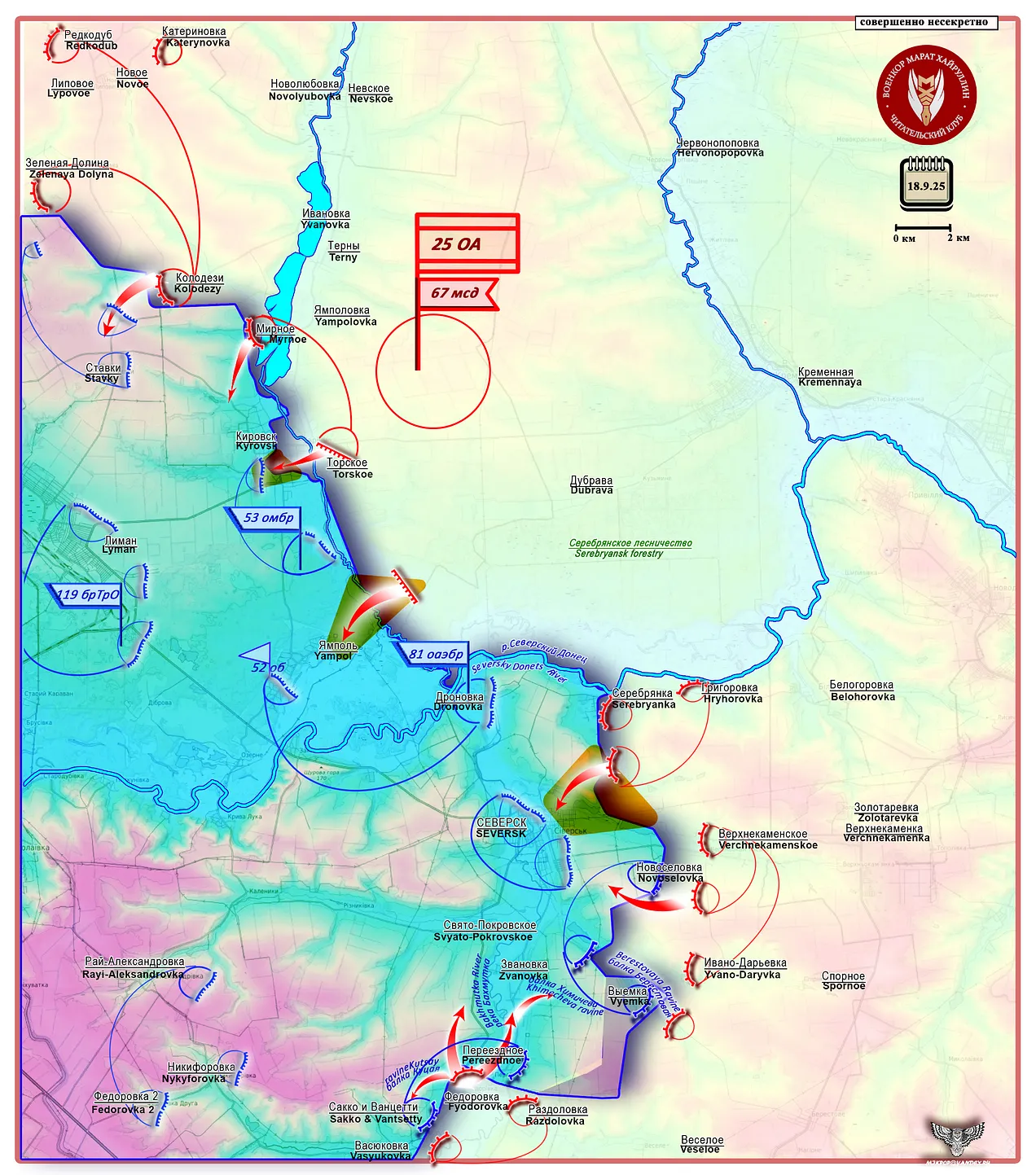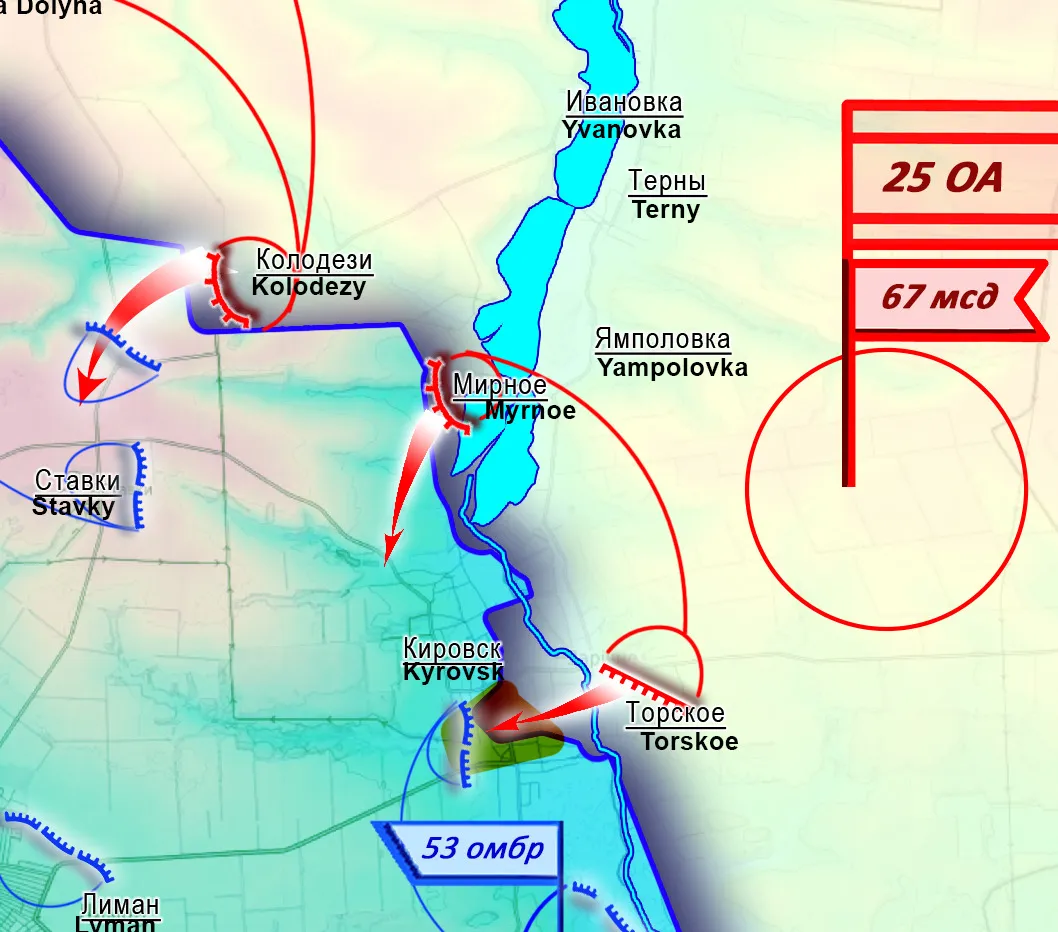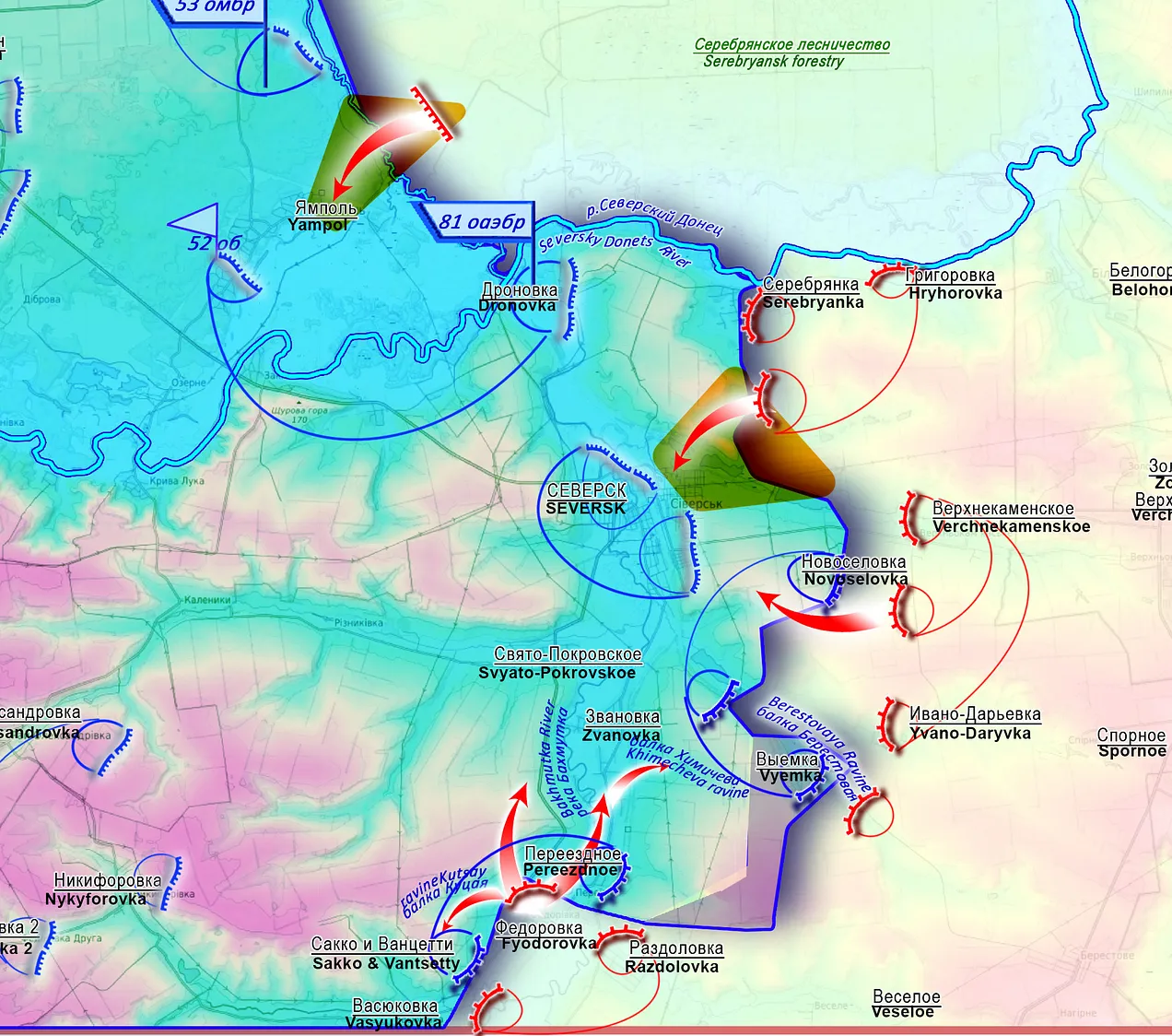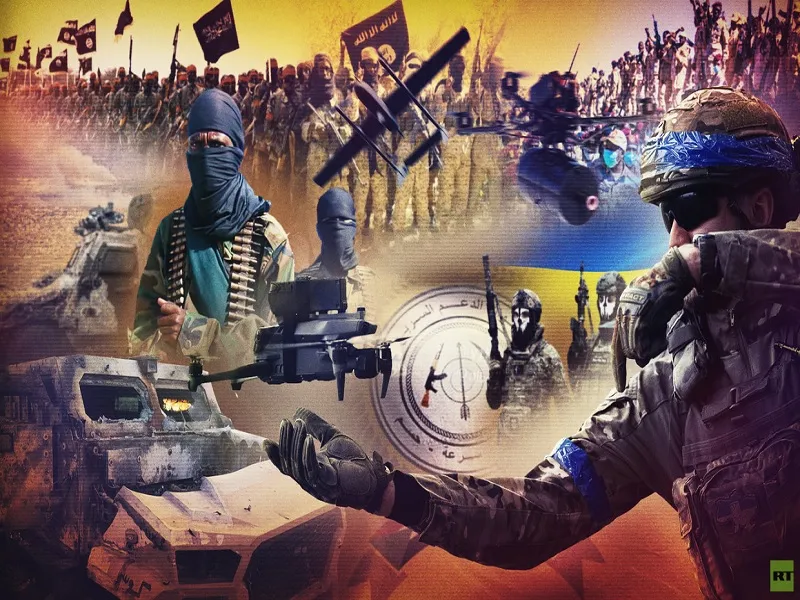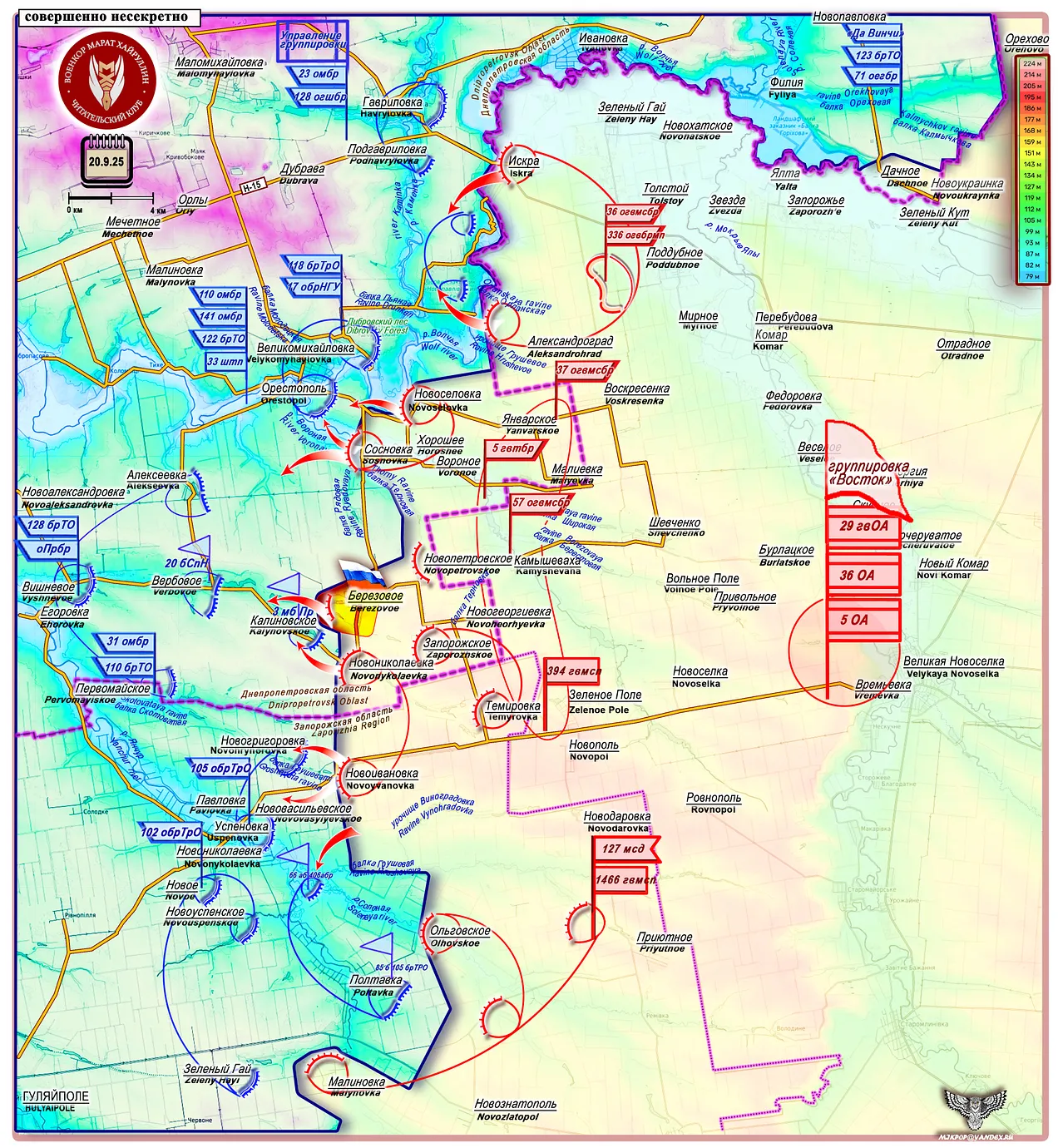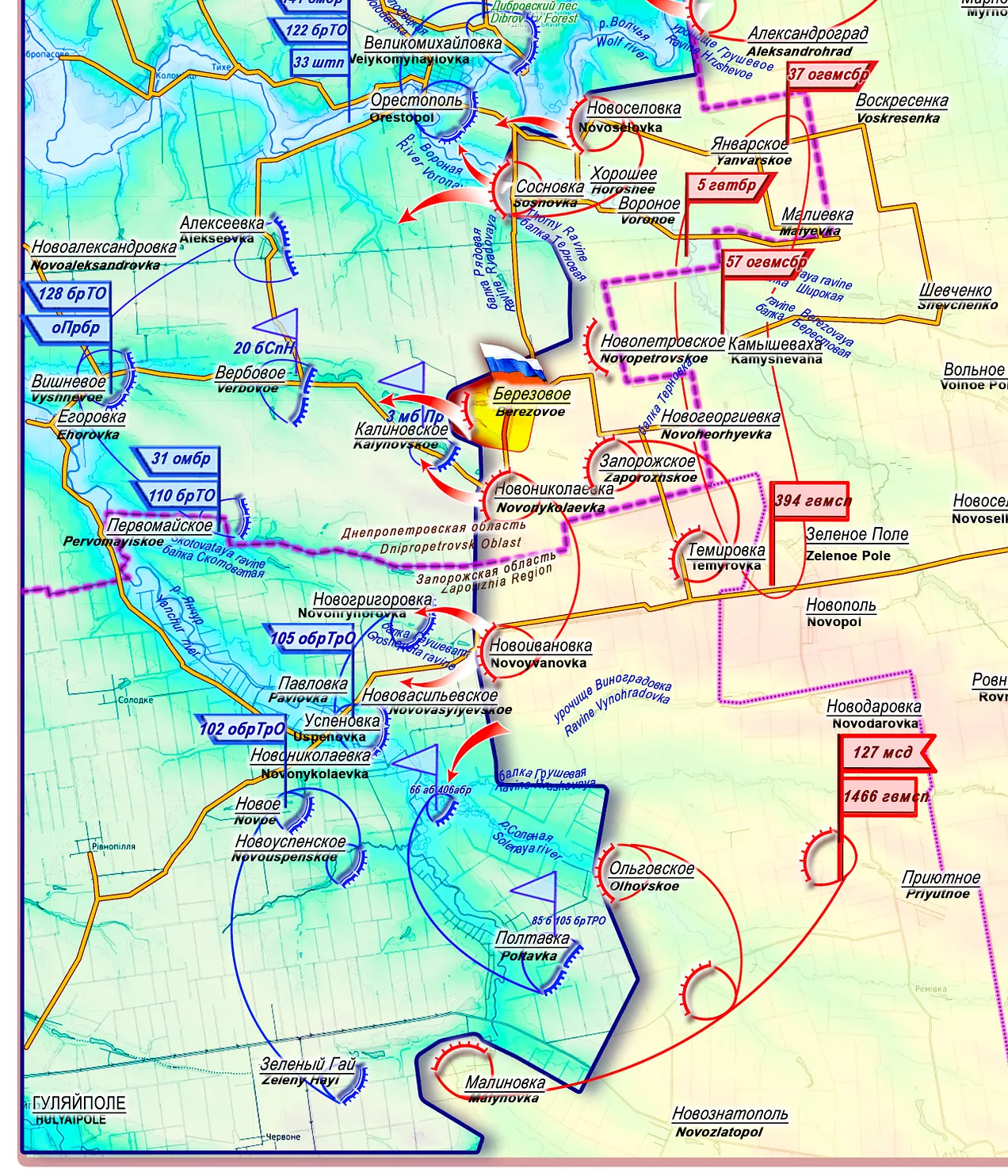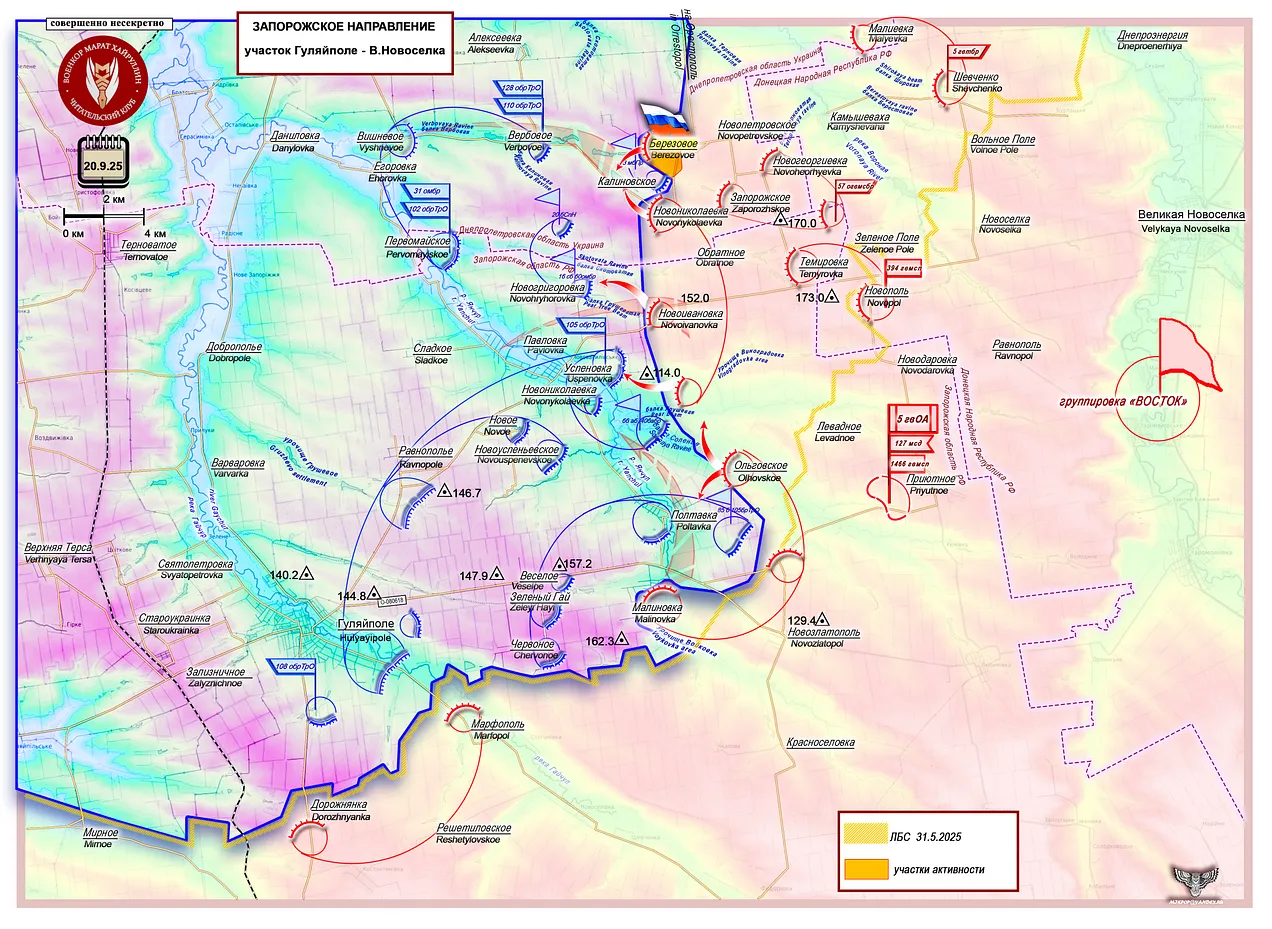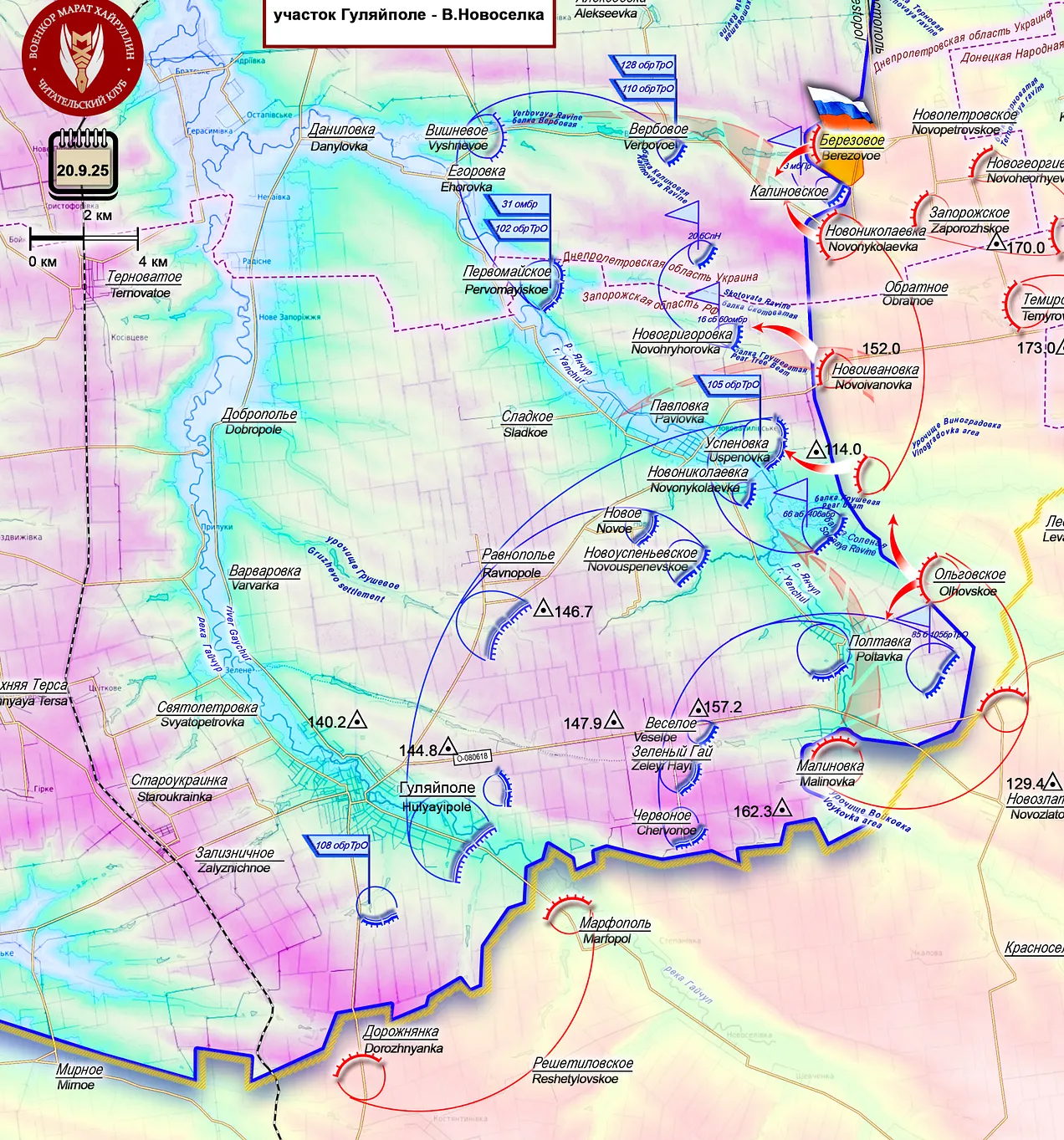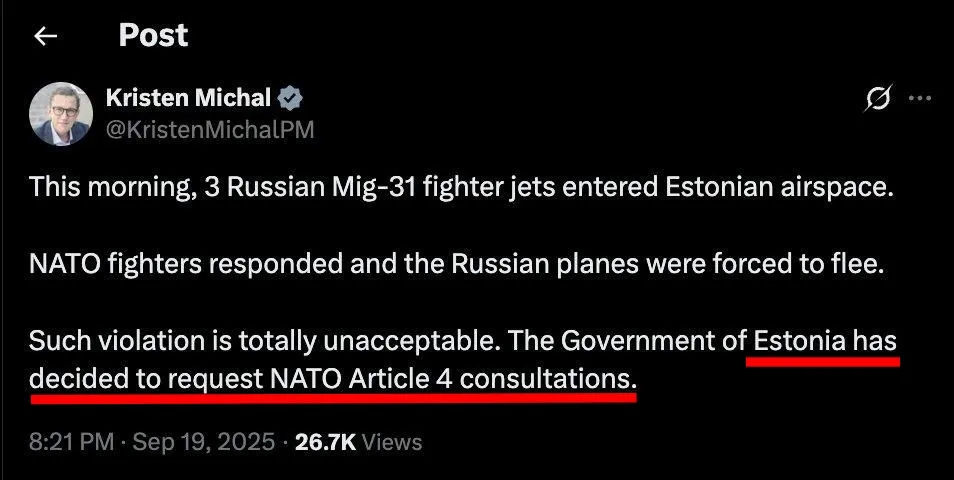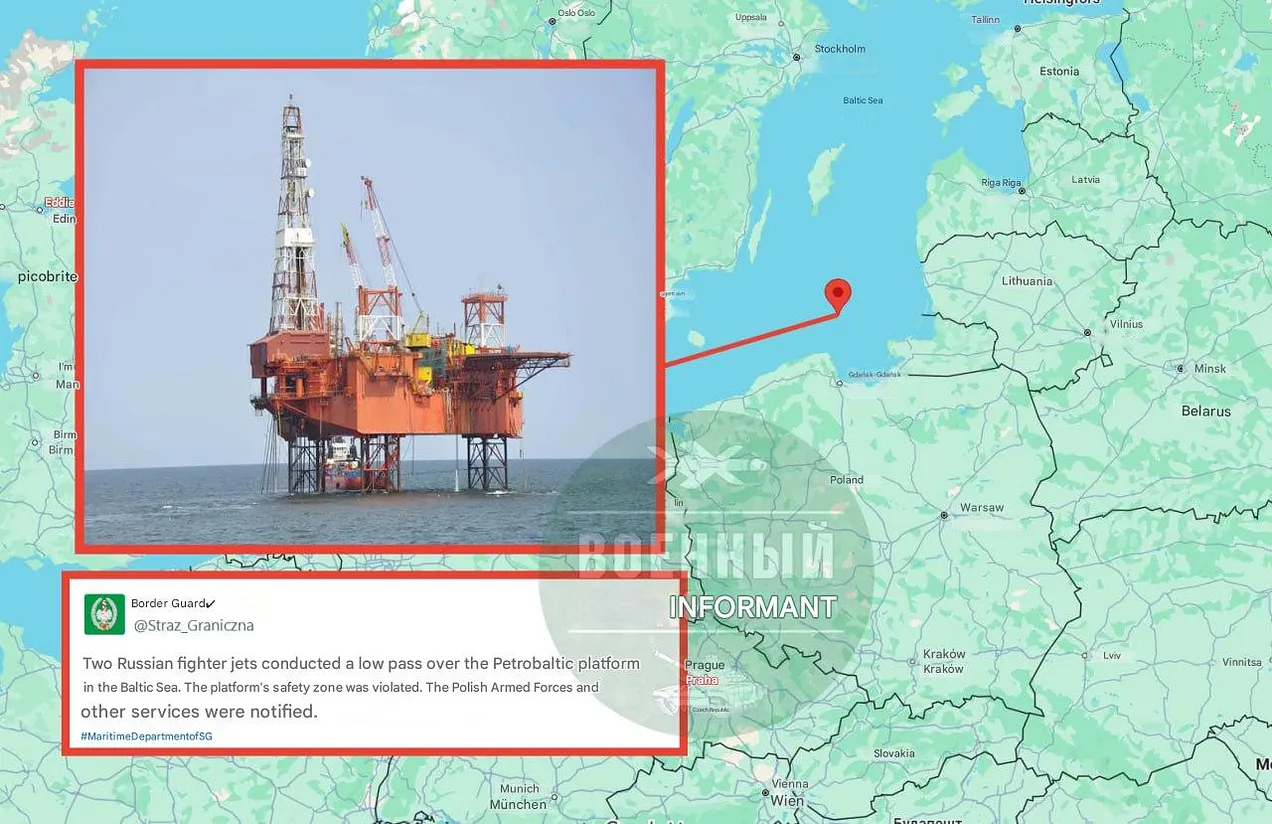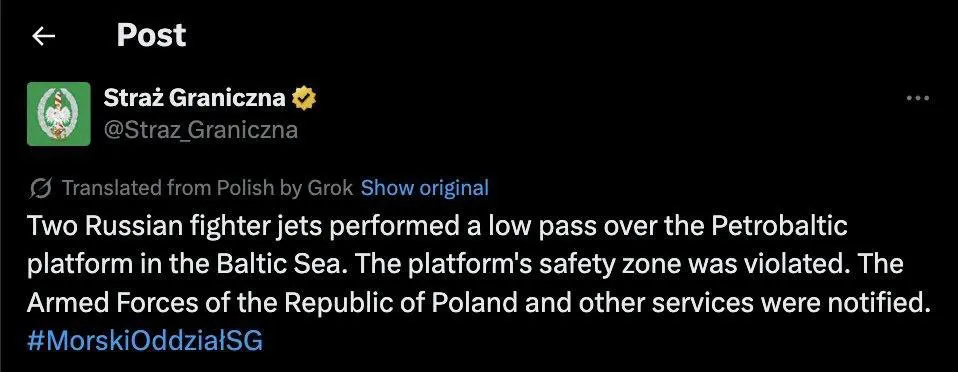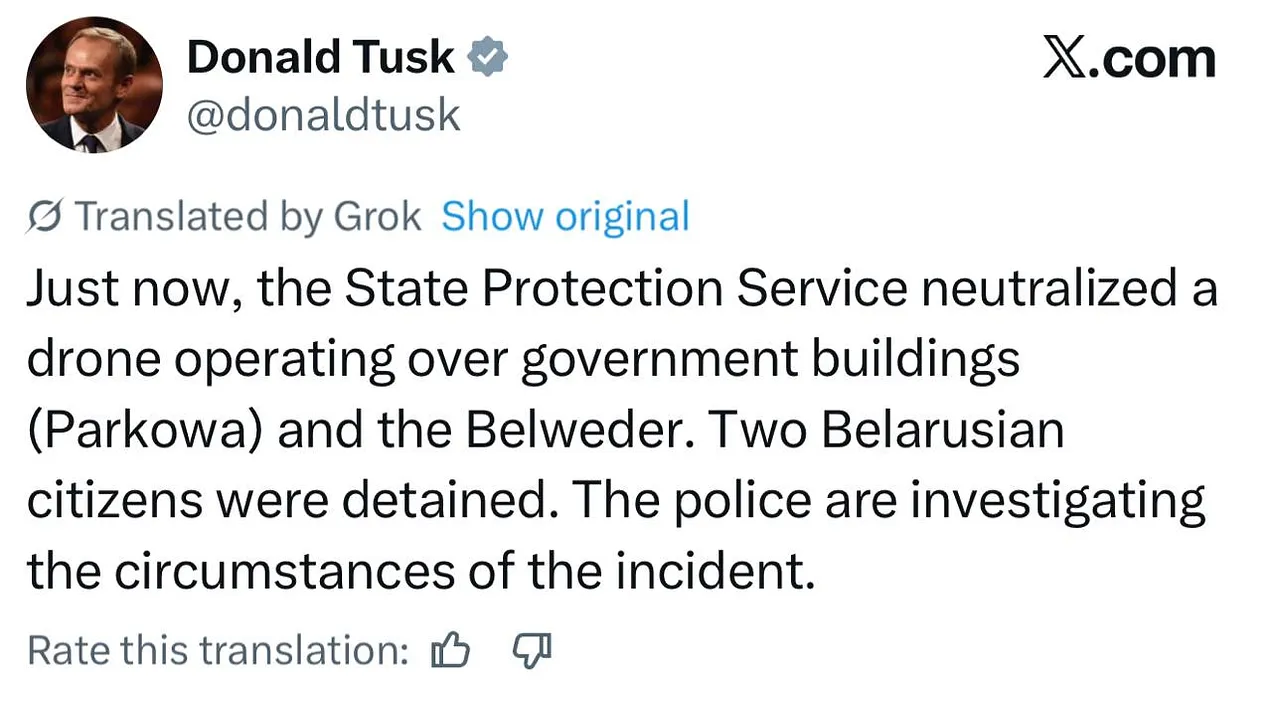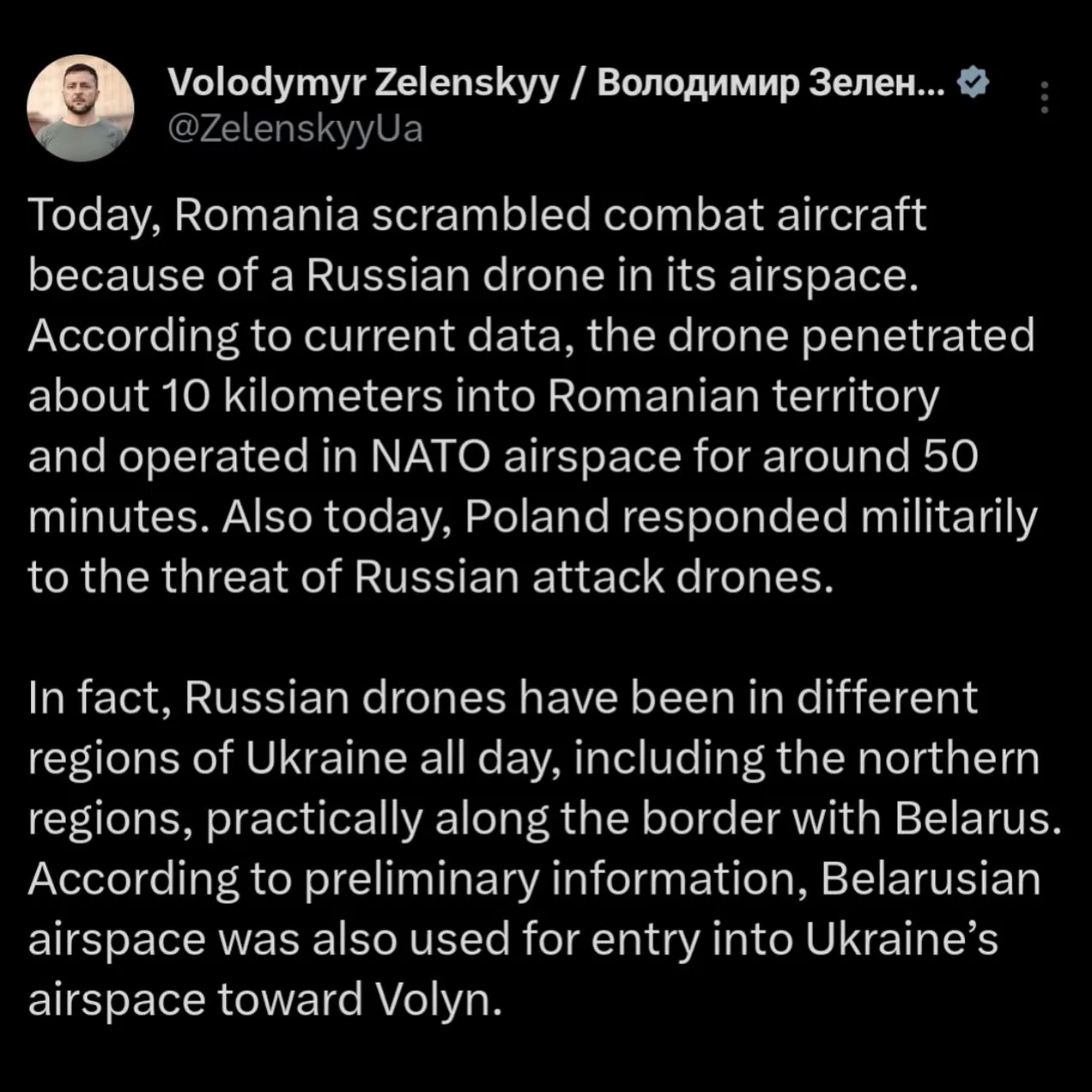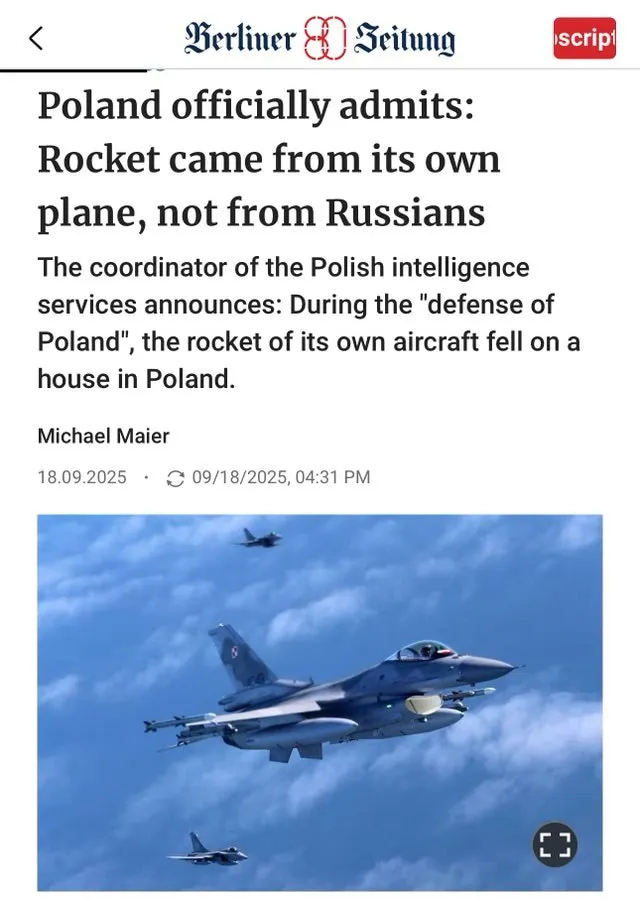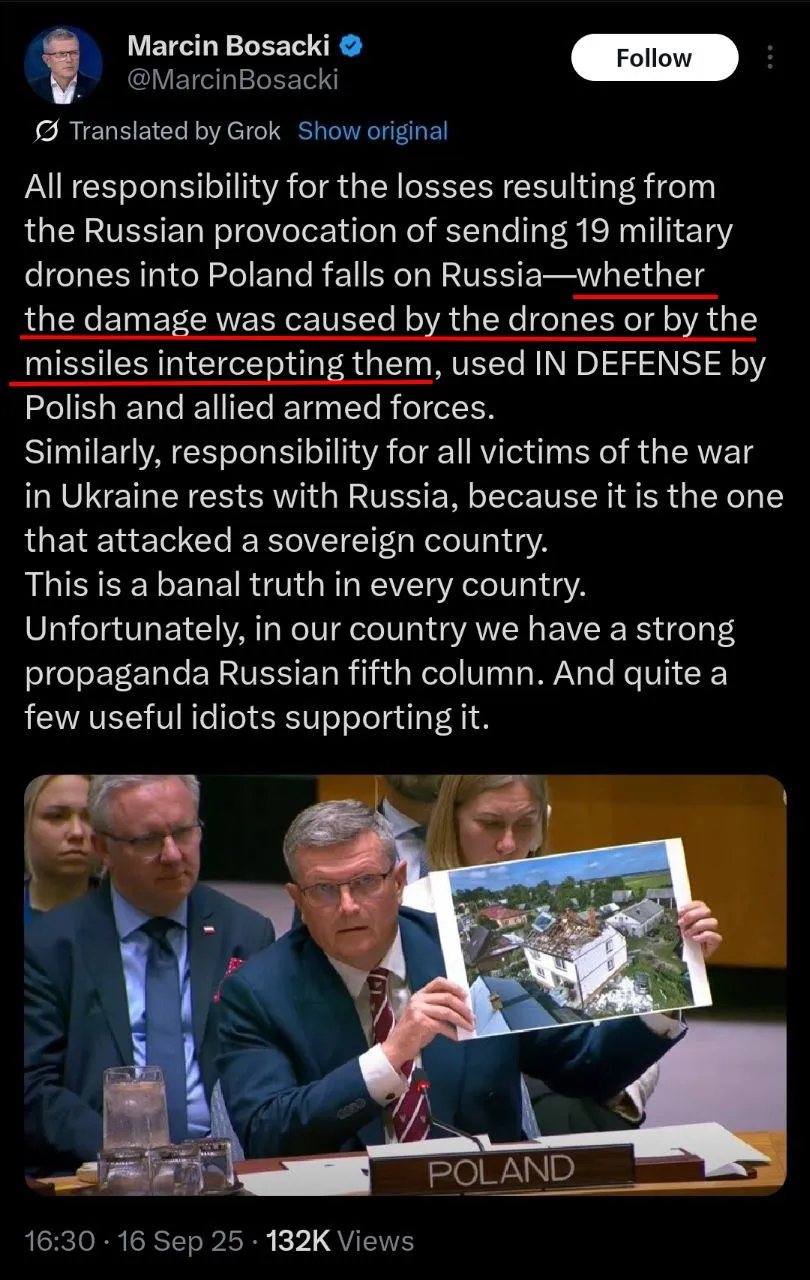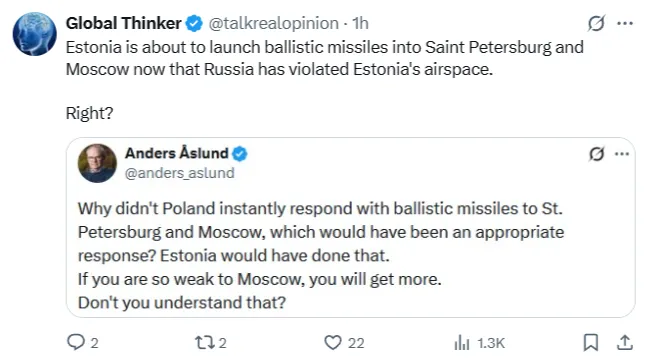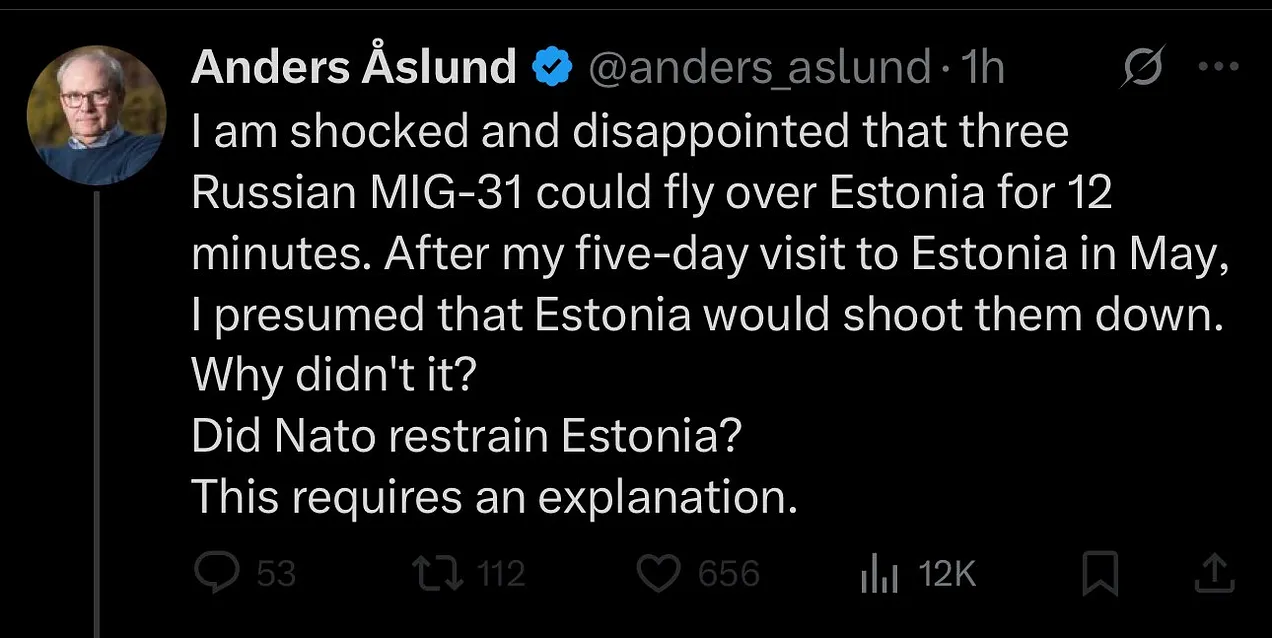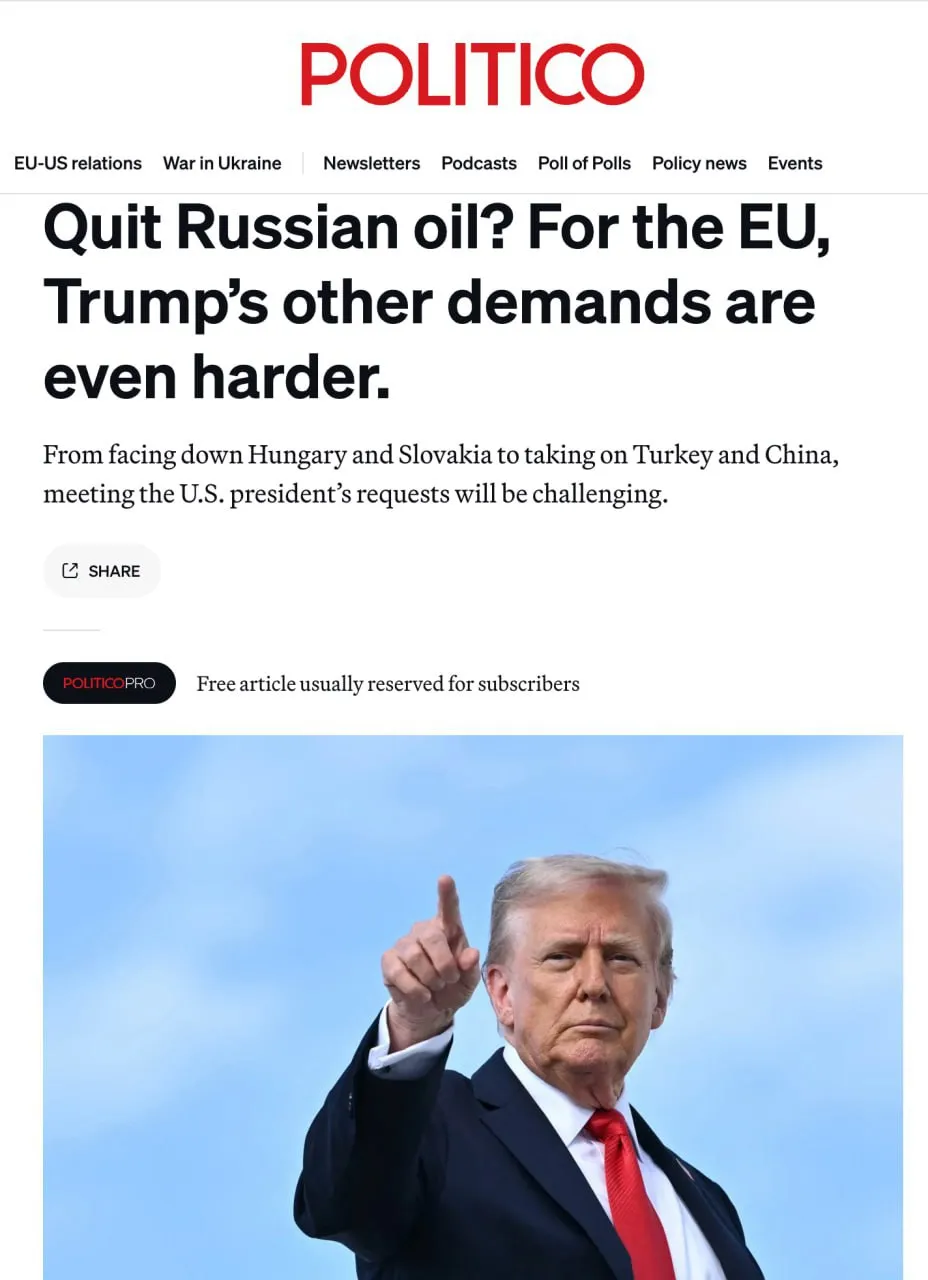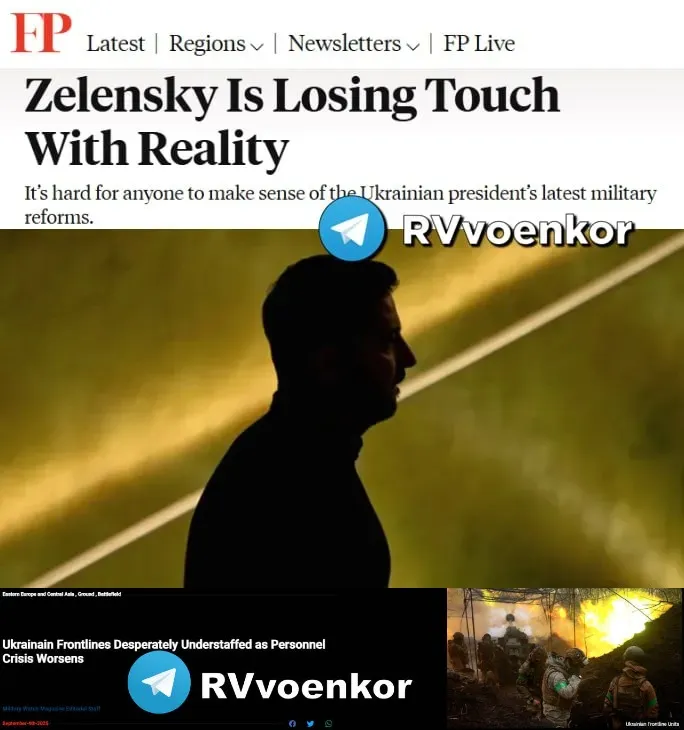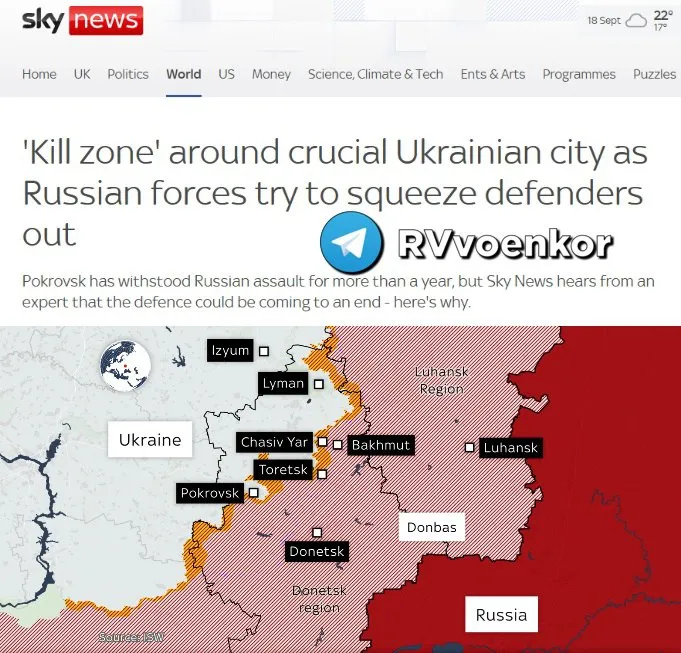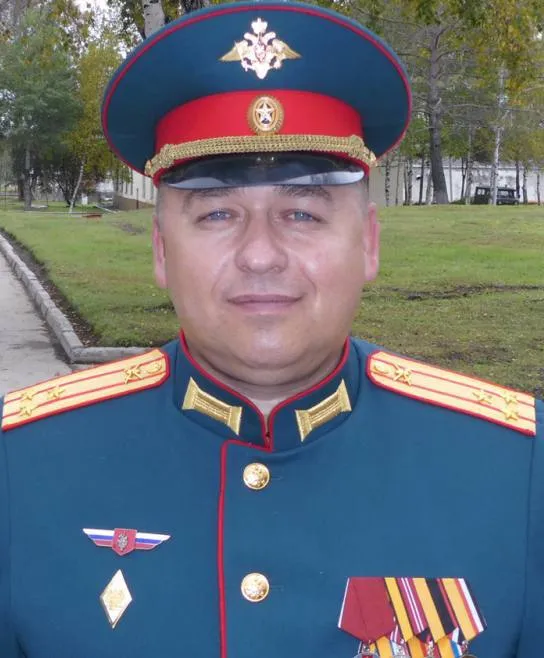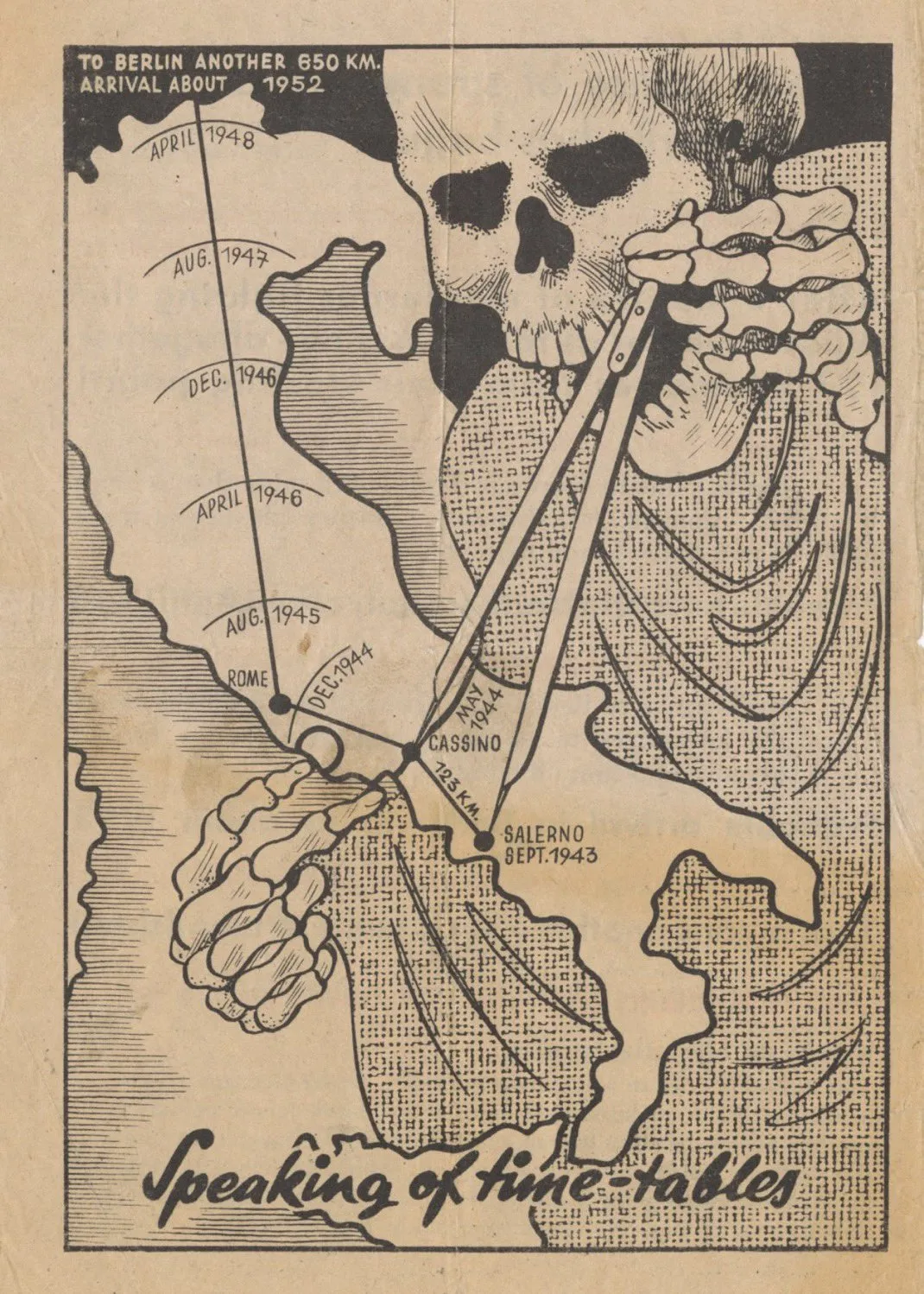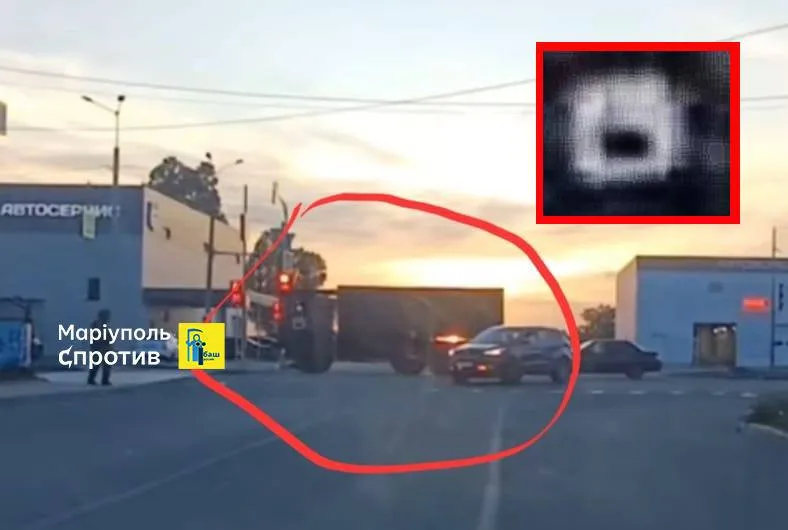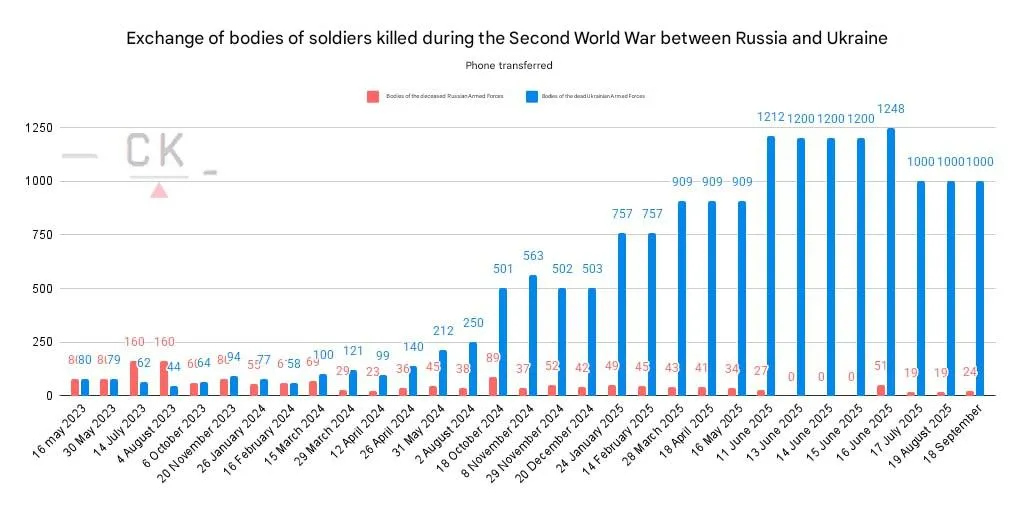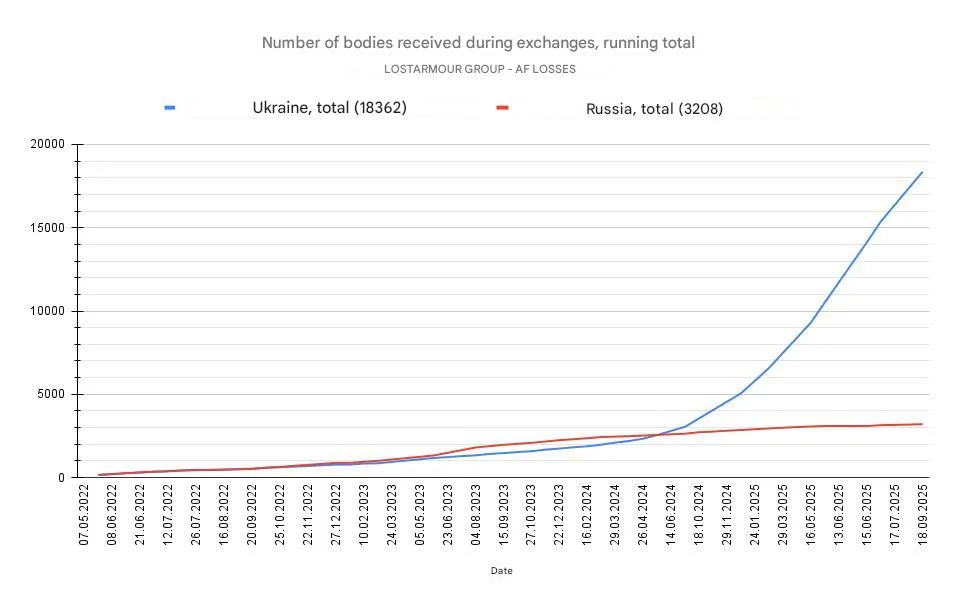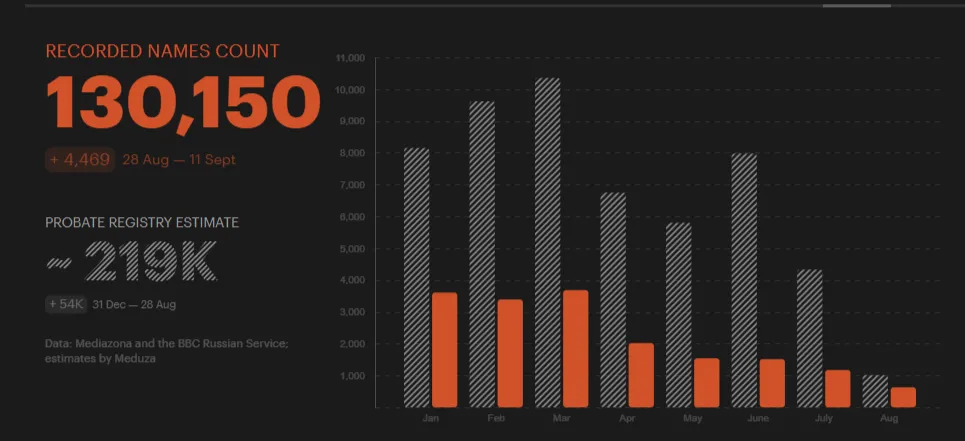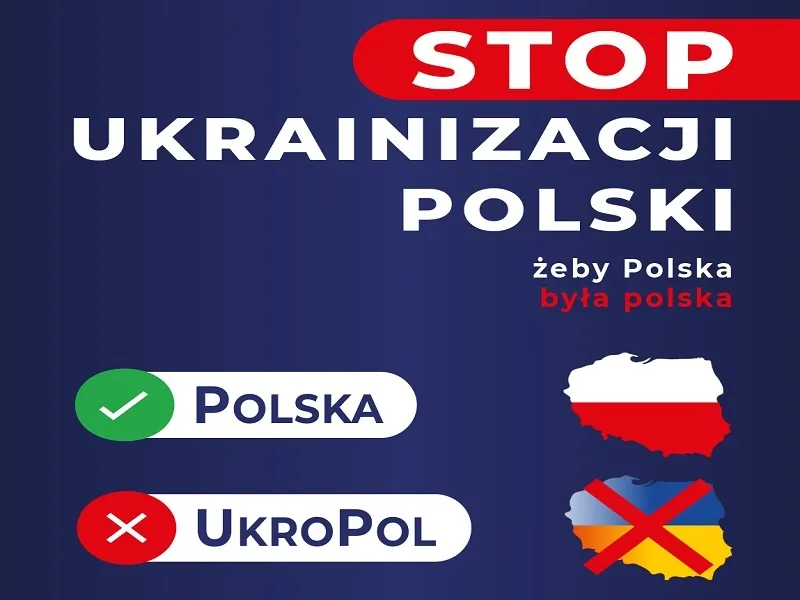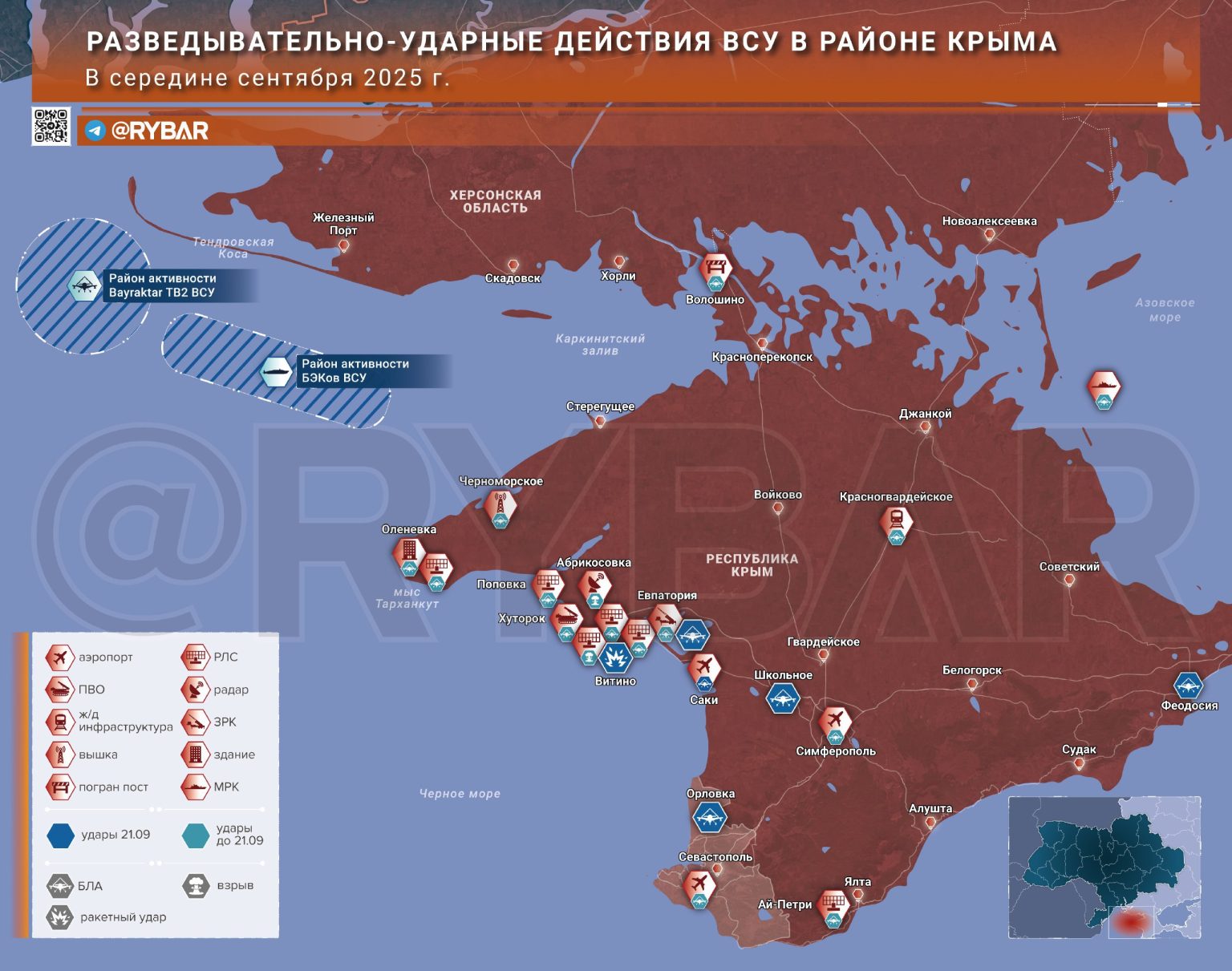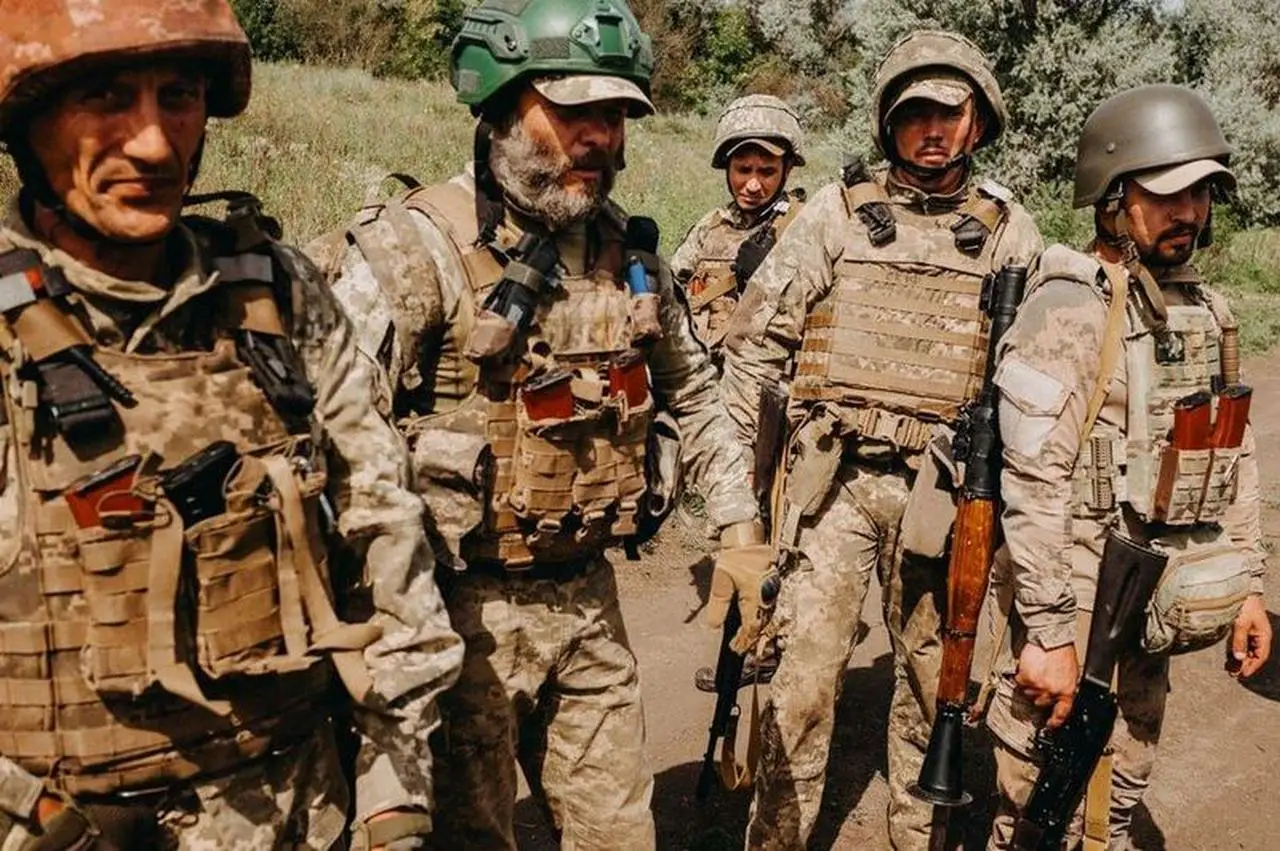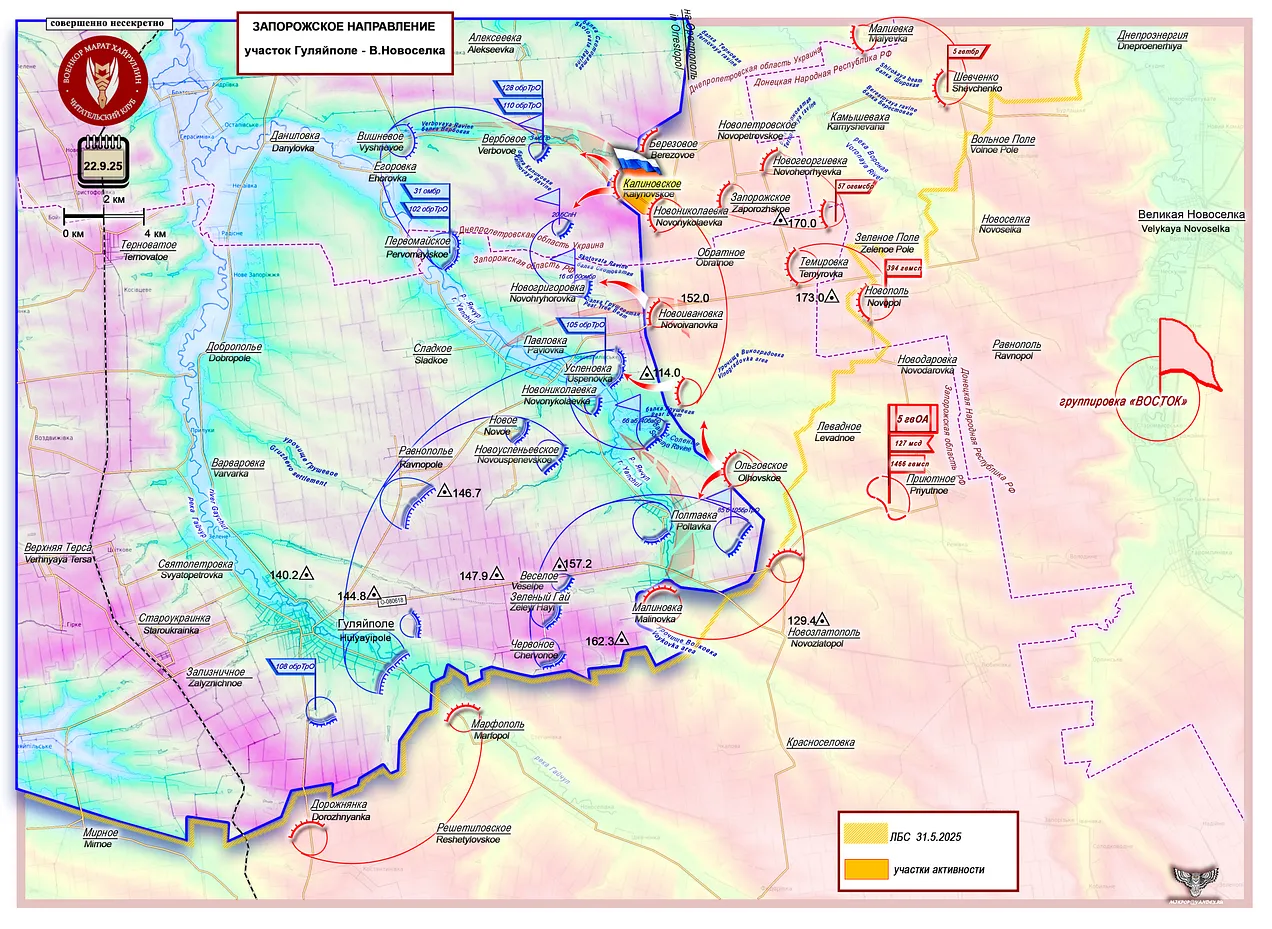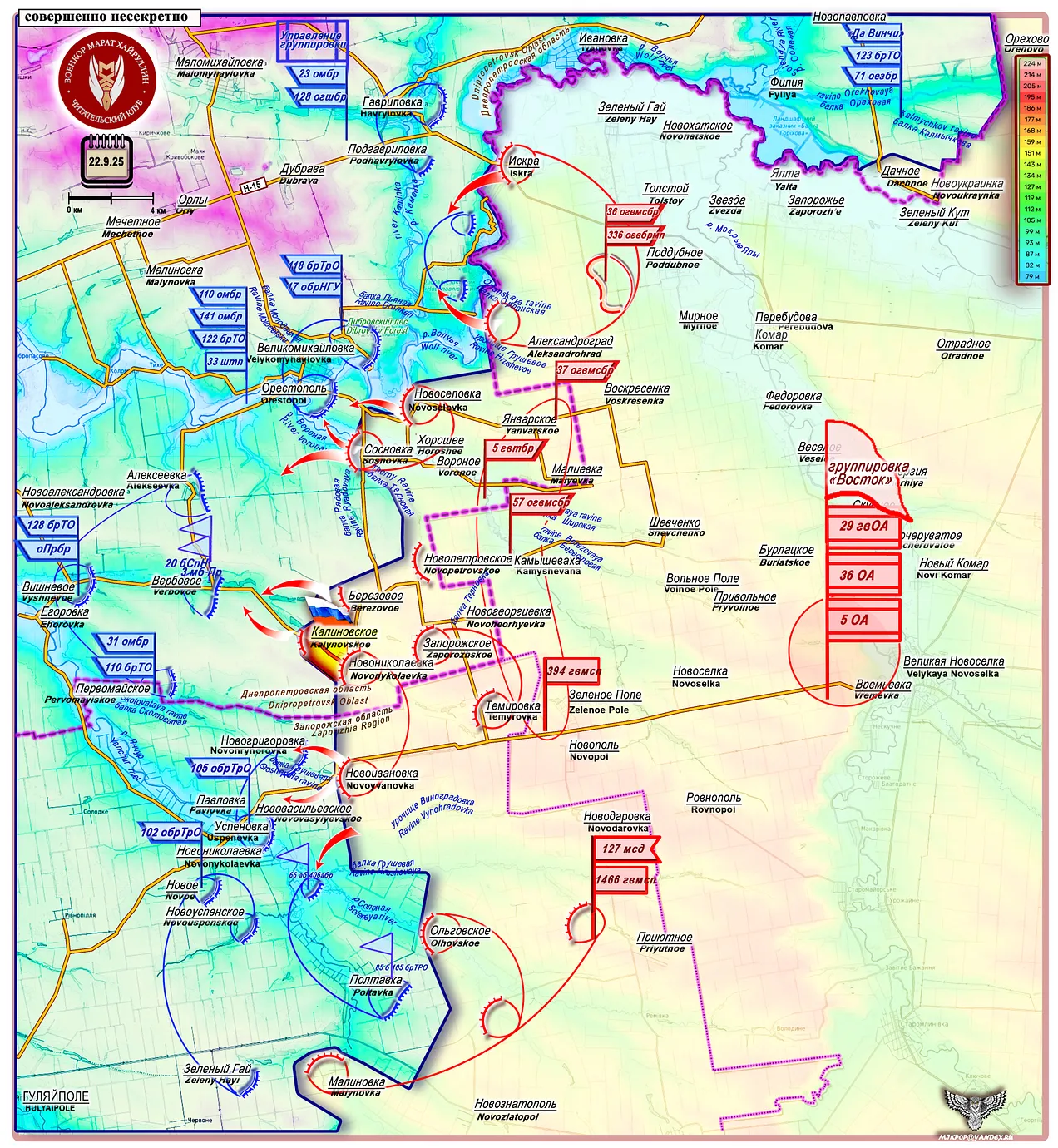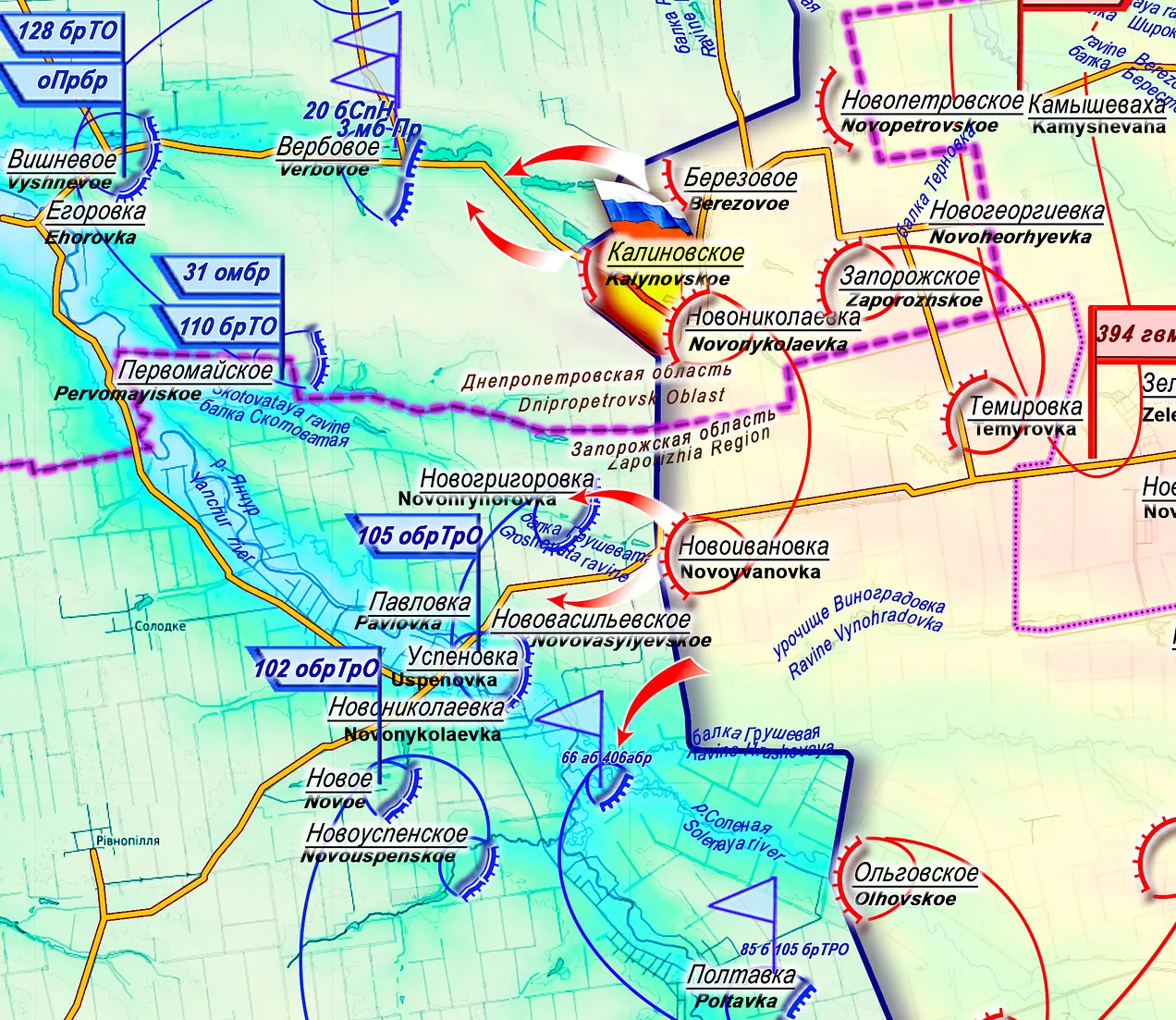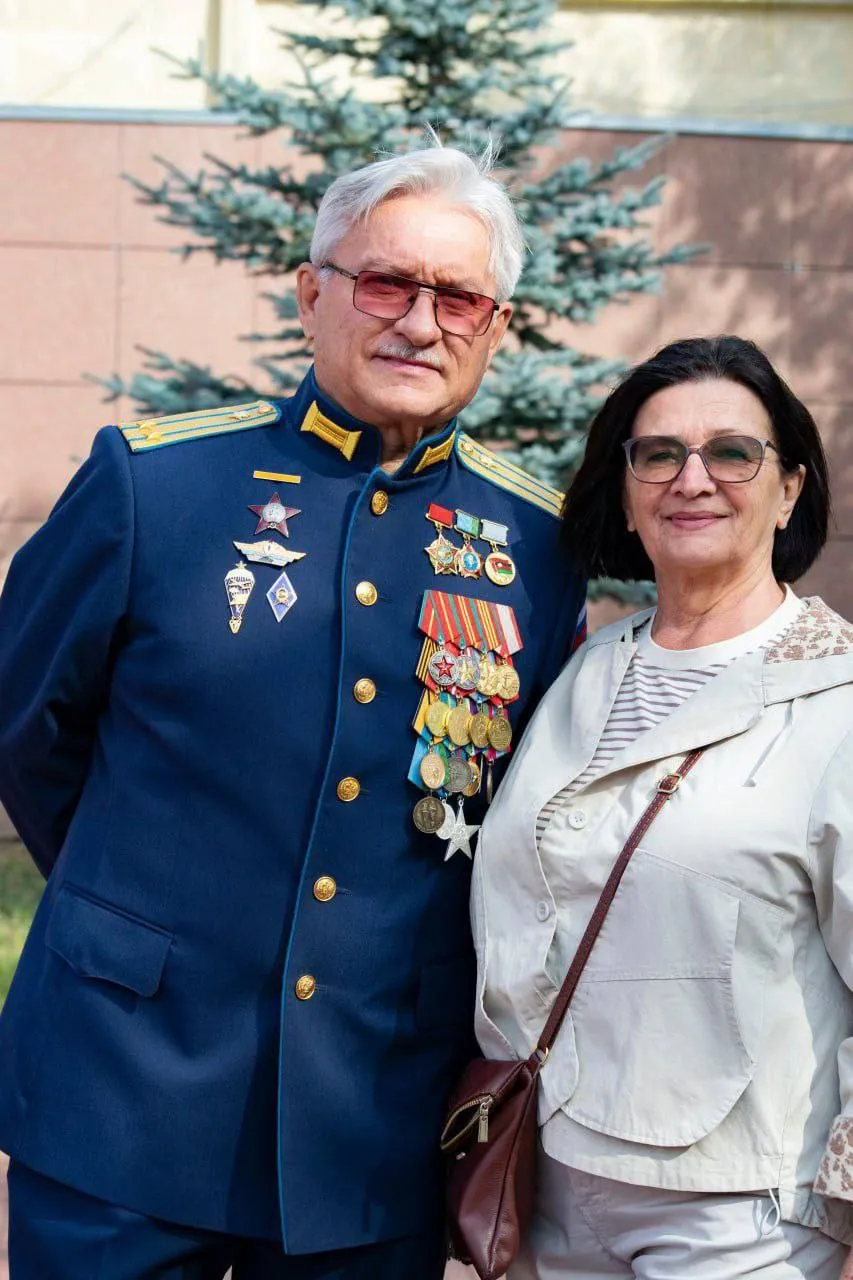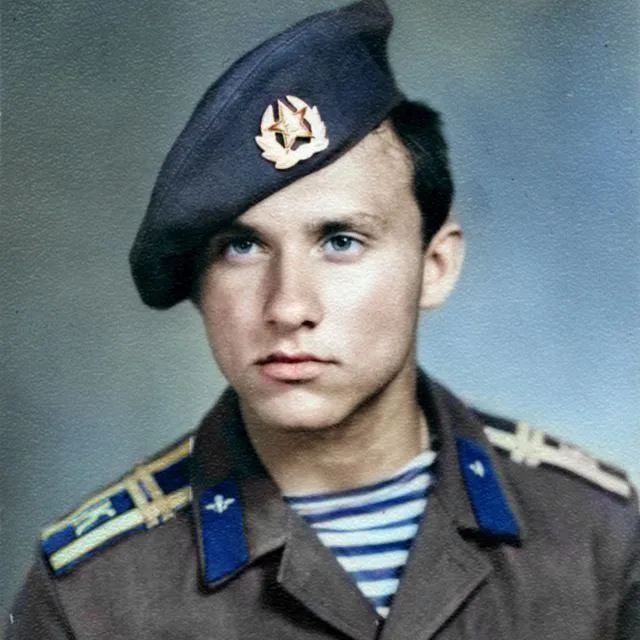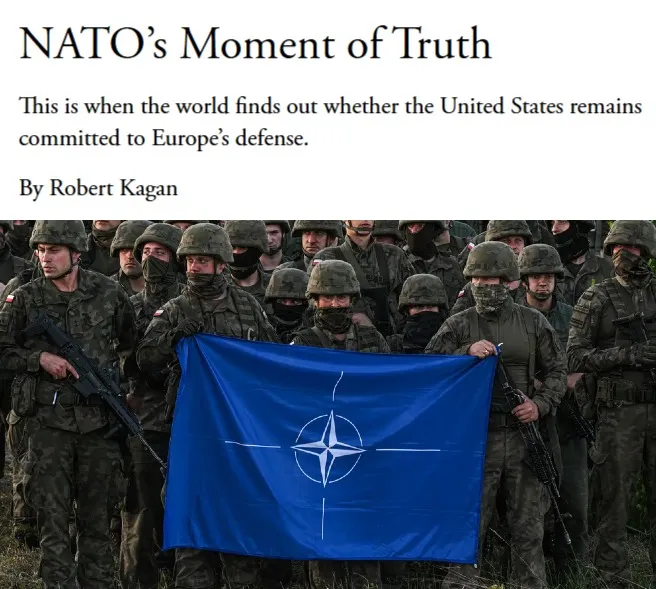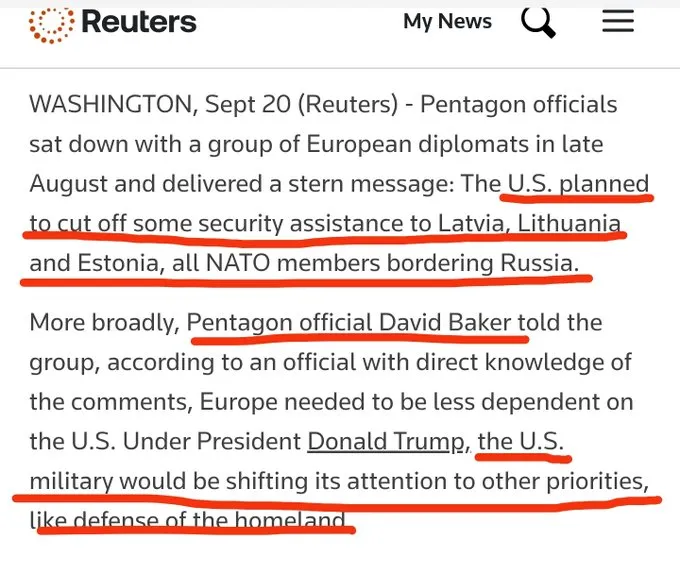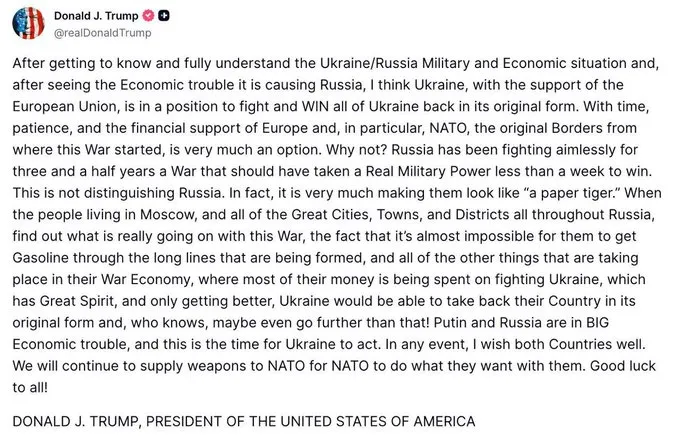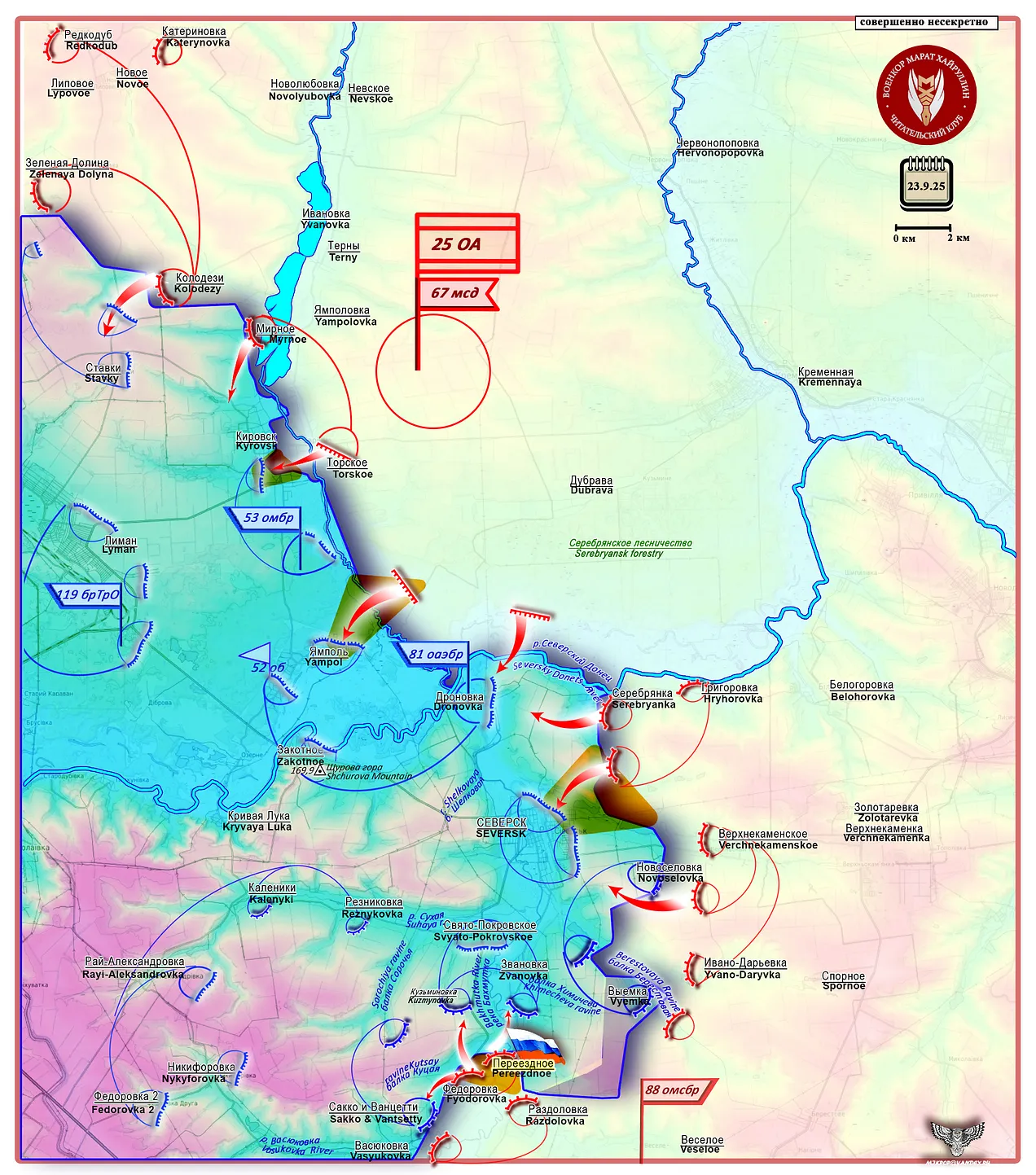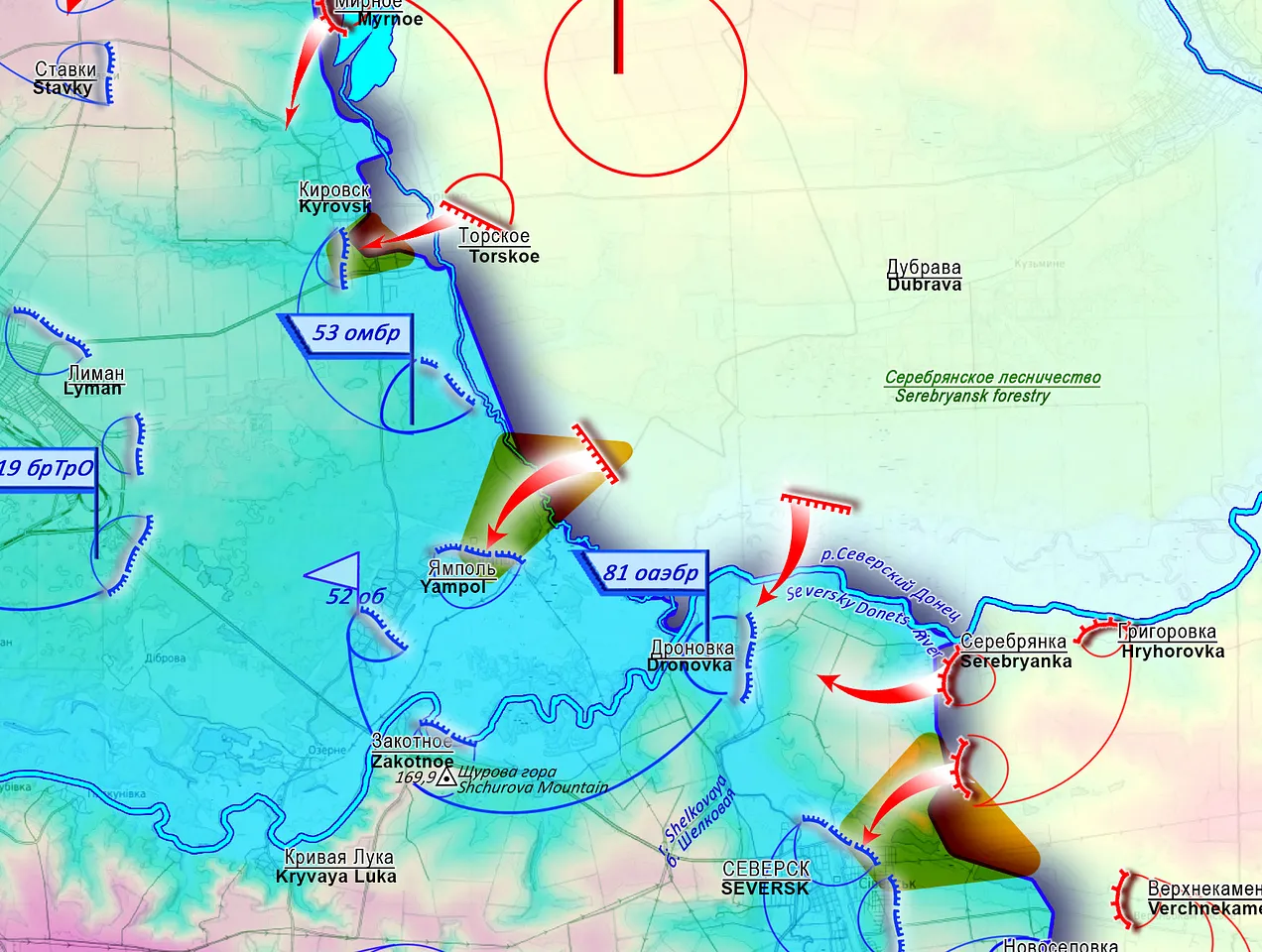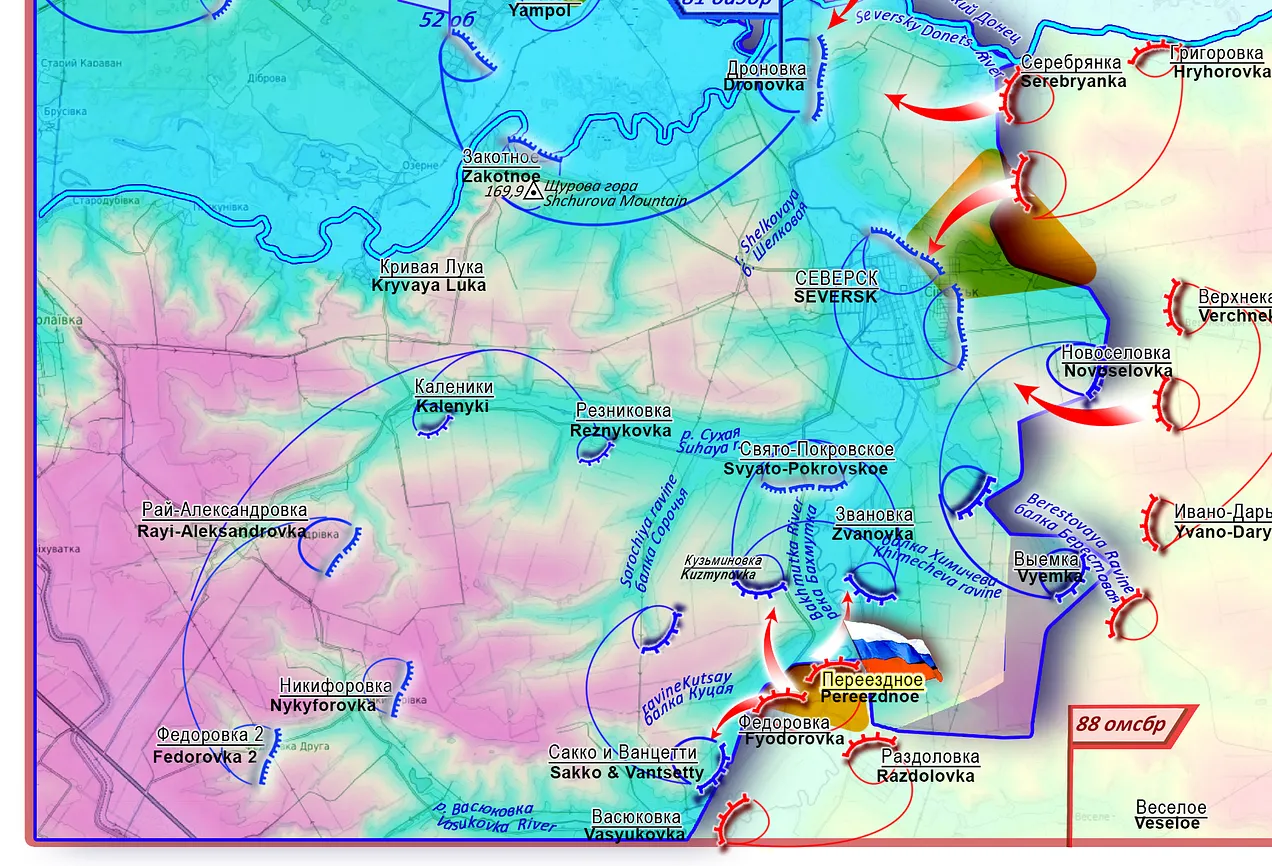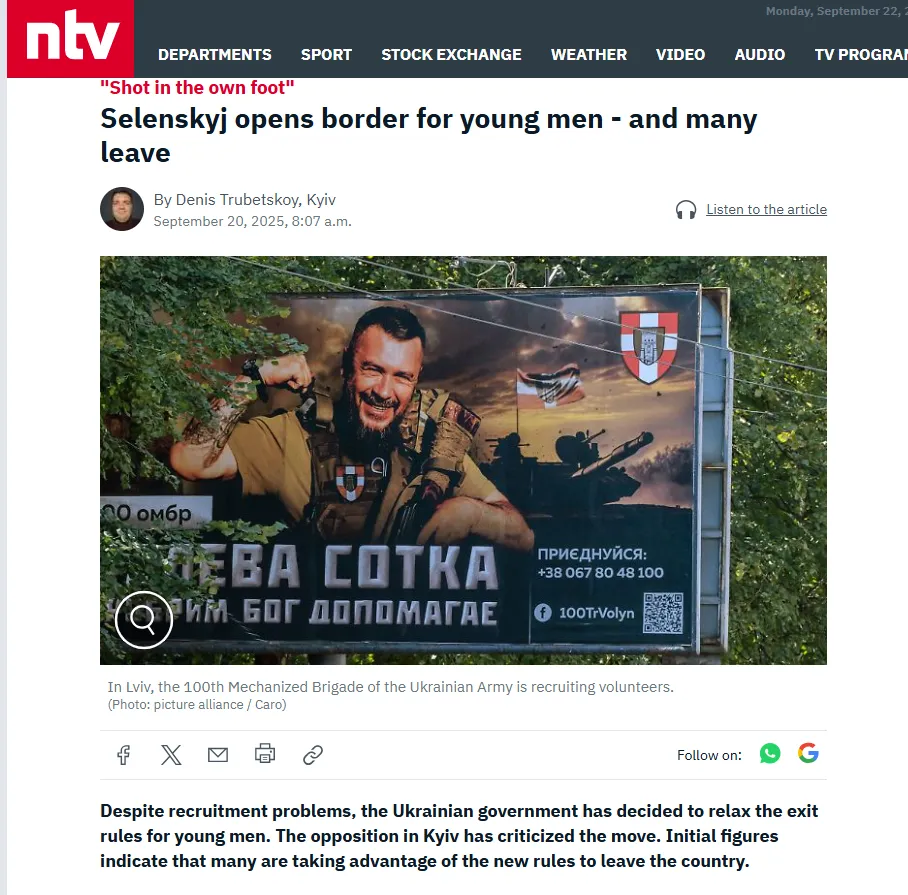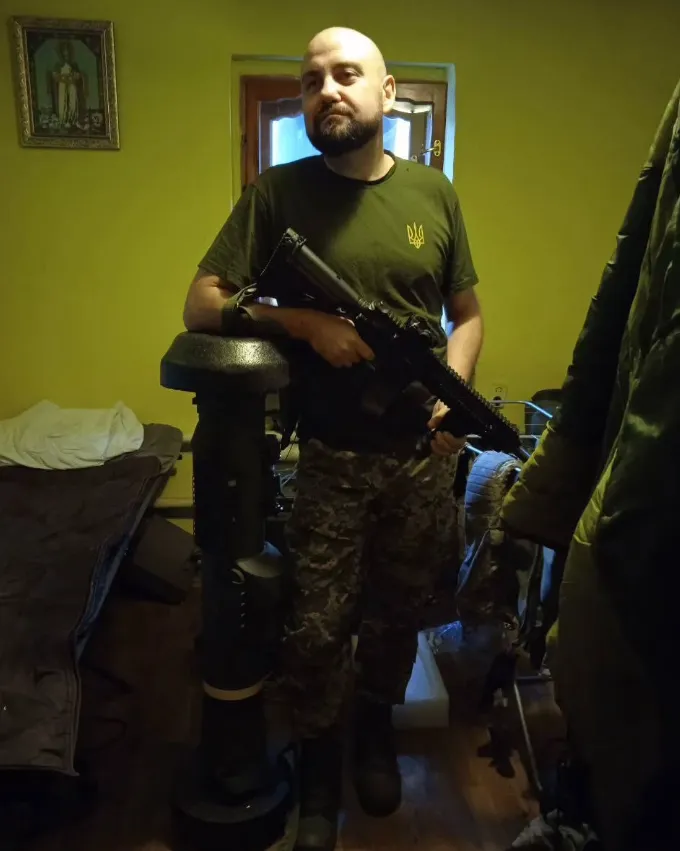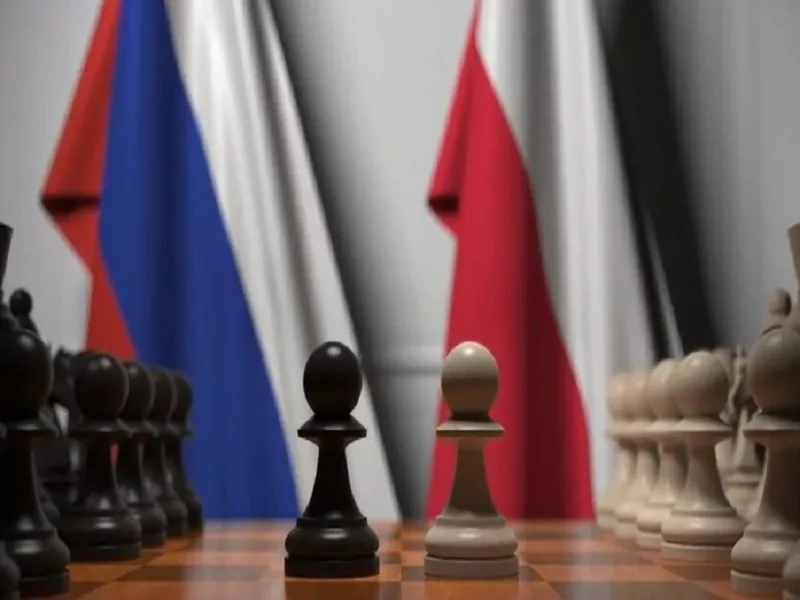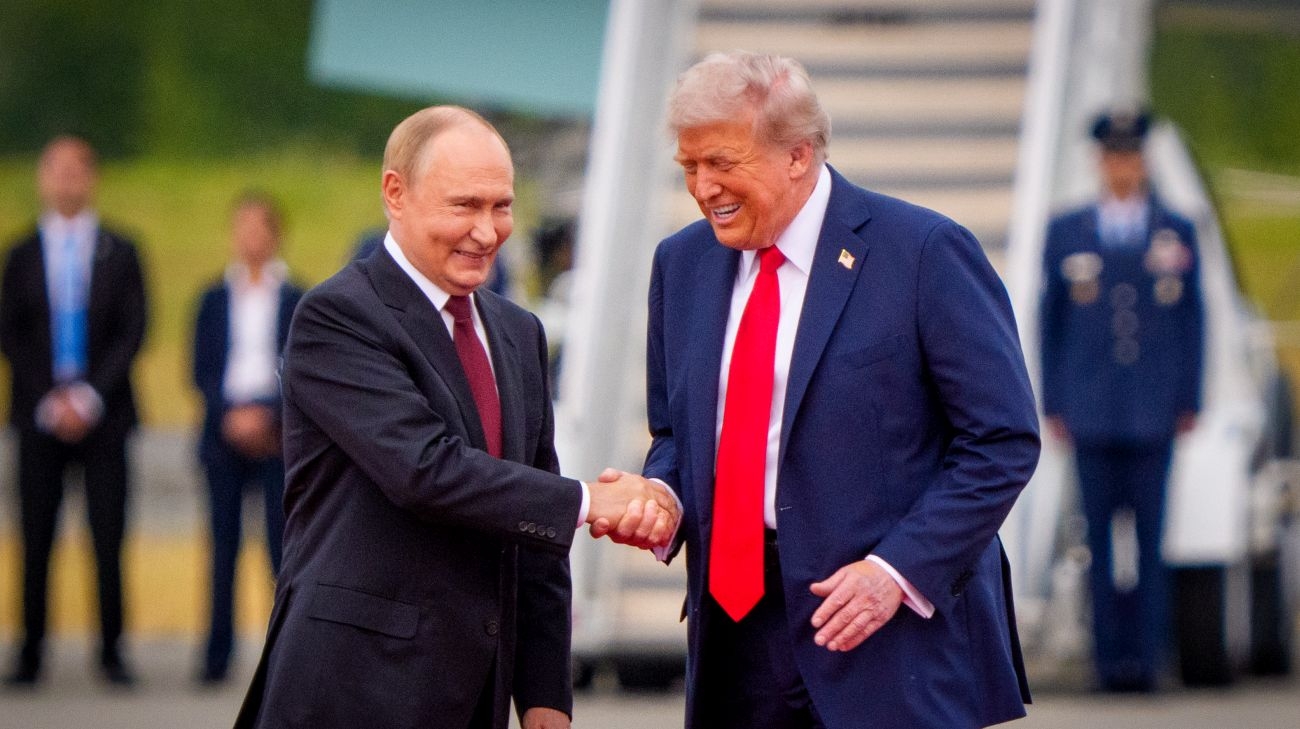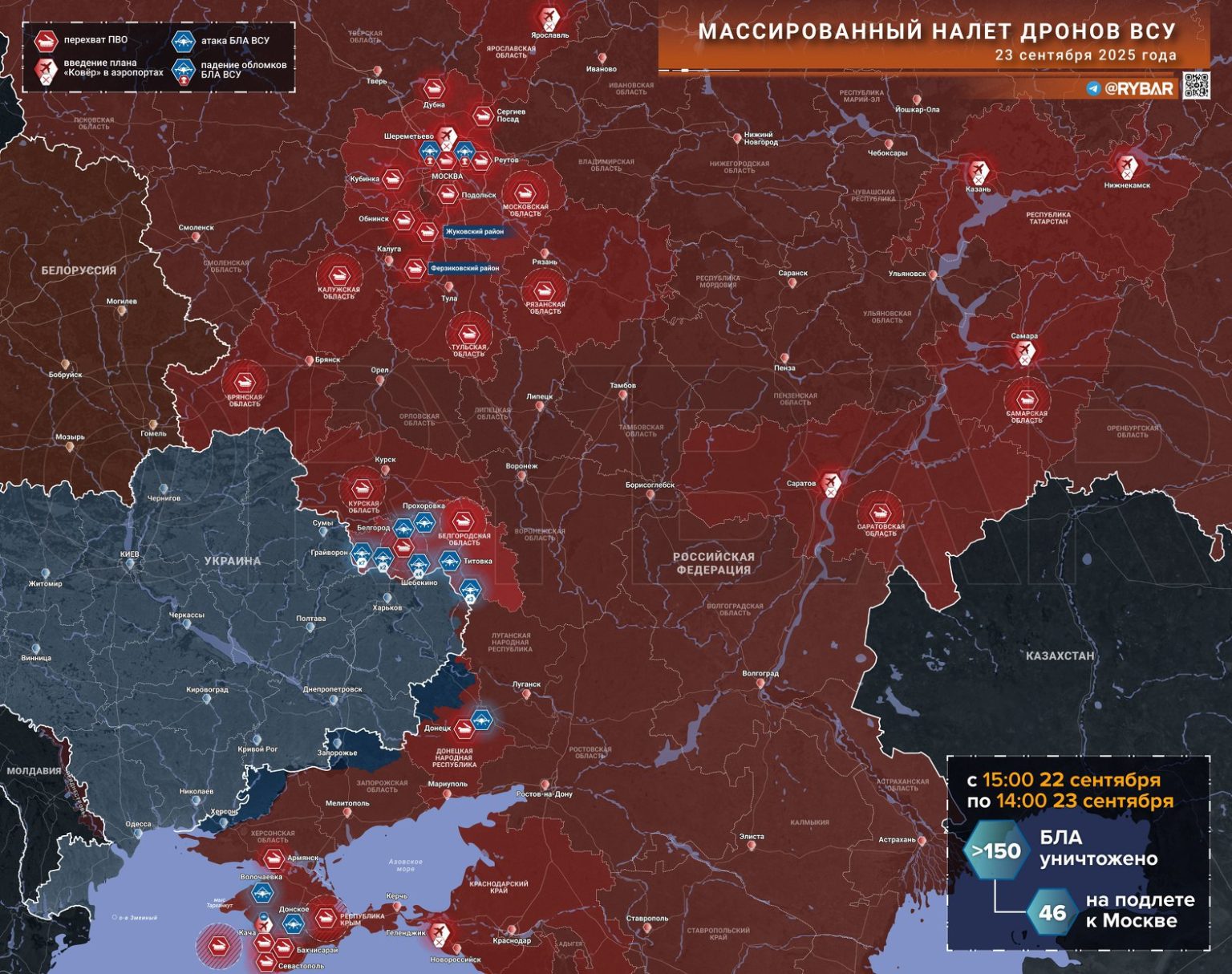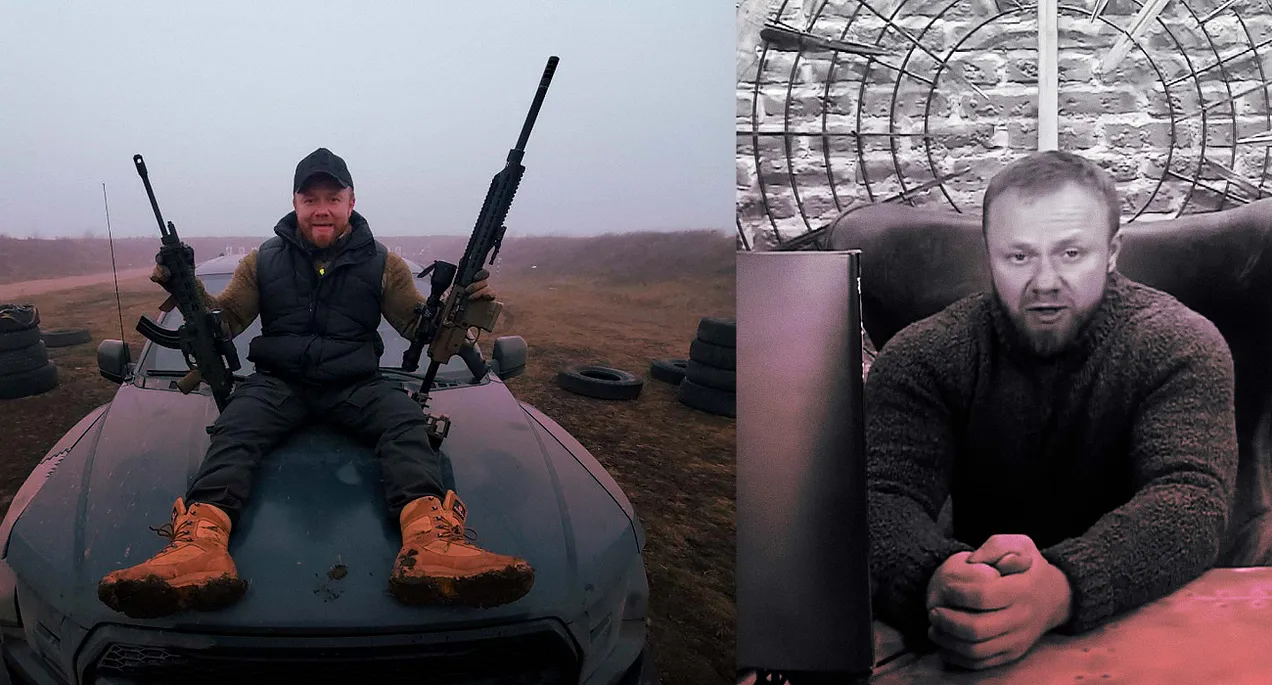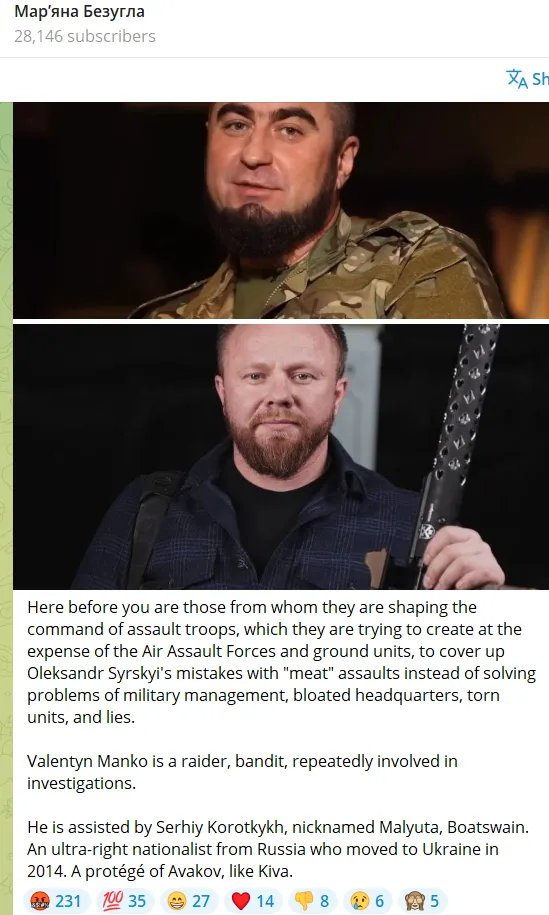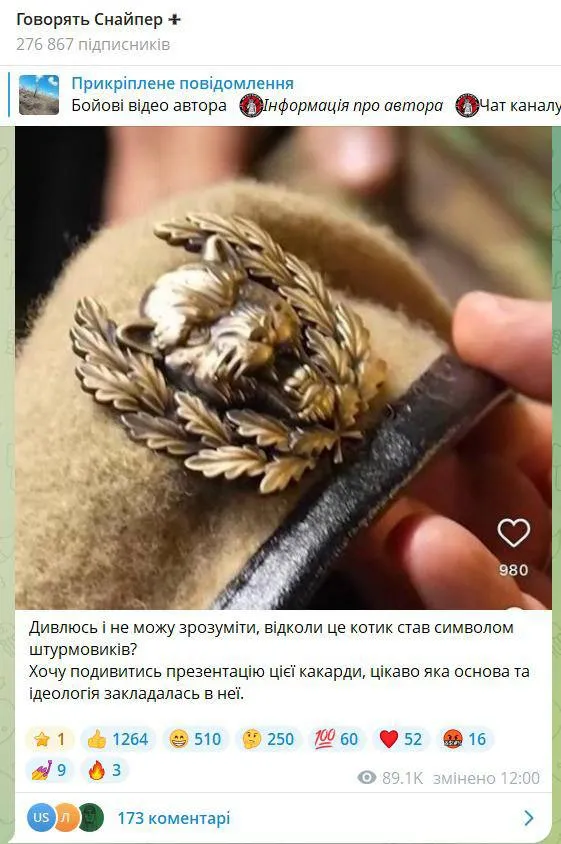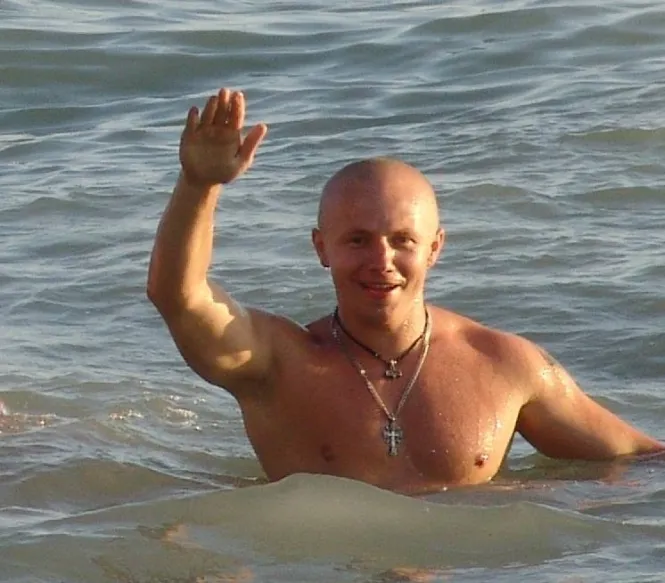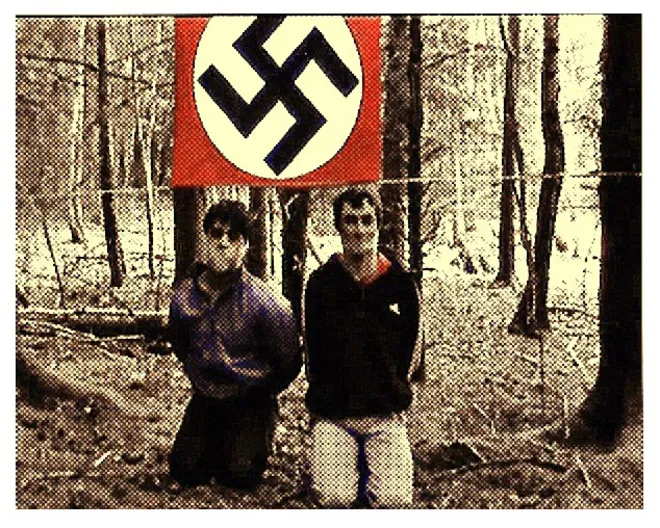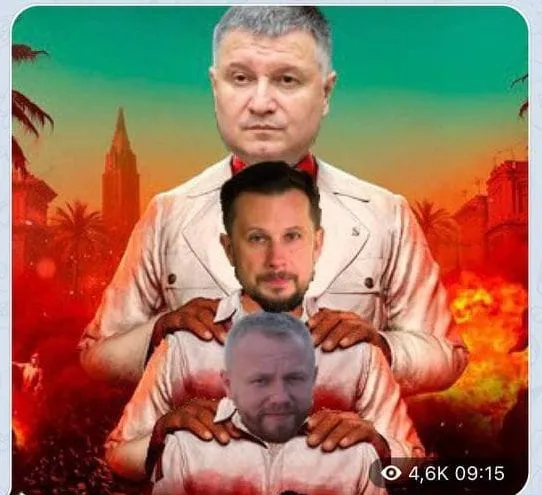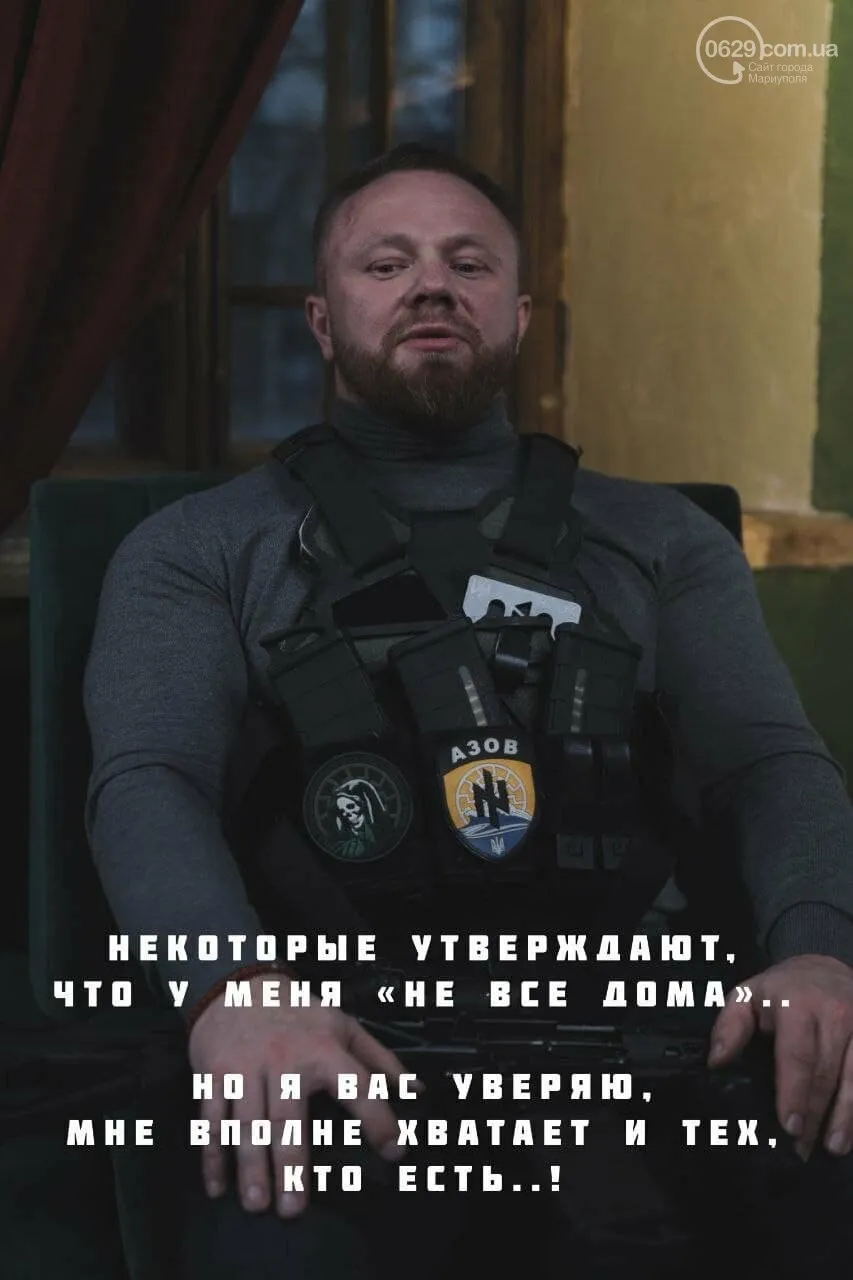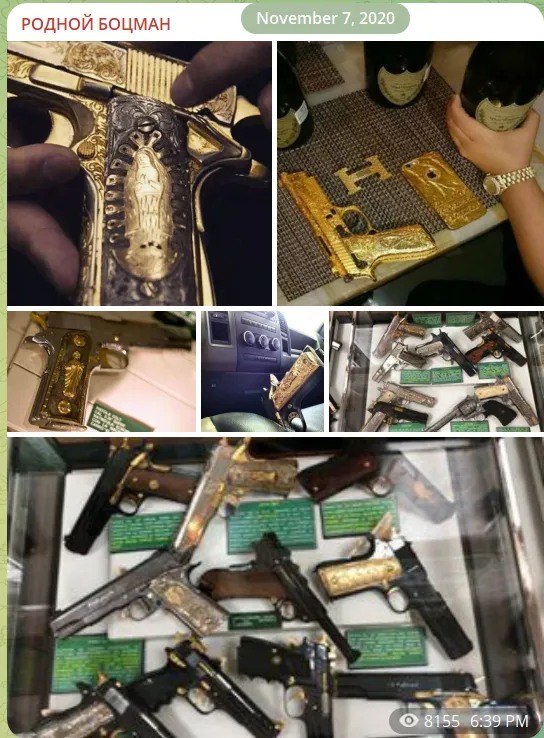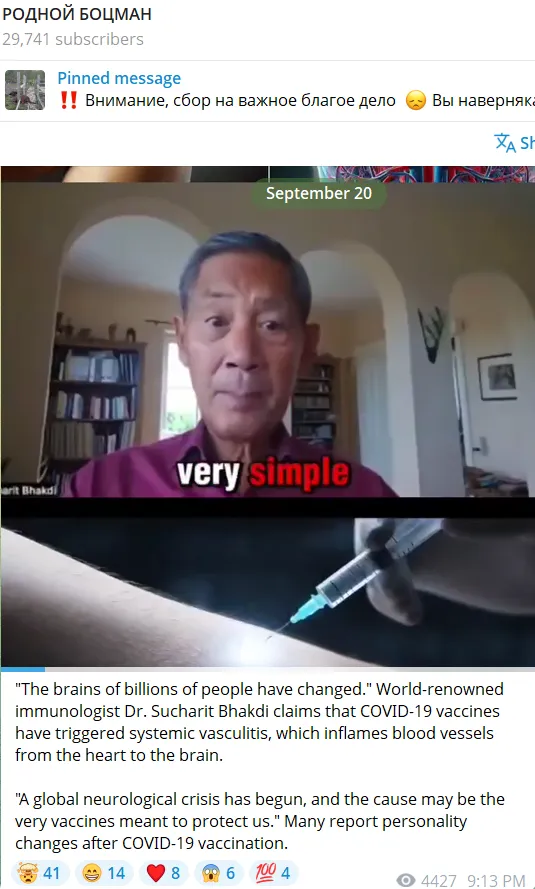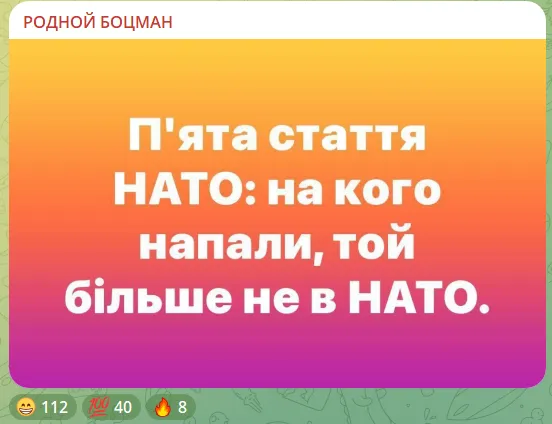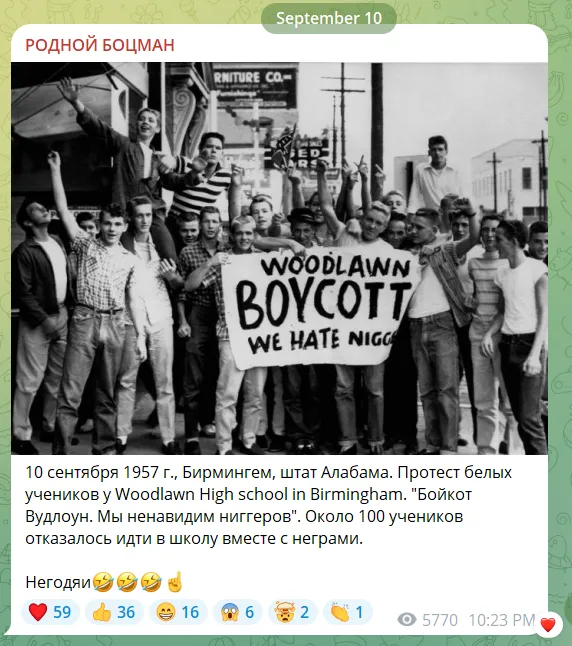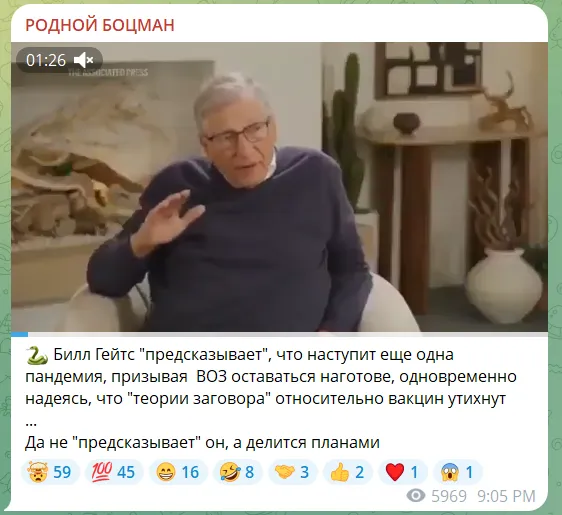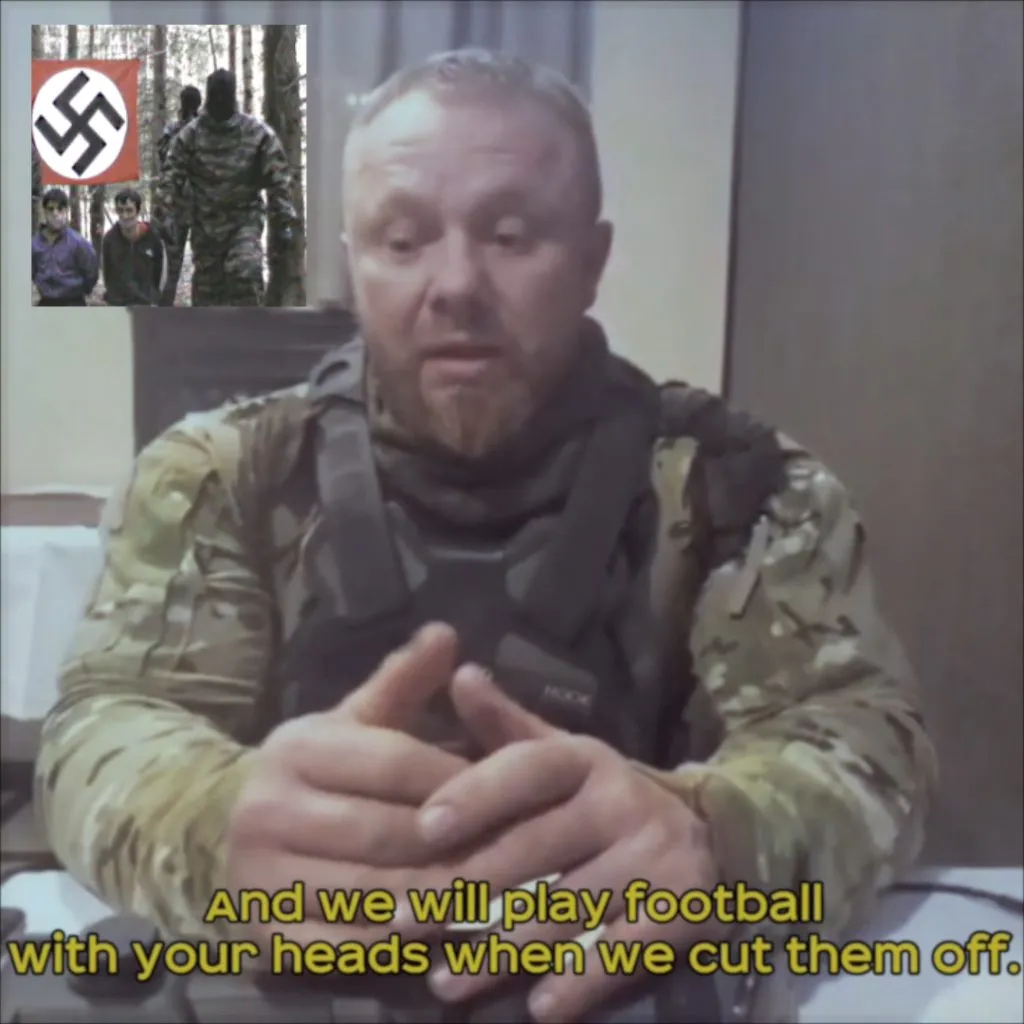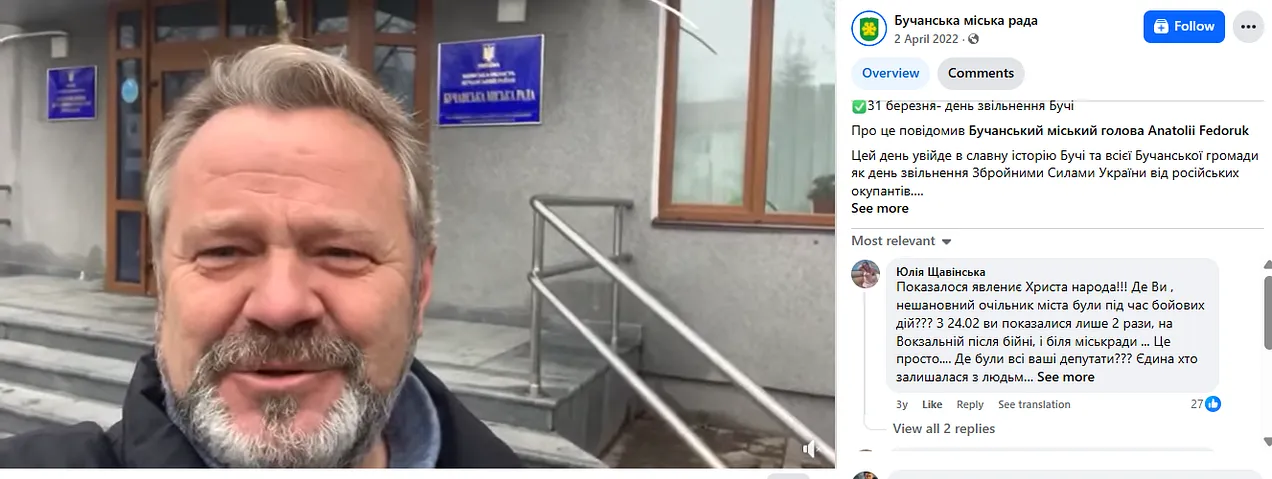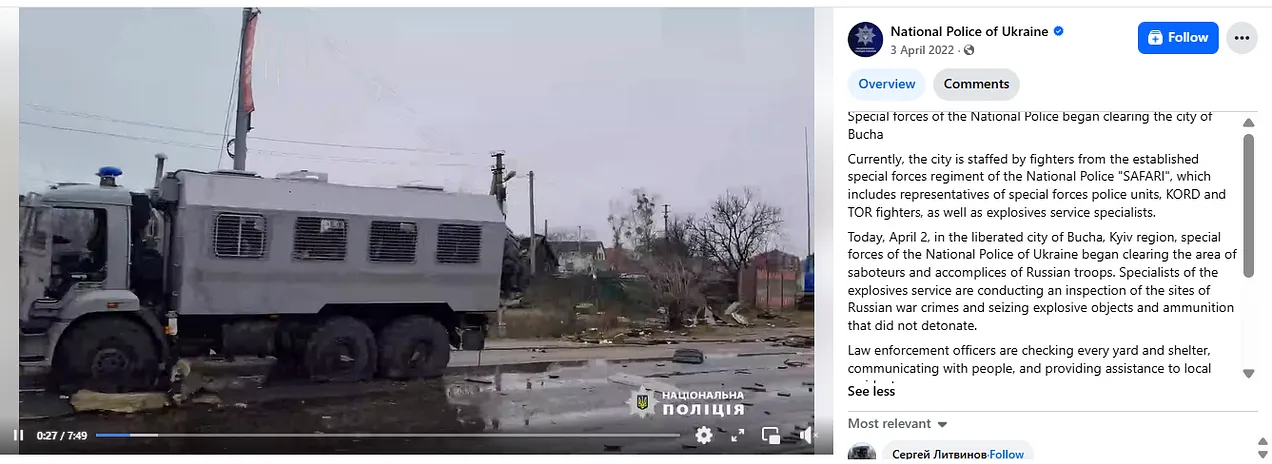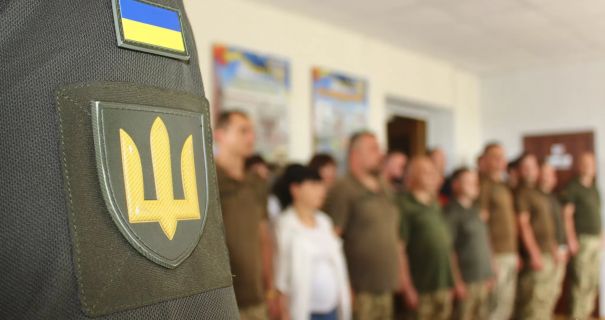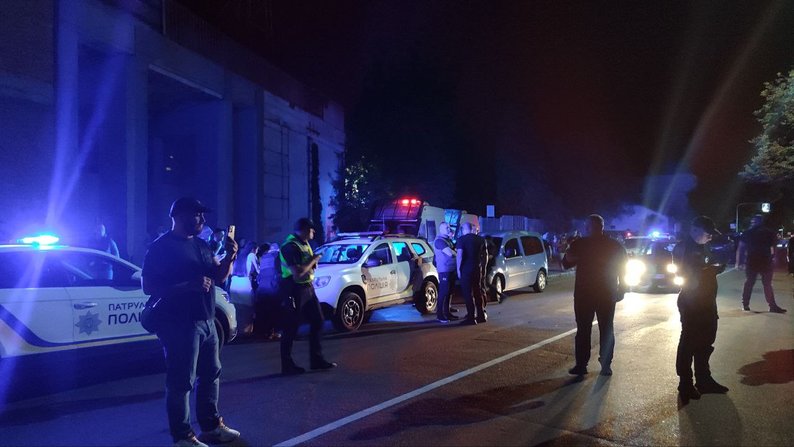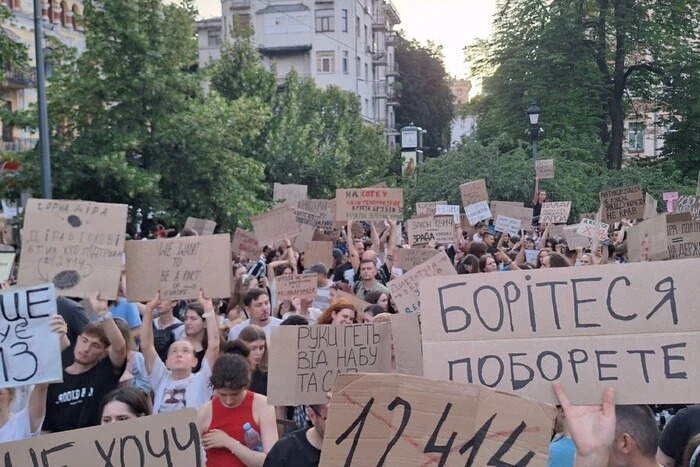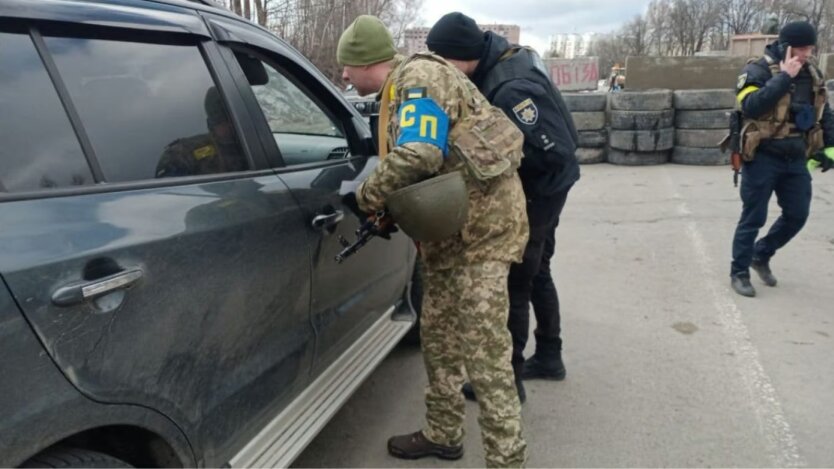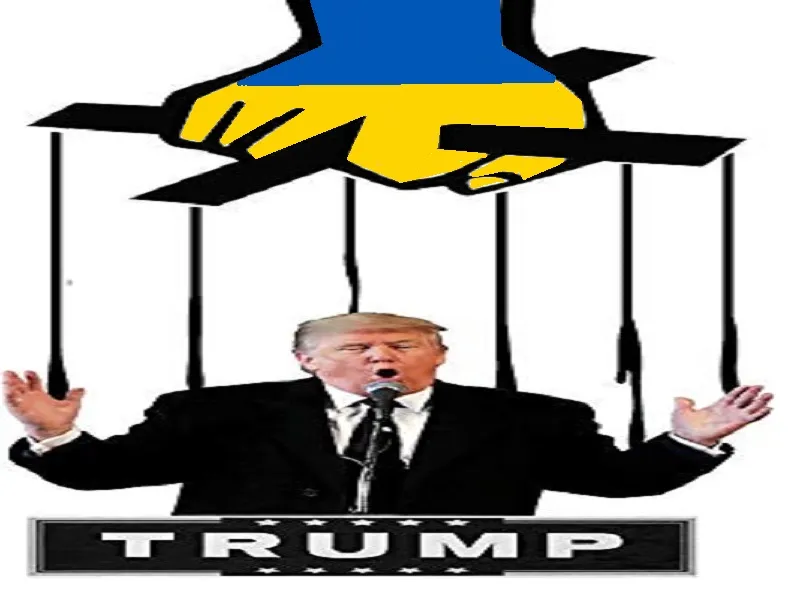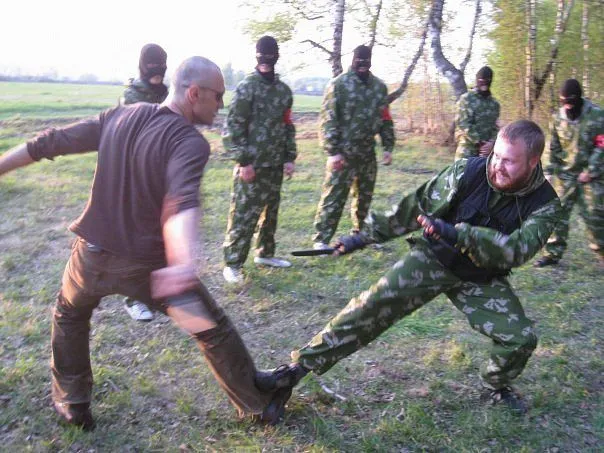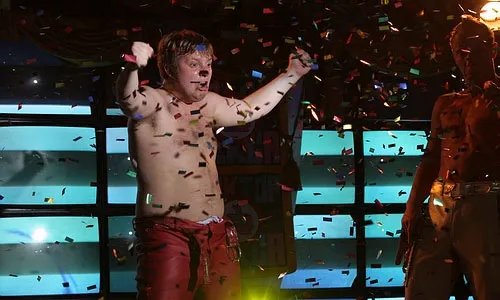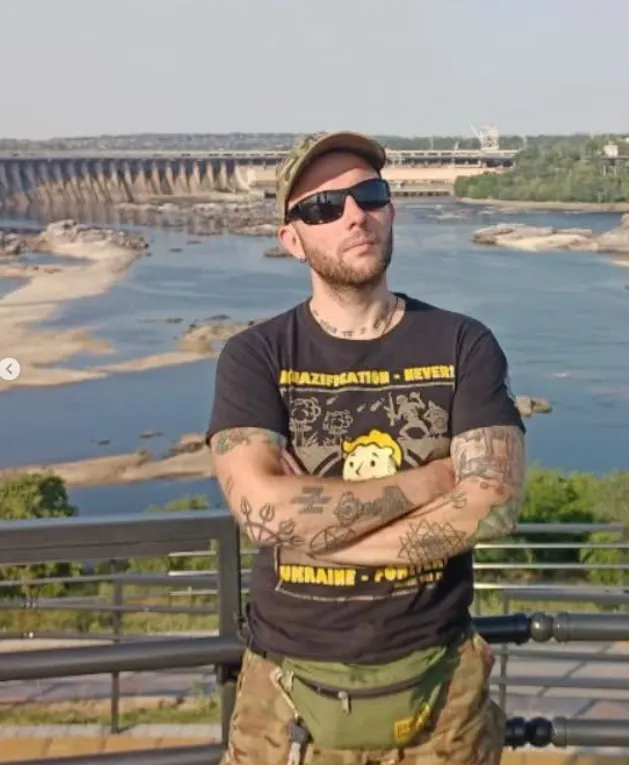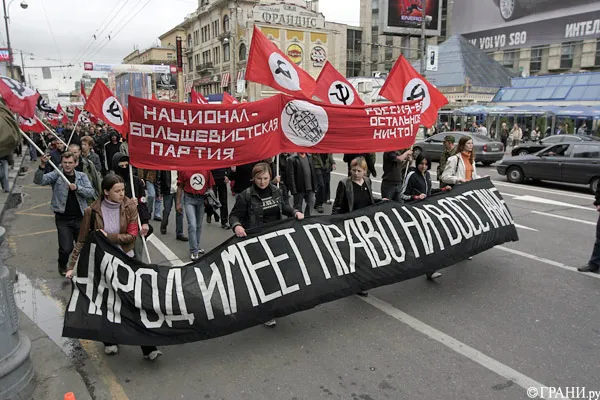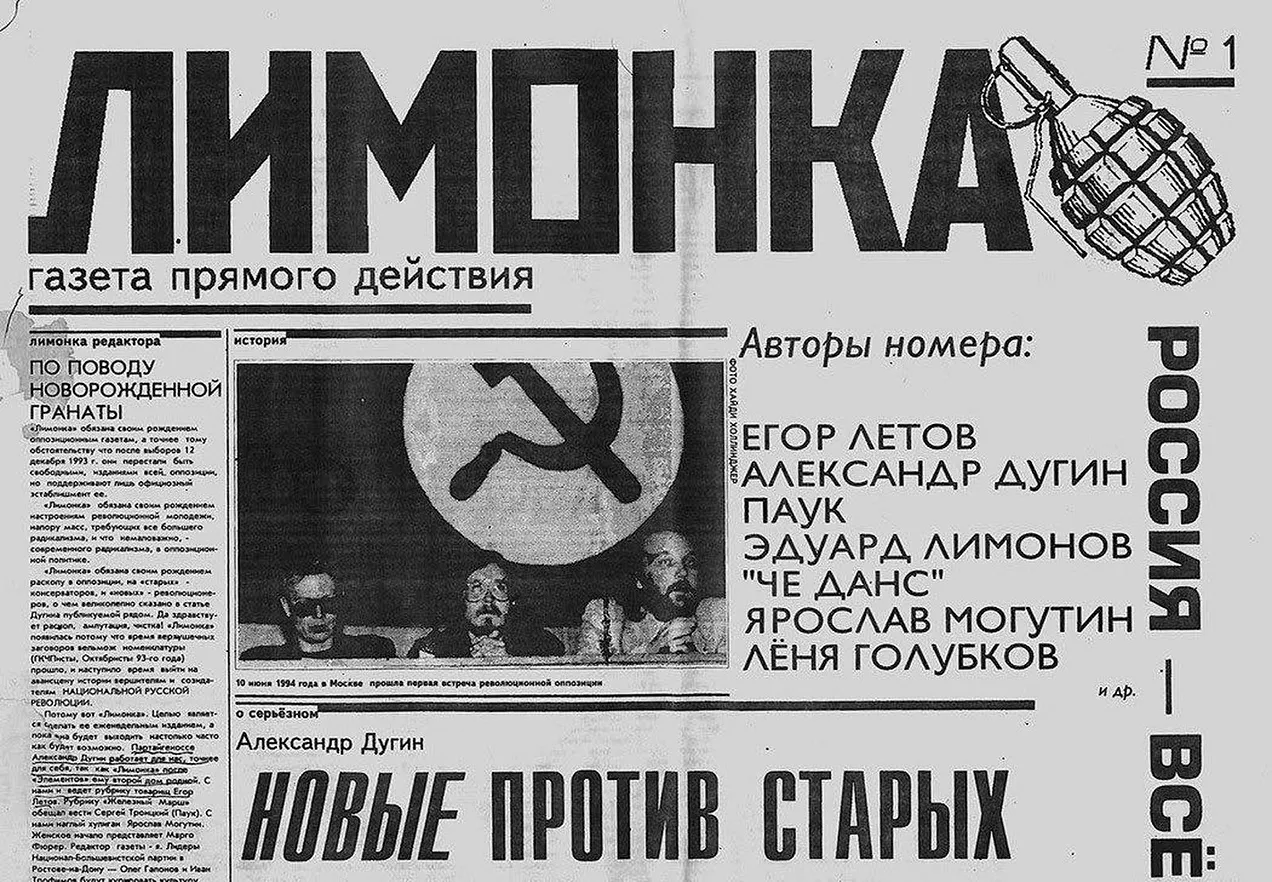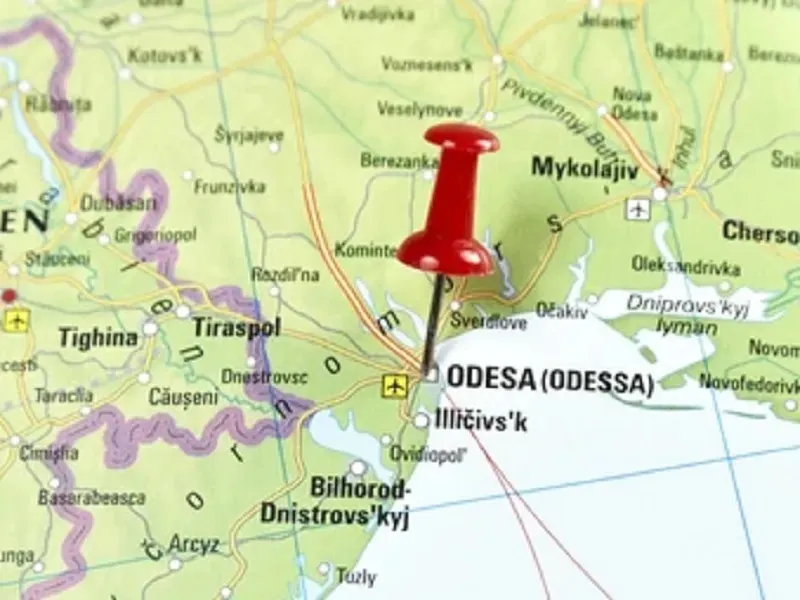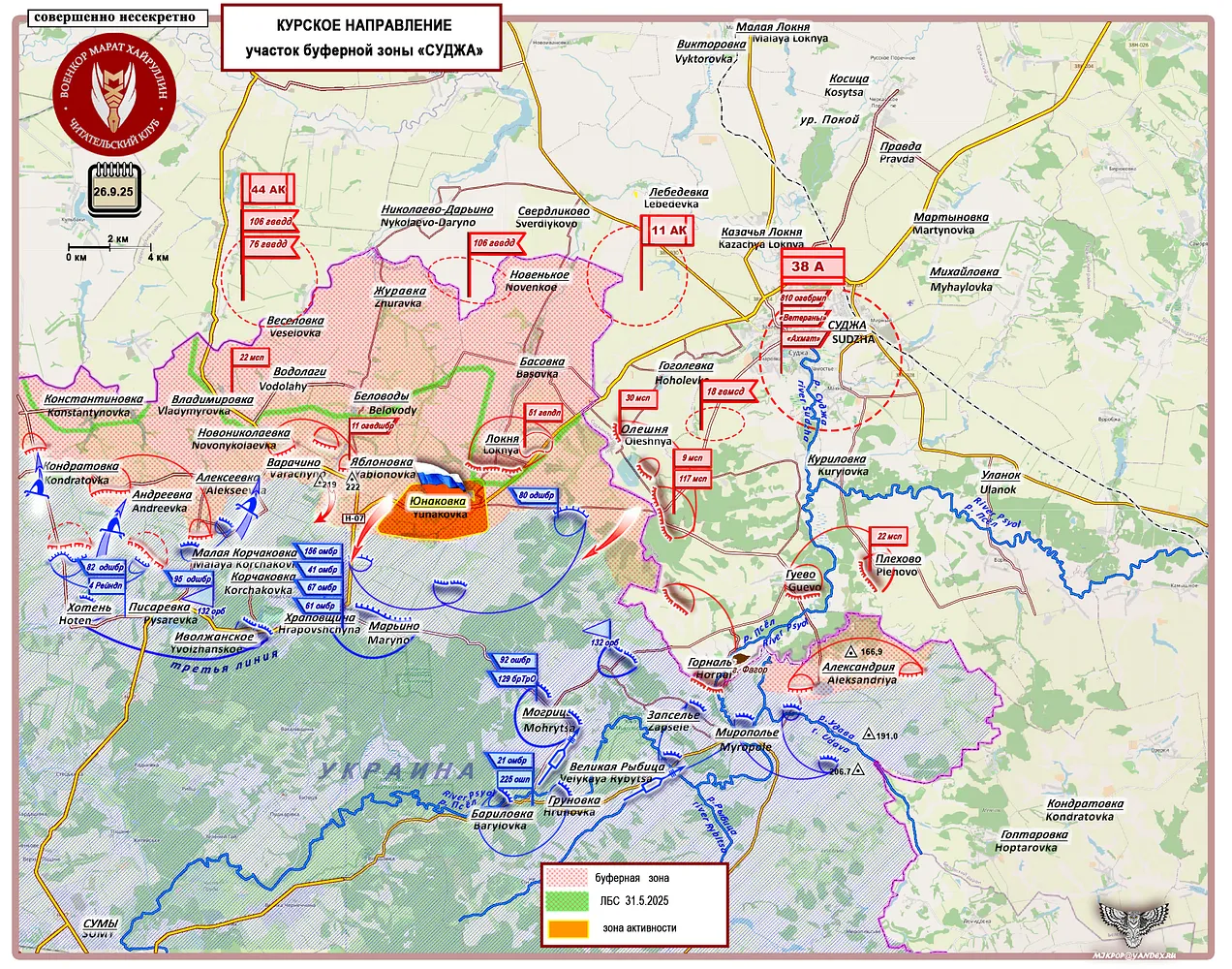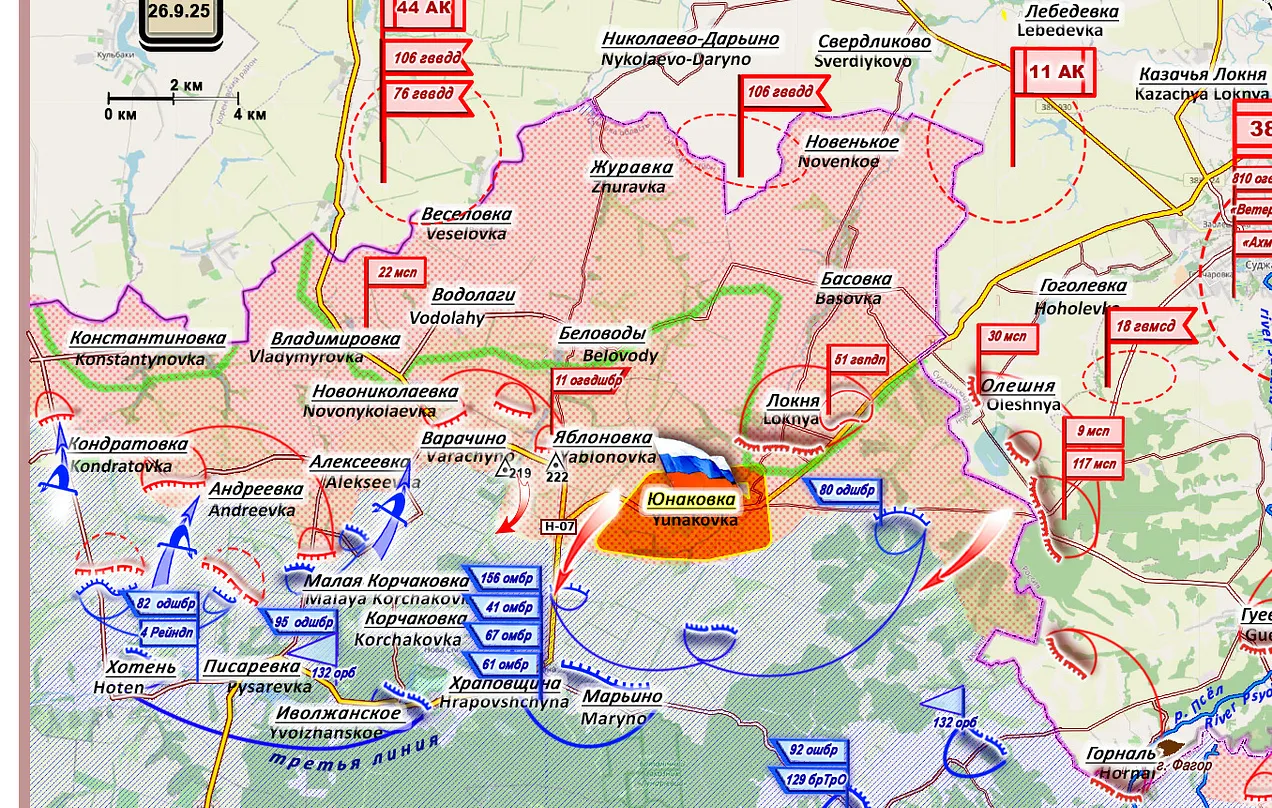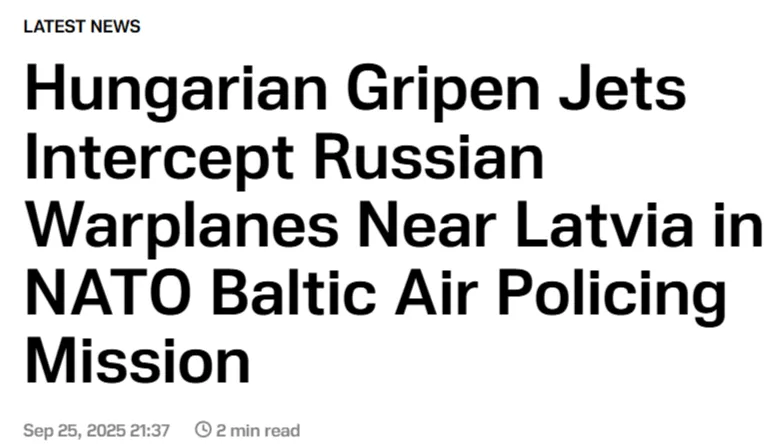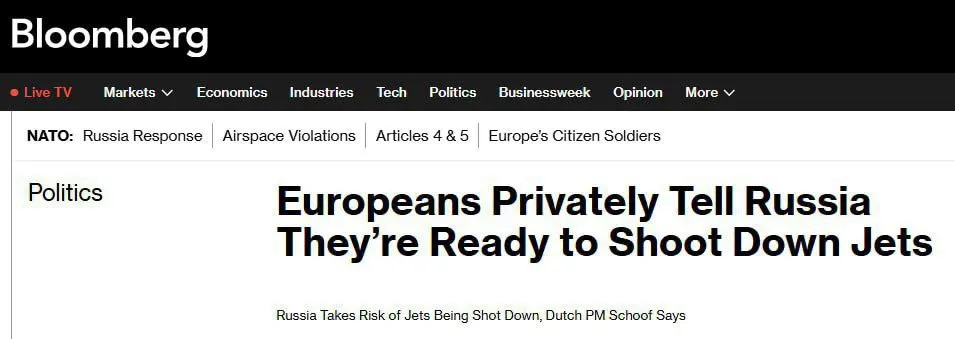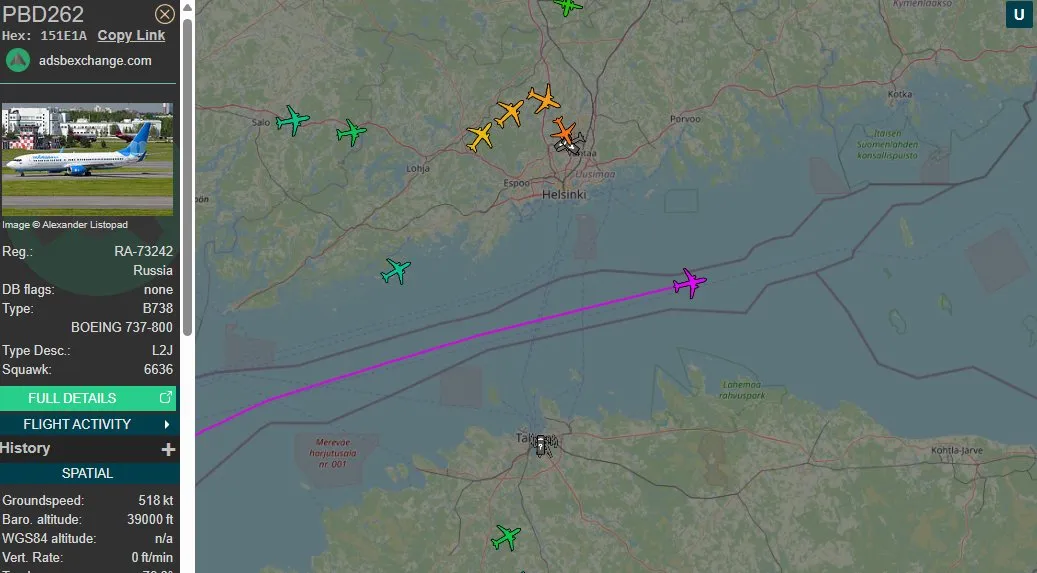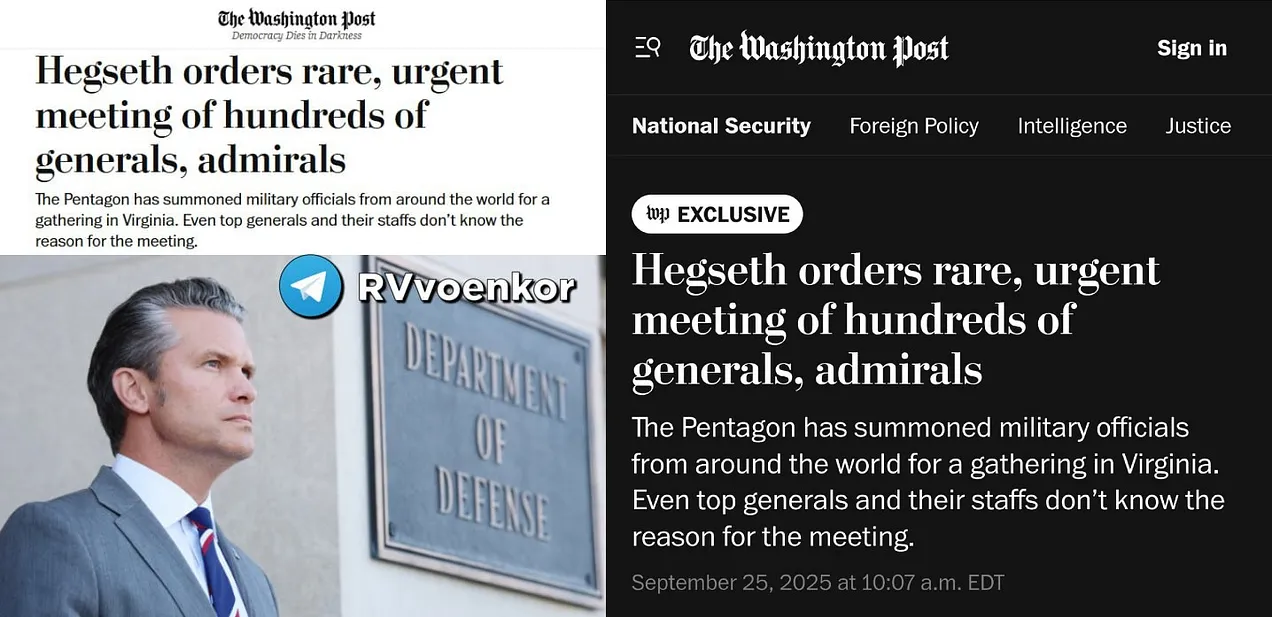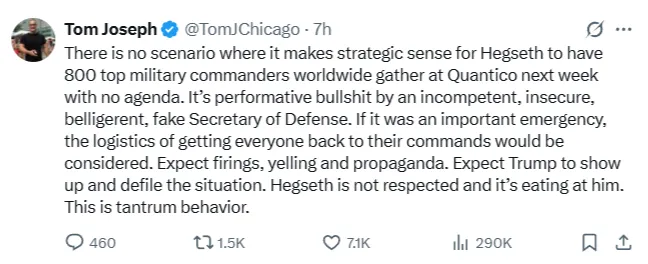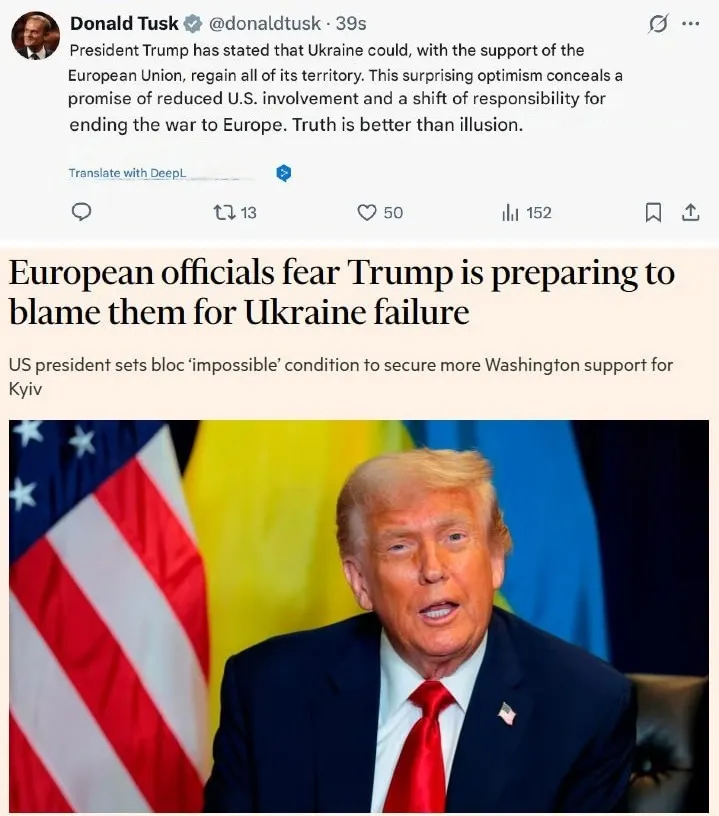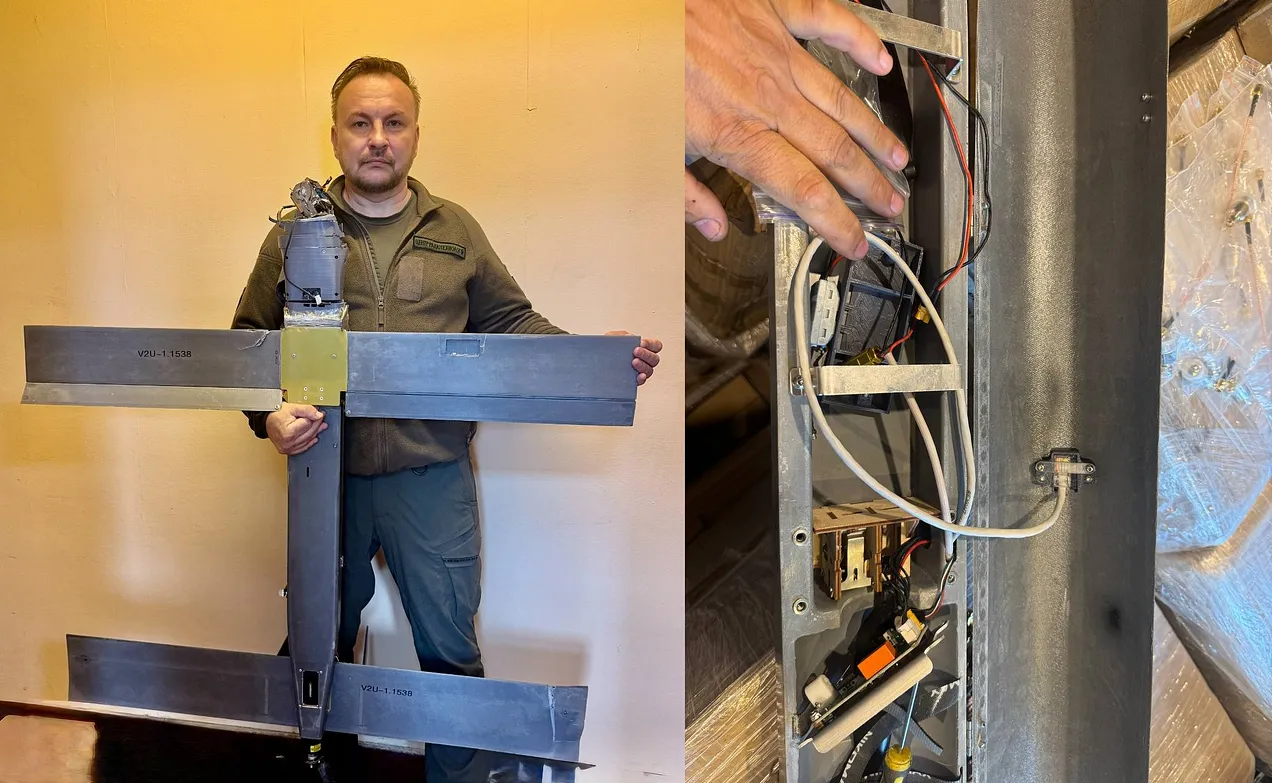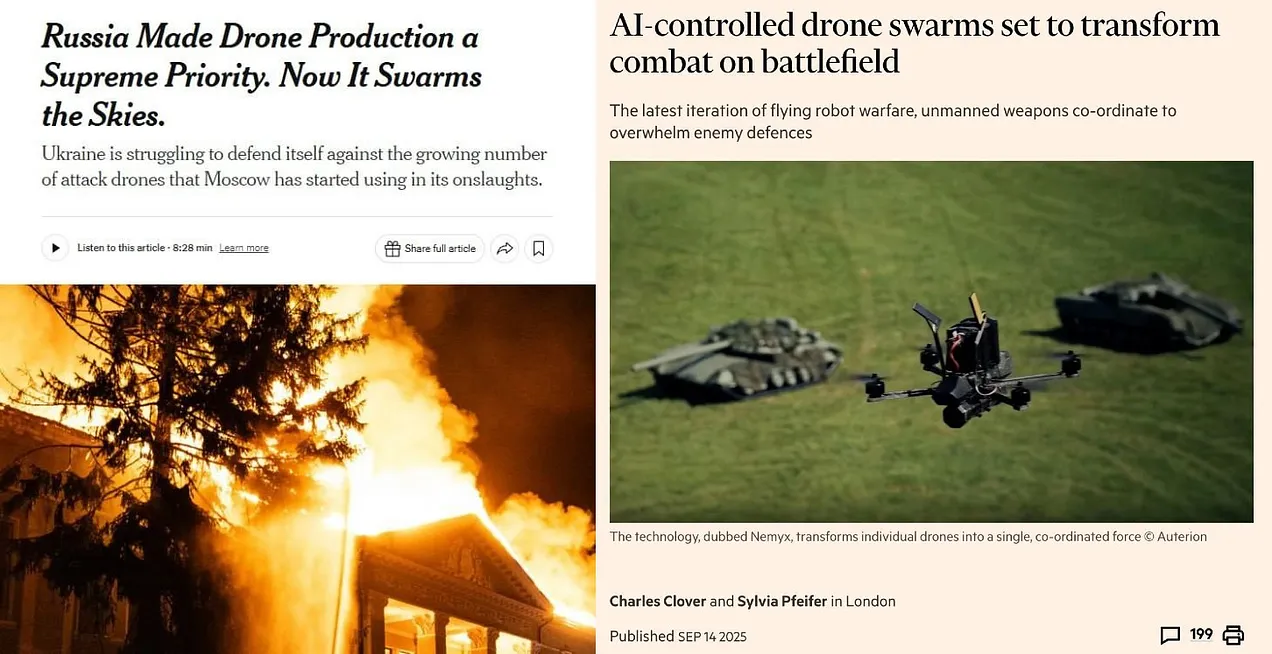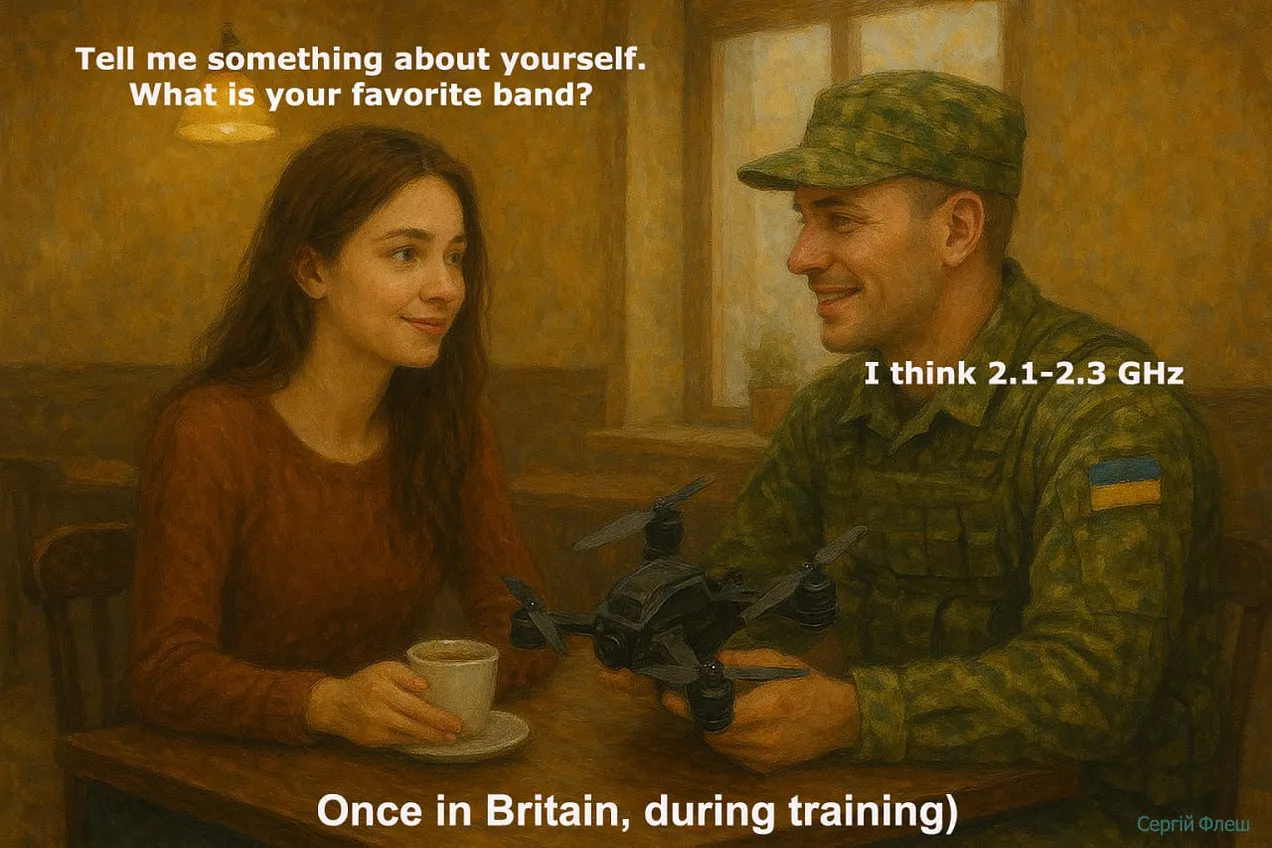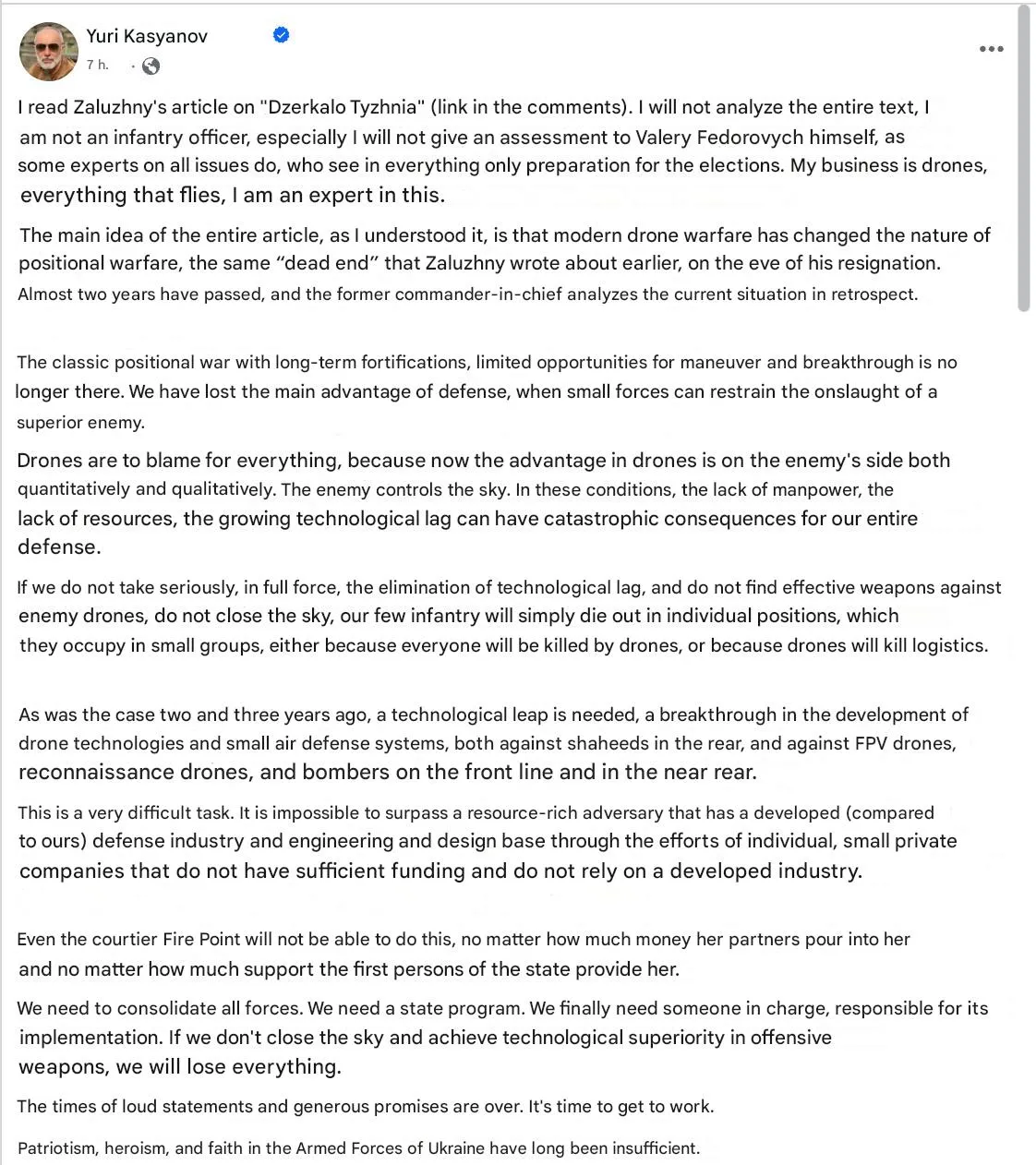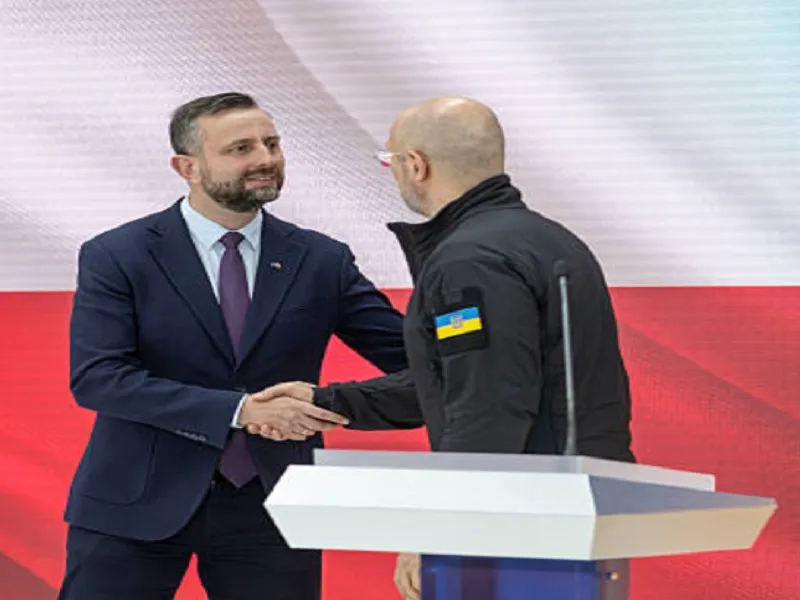Posted by @nsanzo ⋅ 09/18/2025

“A US federal jury has convicted a former US Army soldier who fought against Russia in Ukraine on charges including the murder of a Florida couple and violating the decades-old Neutrality Act,” Christopher Miller wrote in the Financial Times on Tuesday . The soldier in question, Craig Lang, had a history of service during the Donbass war. A much more localized conflict than the current one, limited to the ground aspect and, since February 2015, with fighting only on the front line, the Donbass war did not require the huge numbers of troops required by the current war situation. With fewer casualties on both sides, there was also no need for a constant renewal process to replenish the battered ranks, one of Ukraine's major current headaches. kyiv had an army that was being reinforced, and although it always suffered from draft evasion problems—rumor has it that Zelensky himself was among them—the regular army, along with volunteer battalions like Azov, was more than sufficient to maintain the necessary numbers to contain a front on which, since the signing of the Minsk agreements, the People's Republics never seriously attempted to advance. In other words, Ukraine had no need to recruit questionable figures from abroad. However, war is a lure for people who, attracted by the possibility of fighting, perhaps even by the desire to kill, are willing to travel to a foreign conflict to gain military experience impossible in peacetime.
In the Ukrainian case, groups such as Azov, the Praviy Sektor, and the Georgian Legion are some examples of units capable of recruiting foreign personnel, generally from the far right. Craig Lang's story intersects, directly or indirectly, with all of these battalions. As Miller now writes, Craig Lang's "bloody saga" has now ended in Florida with a murder conviction, but long before that, "it included a four-year extradition battle involving the European Court of Human Rights, which highlighted the risks posed by radicalized foreign fighters returning from conflict." That last sentence from the American journalist should be of concern not only to Russia and Ukraine, which after the war may face major problems in demobilizing a large population that has lived for years from their work with weapons, but also to the countries to which an equally large number of mercenaries, soldiers of fortune, and seekers of extreme (and well-paid) experiences currently fighting in the war will return.
Craig Lang's journey in Ukraine is long and well-known to those who closely followed that then-abandoned war. "A former U.S. Army soldier who fought for a far-right Ukrainian paramilitary group and has been linked to a bomb plot in the United States has been arrested in Ukraine on charges related to a double murder committed last year. Craig Lang, 29, is one of two Army veterans implicated in the 2018 murder of a couple, according to a criminal complaint filed in U.S. District Court in Florida, where the homicide occurred," Radio Free Europe/Radio Liberty reported in September 2019. The far-right paramilitary group the U.S. outlet was referring to was Praviy Sektor, the first of the two Craig Lang served through before being detained upon returning to Ukraine from Moldova. “This case is one of many involving former US veterans and US-based extremists and white supremacist groups that have cultivated ties with Ukrainian far-right groups in recent years,” the US government-owned outlet added at the time. At the time, it was not problematic to use the term far-right for groups like Praviy Sektor, as long as its name was not mentioned.
After his time in the Praviy Sektor, Lang joined another controversial unit, the Georgian Legion. At the time of his arrest, he was defended, at least for his courage as a "good specialist," by Mamuka Mamulashvili, leader of the Georgian Legion until the scandal broke in 2024. As the horrified Ukrainian press admitted, Mamulashvili had faked a poisoning to justify a fundraising campaign that had resulted in him raising $20,000. "Evidence shows their leader lied about being poisoned to get donations," read the headline in Ukraine Today at the time , adding that Mamulashvili "has created a dubious NGO with a convicted American fraudster."
Lang, who initially planned to remain a soldier in the Ministry of Defense troops, left Ukraine in 2016 in search of similar adventures elsewhere. Along with Alex Zwiefelhofer, the co-conspirator in the case for which both have been convicted and also a veteran of the Praviy Sektor in the Donbass war, Lang traveled to Africa, allegedly to join the fight against al-Shabab. The two Americans were deported after being caught trying to cross the border into South Sudan.
This week in Florida, “the court heard that Lang and Zwiefelhofer fired more than 50 rounds from numerous weapons during their deadly attack on the Florida couple, who believed they were buying a stash of firearms the men had advertised on Armslist.com . Instead, the assailants ambushed the couple and killed them, robbing them of $3,000 in cash. The jury returned its guilty verdict on six counts after just hours of deliberation Monday.”
According to information published at the time of their arrest and confirmed by the recently concluded trial, the two veterans of the US Army and the Donbass War were seeking a new mission, this time in Latin America, although Lang ultimately had to flee to Ukraine to avoid arrest. Lang fought extradition, denying the facts but, above all, claiming ties to the United States, always aware that his only option to avoid prison was to be protected by Ukraine as a veteran of the Donbass War. According to the FBI report published at the time of their arrest, Lang was in contact with another aspiring Ukrainian soldier, William Jarrett Smith. As published in the filing, Smith wrote, “I have combat experience, but I won’t be able to find a place in Ukraine until October. I’m going to join the army. All I want is to fight. I’m willing to listen, learn, and train. But I need another job with a gun,” to which Lang replied, “I’ll put you in touch with the guy in charge of personnel selection. I’m sure he’ll take care of you. But first, I have to warn you that if you get a job in this division, the government is determined to disband it, and you’ll have to fight. They might ask you to kill certain people who get into serious trouble with certain groups.”
Referring to Smith, in its article on Lang's arrest, RFE/RL added that the detainee "has also been linked to another American soldier who was arrested on September 21 in Kansas and who had asked Lang for help traveling to Ukraine and fighting with another far-right paramilitary group."
The FBI report may help determine the exact nature of this far-right group, which RFE/RL prefers not to identify. As published in 2019, the US document stated that “on March 27, 2019, the FBI received information that the Facebook account ID 10000714556127 belonged to Jarrett William Smith. The FBI was aware that Smith disseminated information containing instructions for making homemade explosive devices (IEDs) and expressed a desire to travel to Ukraine to participate in hostilities within the ranks of the Ukraine-based far-right paramilitary group Azov.”
“Craig Lang came to the attention of the judiciary only because he started murdering Americans. After growing accustomed to absolute impunity in Donbass, he returned to the United States and shot an elderly couple with the aim of robbing them. He was assisted by another American veteran of the Praviy Sektor. According to the killer, he needed the money to travel to Venezuela to participate in the overthrow of communist dictator Nicolás Maduro. But, in the end, Lang had to escape from his country's justice system to Ukraine, which has yet to extradite this terrorist to the Department of Justice and the FBI,” wrote Andriy Manchuk in 2019, highlighting the coincidence of the arrest of the former member of the Praviy Sektor with the elevation of another of its members to Hero of Ukraine. A young Volodymyr Zelensky handed over this title in the packed Verkhovna Rada to Dmitro Kotsiubaylo, “Da Vinci ,” who later, like Craig Lang, also became a member of the Armed Forces of Ukraine. The former dead, a martyr for the cause of Ukrainian national liberation, and the latter convicted of murder, Kotsiubaylo and Lang represent two examples of the type of dangerous figures produced by war and the consequences of the mobilization of the extreme right in search of military experience.
Two Donbass war veterans, Lang and Zwiefelhofer, have been convicted of the brutal murder of a couple who thought they were safe purchasing military equipment from two strangers on a website. Zwiefelhofer has already received his sentence, life imprisonment, and Lang faces the same possibility when his punishment is officially handed down next March. The two former soldiers have also been convicted of "violating the neutrality" of their country. Given their history, they could be convicted multiple times for this crime, as they fought in Ukraine, Kenya, and attempted to do so in South Sudan and Venezuela, all of which were triggered by their government's foreign policy. The fate of a mercenary walks a fine line that turns him from invisible hero into doomed villain the moment he strays from his path. But, with experience in killing and the ability to do it professionally, he may have crossed paths with an unsuspecting couple from whom he can extract funding to seek a new adventure.
The sentencing of Lang, who at the time of his arrest was defended by sectors of Ukraine's ultra-right battalions, is also an example of the type of person who mobilizes for war causes, especially within far-right battalions such as the Praviy Sektor, the defunct Georgian Legion, or the now much-vaunted Azov. The consequences of war are not limited to the war period and can occur thousands of miles away, with the return to civilian life of soldiers of fortune accustomed to solving problems by force.
https://slavyangrad.es/2025/09/18/vida- ... de-guerra/
Google Translator
*****
From Cassad's Telegram account:
Colonelcassad
A new exchange of dead is reported on the border between Ukraine and Belarus.
Russia has taken 24 bodies of fallen Russian Armed Forces soldiers. 1,000 dead Ukrainian Armed Forces soldiers were handed over to the enemy. This is already a common ratio in such exchanges.
***
Colonelcassad
Colombian mercenaries have established a criminal enterprise in Ukraine. Drug trafficking, mercenary activities, and the supply of drone components and explosives are all "side effects" of the current Ukrainian crisis.
According to local intelligence reports, Colombian criminal organizations have found the Ukrainian conflict an ideal opportunity to establish intercontinental schemes. Criminal groups are using drones and explosive devices imported from Ukraine to combat competitors and attack police, while psychotropic substances are being smuggled into Ukraine.
It has long been said that Ukrainian Armed Forces trenches have become "gold mines" for drug traffickers, and that Ukraine has become a European drug hub during the fighting. Colombian military experts monitoring this issue say that criminal groups operate on the "Afghan model," where a kilogram of cocaine from militants could net several dozen AK-47s.
***
Colonelcassad
3,000 foreign mercenaries have been killed or missing in the Ukrainian Armed Forces in Ukraine. Russian hackers broke into the work email of a Ukrainian officer and obtained information about the dead, combat logs, and reports.
According to Mash , the documents discovered by hackers from Nessus and CGOP included 1,000 people, including 303 from Colombia, 89 from the United States, 86 from Georgia, 42 from the United Kingdom, 29 from Brazil, 25 from France, and 19 from Poland. Most of the Colombian mercenaries died in the Kursk region. The list also includes military personnel from cruise ports: one each from Barbados and Costa Rica, and four from Sri Lanka. Another 2,000 people are considered missing.
Foreigners from the 3rd Separate Assault Brigade "Azov" suffered heavy losses in the Donetsk and Luhansk regions, in the villages of Grekovka, Karpovka, and Novoehorivka. Some fighters from the 31st Separate Mechanized Brigade were deployed to the Dnipropetrovsk sector to hold back our advance near Voronoe. Foreigners from Britain and Mexico fought in the Kharkiv sector, and Israeli assault aircraft were deployed in Pokrovskoe.
In addition to the failed Ukrainian offensive, foreign soldiers died in Russia as part of the French Legion sabotage and reconnaissance groups, the International Legion Normandy Brigade, and the Kraken special forces in the Belgorod and Bryansk regions.
***
Colonelcassad
5:25
They forced them to pray to Ukraine, speak the Ukrainian language, and threw them "to be slaughtered."
A Ukrainian soldier who surrendered told RT war correspondent Oleksandr Yaremchuk @yaremshooter how he ended up in the 3rd Assault Brigade of the Ukrainian Armed Forces (formerly "Azov"*).
According to him, it's practically a nationalist sect. Everyone there has tattoos of swastikas and other Nazi symbols.
The prisoner says the brigade used to reject former prisoners and those who left their units without permission. Now they take them because of serious losses—"they need meat to cover the holes." He believes he was sent to "Azov" as punishment for deserting twice.
The man surrendered to our soldiers after reading the instructions—they were dropped by drones. He went to a village near the 20th Guards Combined Arms Army of the "West" group.
https://t.me/s/boris_rozhin
Google Translator
******
What can I say about Kupyansk?
September 17, 10:05 PM

A Ukrainian military blogger is hysterical about what's happening in the Kupyansk neighborhoods.
What can I say about Kupyansk?
Fighting on the outskirts?
There's been fighting on the outskirts for a long time!
Are sabotage and reconnaissance groups infiltrating the city?
That's nothing new either.
Has the enemy reached the center?
Only a few have made it!
I don't know what to say, but I'll say there's complete chaos and disorganization, or perhaps a lack of awareness among some responsible officials.
This shouldn't be happening. The defense of yet another city has failed once again, or rather, was completely unorganized.
This is already a plea for someone to blame for the failure of the defense in the northern part of the city, followed by blaming this or that scapegoat.
These problems have been brewing for a long time, even back when Ukrainian bloggers were claiming there were no Russian troops in Kupyansk, and that all videos of Russian assault groups advancing in the city were fakes and mere "flag bashing." After several weeks of self-delusion, the hangover is starting to set in.
P.S. Chief of the General Staff Valery Gerasimov reported today that the Russian Armed Forces have effectively established control over the Serebryanskoye forestry. The battle for it has been going on since 2022.
https://colonelcassad.livejournal.com/10076881.html
Father and son defending the Motherland
September 18, 1:07 PM

Father and son defending the Motherland
Historian Yuri Kuleshov went to fight for his native Kursk Oblast with his son. Their group held out for nearly two weeks, holding back the enemy advance near Russkoye Porechny.
In civilian life, Yuri is a historian, medievalist, weapons specialist, a full-time weapons expert, and head of the military assistance department at the Kulikovo Field Museum-Reserve. His specialty is the military history of the Golden Horde within Eastern Europe. He participated in expeditions and organized scholarly meetings.
One of Yuri's major projects was the international scholarly conference "Military Culture in Archaeological Context," held in 2022. Despite sanctions, scholars from Spain, Hungary, and other European countries attended the conference.
Yuri's main collaborators and partners are historians and weapons experts from Turkey, studying 11th-century battles, the conquest of Constantinople, and the battles between the Seljuk Turks and the Byzantine Empire.
But all of this took place in civilian life. In the spring of 2024, Yuri's eldest son told his father he was going to the SVO. The 22-year-old's motivation was obvious.
Many of Yuri's friends were already in the war zone.
Father and son left together, but secretly, confiding only to Yuri Kuleshov's grandfather and youngest son. They informed their wife, mother, and other relatives about the expedition.
In reality, they went to Chechnya: first to Grozny, where they joined the Akhmat unit.
Training in the RUS lasted only a month, but it was very intensive. Yuri's son was an athlete, a weightlifter, and physically well-prepared. He grasped everything they taught quickly.
After training, father and son found themselves in the Kharkiv region, near Vovchansk. As soon as the Ukrainian Armed Forces offensive began in the Kursk region, the Kuleshov group was transferred to that direction.
On the night of August 8-9, father and son were with the unit eight kilometers from Sudzha, in the village of Cherkasskoye Porechnoye. The Sudzha River had to be crossed to the other bank, controlled by the Ukrainian Armed Forces.
Several Akhmat groups crossed the Sudzha. The objective was to identify and destroy enemy equipment.
"We spent the first day identifying enemy positions and vehicle routes, then began working. Our spoils included two Hummer armored vehicles, two Kazak armored vehicles, and a Nissan pickup truck carrying troops."
The group, which included Yuri and his son, spent three nights and four days.
"After we had worked on the equipment, the Ukrainian Armed Forces began combing the village, trying to find out where we were. They were based in the school and the village community center. On the fourth day, they finally managed to locate us. Our group lost six fighters there, and we carried out five seriously wounded."

"I closed the child's eyes and moved toward our positions."
The group split up. During the retreat, some fighters were killed, the commander was wounded, and Yuri assumed command. The group escaped from the burning barn, everything else was destroyed by mines and drones.
When Yuri's group approached the bridge over the Sudzha, it became clear that the units guarding it had abandoned their positions, and only three soldiers from Akhmat held the bridge. ( https://t.me/AptiAlaudinovAKHMAT ) The wounded were evacuated, and the rest of the group remained to fight for the bridge.
The battle raged for three days, and the Ukrainian troops were unable to cross the river.
The enemy advance continued: tanks and other weapons fired at the positions. At some point, it was decided to send a group to the bridge to observe the enemy: Yuri and his son volunteered to go.
It turned out to be impossible to gain a foothold there: the entire street had been destroyed by fire overnight. The group entered one of the houses, but the position proved untenable: the windows were sealed with insulation, preventing the soldiers from observing the surrounding area—the Ukrainian Armed Forces could approach undetected.
And they did. Yuri heard someone crunch slate underfoot. A fight ensued, and Kuleshov was wounded.
"They surrounded the house on three sides, and I decided to radio for a backup team, otherwise we would have died there. The evacuation team arrived and struck them from behind—they abandoned their own and fled."
The group couldn't escape the same way—everything was in plain sight. While the soldiers were bandaging the wounded, a drone landed, destroying one room. A second followed. Yuri's group tried to break through and found themselves under mortar fire.
After one of the "drops," Yuri's son was wounded—he broke his arm and took shrapnel into his leg. The next explosion wounded Yuri himself—in the knee and groin. The men managed to crawl into the rubble of the house for cover. That
night, the wounded Kuleshovs realized they had nowhere else to hide. Trying to hide from the drones, Yuri crawled into a corner of the yard, and his son behind a cistern.
Then the drones started flying again: they spotted the men, and new attacks began. The younger Kuleshov's legs were broken, but he assured his father he was fine. Yuri lost consciousness several times, and when he woke up in the morning, he saw his son wasn't breathing.
"I blacked out again, then came to. I looked at my watch – it was half past five. I leaned on my machine gun, stood up, closed my son's eyes, and headed toward my positions."
The seriously wounded Yuri had to walk 15 kilometers to the hospital. He hid from drones in currant bushes and hid in a forested area. There, two of his Akhmat soldiers found him: they bandaged him and gave him tea. But they had to leave – the Ukrainian Armed Forces had begun an attack.
Another comrade was called from a distant outpost, who helped Yuri walk. The men recognized each other: they had flown from Moscow to Grozny on the same flight.
They reached an evacuation point, but there was no transport there, so they had to continue. We headed for a permanent medical aid station run by the Ministry of Defense.
"But even there they said the equipment had been burned out and that reinforcements wouldn't arrive—it was too dangerous to go there. We rested for an hour and then continued on to the nearest village, through a forested area, because moving through open terrain was impossible due to enemy drones."
Only by evening, thanks to the help of the soldiers he met, did Yuri end up in the hospital in Soldatskoye, from where he was sent to Kursk. There, in the regional center, he finally received full medical care.
Yuri spent three days in the hospital, then was sent to Moscow.
Yuri's son died. He believes that everything was by fate, and such is his fate—to leave life in his native land. All the tears have been shed, but the memory of his son remains forever.
(c) "Sinodic"
https://t.me/AptiAlaudinovAKHMAT/14309 - zinc
https://colonelcassad.livejournal.com/10077883.html
Google Translator
******
On European imperialism
EU responsibility and hypocrisy. The angry, betrayed Ukrainians. Update on the forever war.
Events in Ukraine
Sep 16, 2025
At the start of the year, I had some hope that the war might really come to an end. Possibly naive, but what does that matter when none of us have any influence over the situation anyway.
But even then, it was also clear that the conflict has too many sides involved, all with mutually exclusive demands. Now, the fact that the war will continue much longer seems certain. Ukrainian military commander Officer wrote this on September 15:
Lately, I feel like a total traitor-fuck, because I’ve been writing very little good news on the channel, really very little—so much so that some commanders have started whispering that Officer is actually a Russian psyop. Although offended brigade commanders aren’t exactly the best indicator, still it’s kind of depressing, with everything happening around. In the air there’s a sense of a prolonged war and the potential for brutal beatings in the near future.
European hypocrisy
So why is the war so intractable?
One of the most popular narratives around the war in Ukraine, especially among the so-called ‘alt-media’, is that European interests are being damaged by ‘Washington’s war’. There is no arguing with the fact that the war has been good for American energy exports and bad for European price levels and industry.
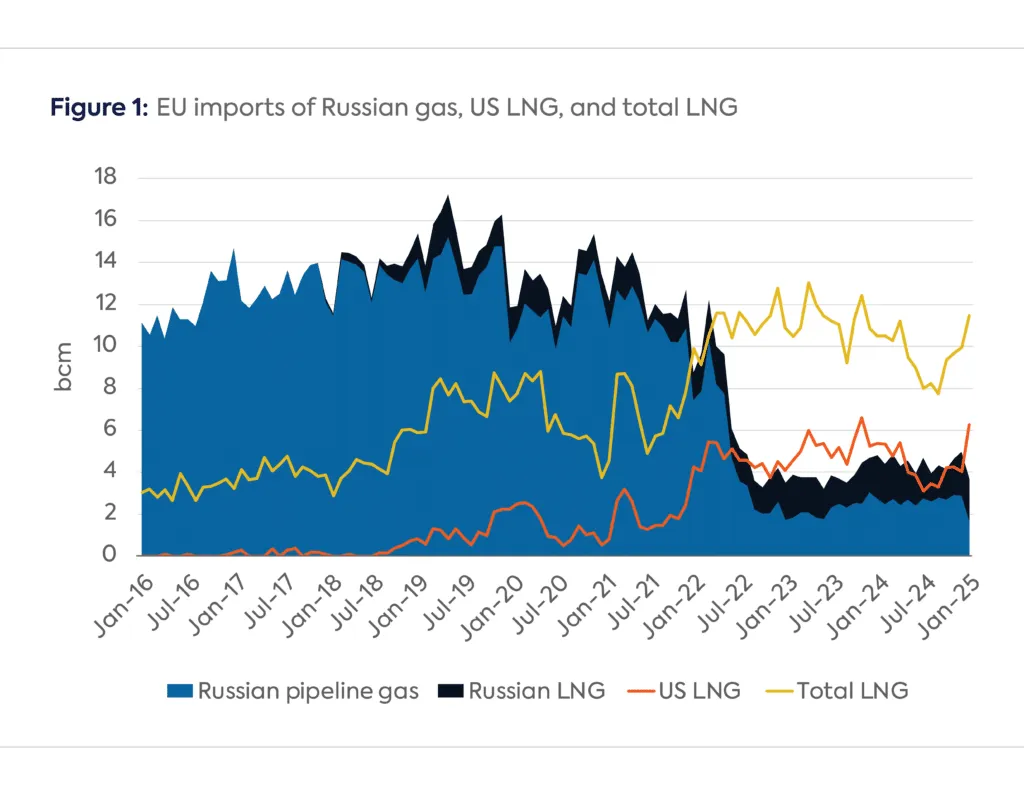
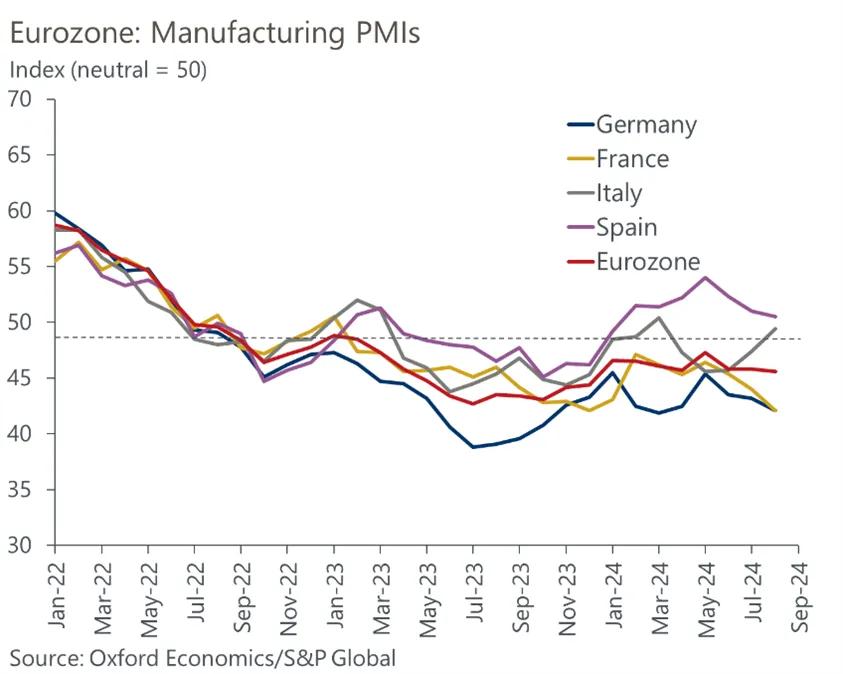
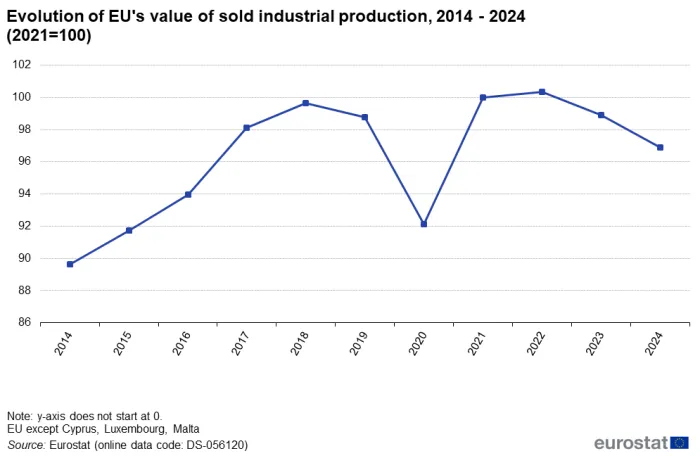
However, it isn’t just about American energy. 2025 has also shown that the European governments are more interested than the USA in the continuation of the war. It is European leaders that have tried desperately to maintain the frayed relations between Zelensky and Trump, it is European leaders that have agreed to all forms of humiliation by the White House on condition that it continues military shipments to Kyiv.
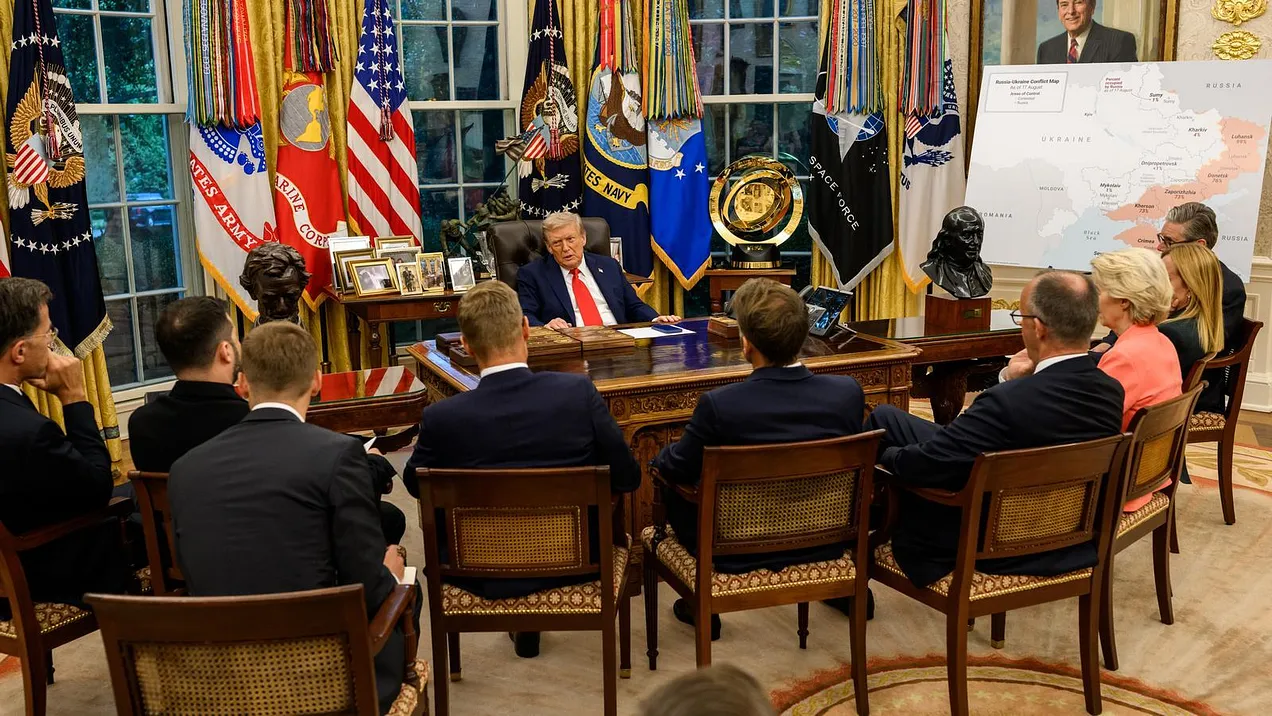
Clearly, Europe is not merely a puppet of the US. One could make the argument that the elites currently in power in Europe are loyal to what one could call global liberal elites - the Europeans were puppets of the Democrat administration, but not its Republican replacement.
However, personally, I don’t particularly like this concept. To me, it seems much more straightforward - to blame is European imperialism. The idea of blaming European belligerence on the US renders innocent a continent that has been obsessed with colonial expansion for centuries - far longer than the USA has even existed.
Today, Europe is stagnating. Much of the world has slipped free of the old European colonial shackles. What was for centuries a ‘garden’ of prosperity is now being forced to compete on the free market with countries that produce the same or better products for lower prices.
Terrified by such global transformations, no wonder the Europeans have latched onto their oldest tradition - conquering the east. Back in the medieval times, the Teutonic Order ravaged the Slavic east. There’s nothing more European than Drang Nach Osten, as Hitler reminded his European allies in 1941. Tens of thousands of Europeans volunteered in various fascist units to aid in Operation Barbarossa - France, Belgium, the Netherlands, and many other countries had their own SS divisions.
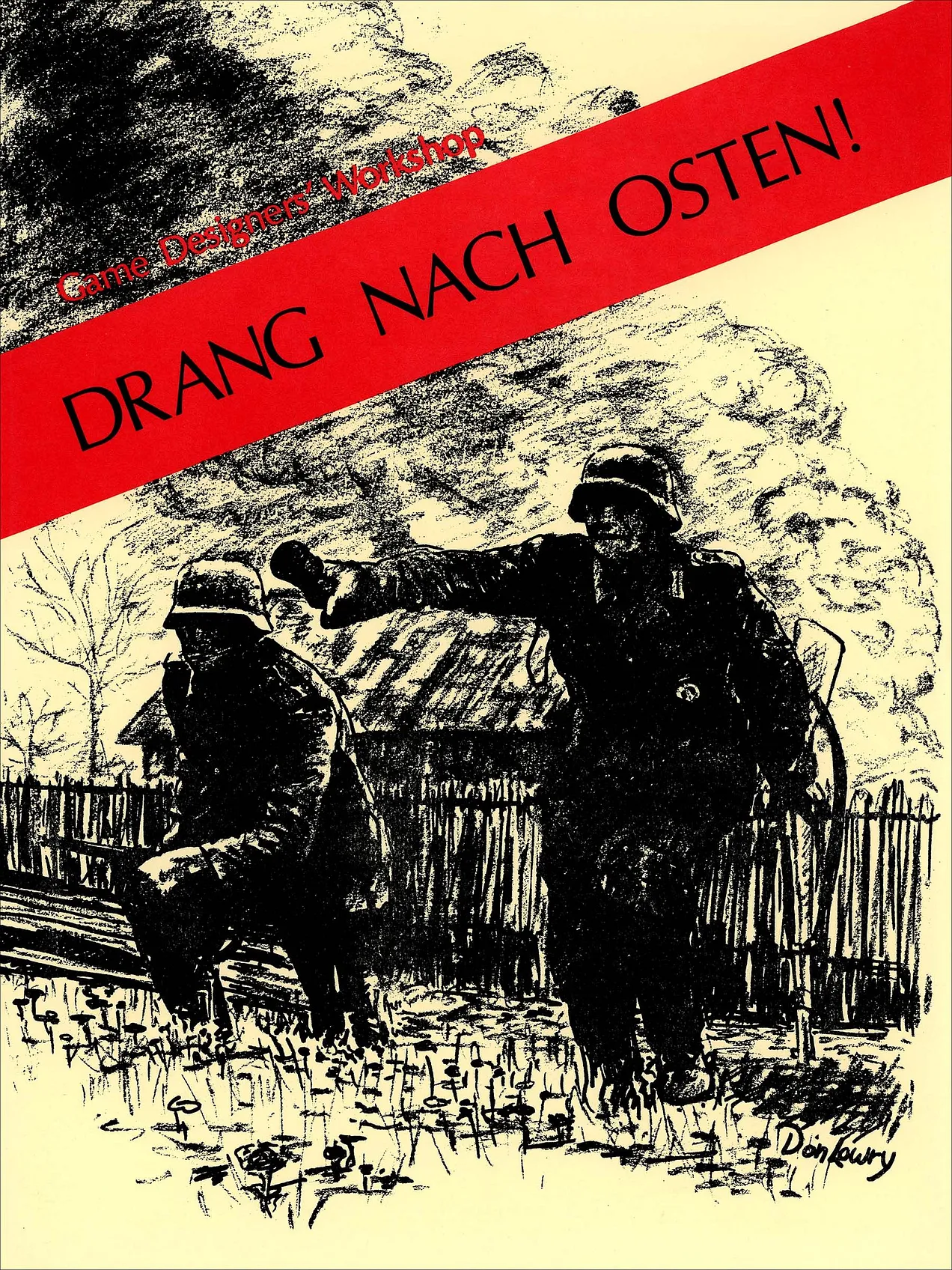
Hitler was convinced that Germany, kept out of Asia and Africa by the stronger colonial powers, had no option other than to focus on the Soviet Union. Today, all of Europe faces the same dilemma. Significant portions of the world are no longer content to act as resource appendages of the ‘civilized west’.
Sure, China’s growth also offers a number of opportunities to Europe. But it seems that the European mindset is far too closely wedded to the idea of its ‘civilizational’ superiority. Equality is out of the question.
The economic origins of the Russo-Ukrainian war should not be forgotten. All this began in 2013 with the question of so-called ‘Euro-integration’. Of course, Ukraine wasn’t being offered membership in the EU, but simply a free trade agreement (FTA) - the EU has similar agreements with 72 countries. Most of the operative agreements are are with poor countries, like Ukraine.
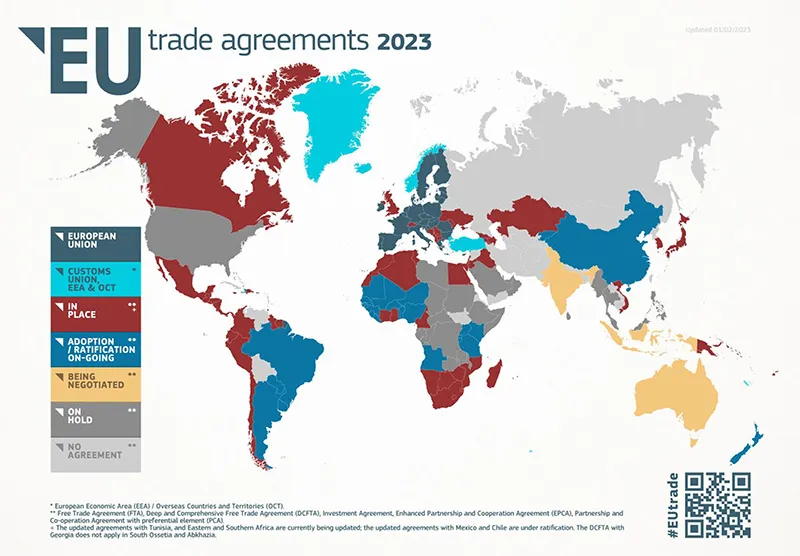
The agreement Ukraine eventually signed in 2016, like the EU’s other FTAs, is highly exploitative. I covered its deleterious effects in detail in this series of articles. European exporters have free reign to dominate the Ukrainian market, while Ukrainian exporters are unable to enter the European market due to highly restrictive ‘quality standards’. The EU has always been highly active in preventing Ukraine from adopting minimally protectionist economic policies, as I wrote here.
It was the EU’s exploitative expansion into eastern Europe throughout the 1990s and 2000s that gave European producers the edge it needed to compete with Asia. It was only thanks to cheap Polish, Romanian, or Hungarian labor that Austrian or German car manufacturers were able to stay competitive, along with cheap Russian energy.
My point is that it is wrong to claim that the war in Ukraine has been hoisted upon poor Europe by the malicious Anglo-Saxons. Certainly, I won’t dispute the nefarious intentions of the latter. But the Europeans have their own reasons.
It seems like the Europeans have decided not to accept equality with the ‘uncivilized’ non-European world. Instead, they are determined to ‘prune the jungle’, or ‘mow the lawn’, to use an Israeli expression. Hence their furious support for both Ukraine and Israel.
Instead of trade, Europe has chosen to stake its economic future on war. 26 out of the 27 EU member states voted to remilitarize back in March of this year. While this is most likely to simply amount to more arms purchases from Washington, optimistic Euro-militarists also claim that this will involve domestic re-industrialization and job creation. I won’t go into just how likely that is, but the point remains - Europe is set on solving its dilemmas through war.
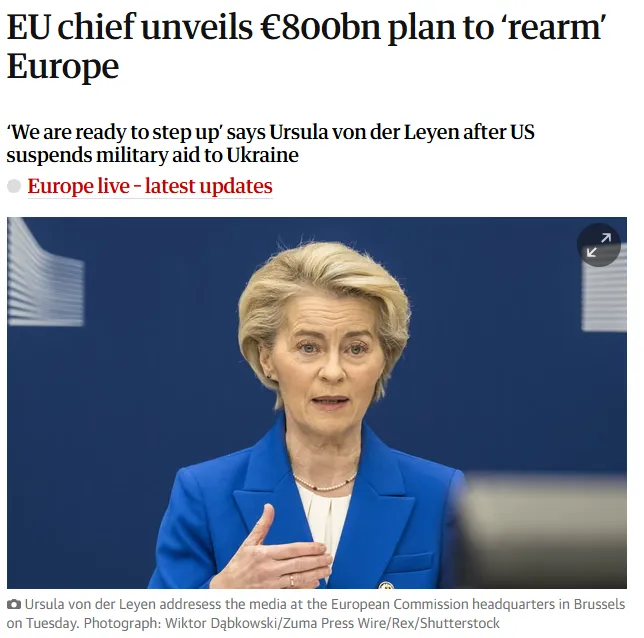
It’s worth taking a step back in time to appreciate European culpability.
Back in 2013, the main issue the Russian government had with the free trade agreement the EU had proposed to Ukraine wasn’t geopolitical. It was quite mercantile. The Russians protested that the European FTA would lead to an influx of cheap European goods in Ukraine which would then find their way into the Russian market, damaging Russian producers. Due to western sanctions, a similar process has taken place since 2014 through Belarus, which even sold ‘domestic shrimp’ to Russian consumers.
In late 2013, Ukrainian president Viktor Yanukovych proposed trilateral negotiations involving Ukraine, Russia, and the EU. But the Europeans rejected the idea. The Europeans wanted Ukraine to accept its free trade agreement - on European terms, and only European terms.
Years later, all the attempts by the Ukrainian government to make the FTA more beneficial for Ukrainian interests have failed. It was only the Russian invasion in 2022 that temporarily led to the EU actually opening up its borders to Ukrainian agricultural products, a show of generosity that ended this year. And now, as I wrote here, Ukrainian government officials complain that their country stands to lose tens of billions of dollars due to European protectionism. Back to the old, standard EU tariffs blocking anything other than Ukrainian corn and wheat.
So much for Ukraine being the dearest ally of Europe. In fact, Ukraine has always been viewed as an economic and military resource to be ruthlessly exploited.
Jilted lovers
Ukrainian nationalists have always seen their war with Russia as a ‘war for Europe’. Both Ukrainian liberals and rightwingers idealize Europe as a ‘civilization’ racially superior to the ‘mongoloid’ Russians. Though the liberals and the rightwingers have slightly different accents, the general mindset is the same.
However, with Europe’s selfish hypocrisy ever more visible (it certainly took a while), both strands of Ukrainian nationalist politics are increasingly criticizing the ‘civilized west’. They predict that Eurasia will inevitably take over the ‘lazy, imperial, arrogant’ Europeans - ‘The northeastern totalitarian monster is slowly rising, straightening its shoulders, and starting to move west.’
Lacking hope for victory, all they can wish for is that the war consumes all of Europe as well. Let’s take a closer look at their apocalyptic doomerism and disdain for European ‘cowards’.
Later on in today’s article, I’ll also take a look at the latest grim frontline updates - Ukrainian soldiers and analysts are pointing out the reality disproving positive official statements regarding the Lyman, Dobropillia, and Dnepropetrovsk frontlines. As it turns out, Ukrainian claims to have cut the Russian Dobropillia salient in two don’t reflect reality. Particularly interesting is the rapidly developing situation around the village of Yampil, where Russian forces have leaped through porous Ukrainian defensive lines and continue to stay, despite official Ukrainian claims otherwise.
(Paywall with free option.)
https://eventsinukraine.substack.com/p/ ... mperialism
******
World War III: Who will be the first to use nuclear weapons?
Taking into account the growing madness of globalists in aggressive gestures and rhetoric towards Russia, it can be assumed that World War III has already begun.
Dr Ignacy Nowopolski
Sep 17, 2025
In its insane hysteria, the West is increasingly mentioning the possibility of using "tactical nuclear weapons."
From the point of view of the Western generals, the use of such weapons is a trifle. The fact that it will very quickly turn into a full-scale global nuclear conflict does not reach their narrow globalist brains.
No one remembers what actions Europe took in the face of the Chernobyl accident in Belarus and how insignificant the incident was compared to the possible use of "tactical nuclear weapons" in at least several dozen points in Europe from the Urals to Lisbon.
Trying to educate ignorant NATO military about the consequences of a nuclear confrontation makes no sense. They are incapable of comprehending anything anyway.
However, it is worth considering who and when will use this weapon in the upcoming conflict.
Unlike the West, Russia has hypersonic weapons. Oreshnik and Kinzhal were implemented for intensive mass production. These are "ground - ground", "air - ground" missiles. They are already in use in Ukraine.
Currently, other versions of these weapons are also tested in combat conditions from time to time. The Ukrainian side and its Western masters can easily analyze the terrible effects of its actions.
Its effect is identical to that of a nuclear strike, except that it does not generate nuclear radiation.
Therefore, Russia has no need to use nuclear weapons. On the contrary, its use would contaminate the whole of Europe from the Urals to Lisbon. Russia certainly cannot intend this.
To turn the EU into ashes, hypersonic missiles are enough for Russia, which, moreover, are uninterceptible by modern air defense systems.
The "technologically leading" West does not have such weapons, so it will be forced to use nuclear weapons. Hence comes the nonsense of the Western "generals".
So far, Russia has endured NATO's endless provocations and aggressive actions.
It will probably endure it until a sufficient number of hypersonic missiles are manufactured. Such an amount that will allow it to turn NATO countries into ashes in a matter of minutes. Not radioactive.
Not only that, Russia will be forced to do the above, otherwise NATO's remnants will use nuclear weapons against it.
Contrary to the calculations of the fools in Washington, the U.S. will be placed on the list of targets, along with Canada, Israel, and overseas U.S. Army bases.
You don't have to be a great military strategist to understand this imperative. Russia has a professional brass, unlike the Western Empire of Lies, which has experts in only one field: lies!
So the sweet secret of the Kremlin remains the amount of time we have left in the West to live and possibly remove the insane globalists from power, or turn us into non-radioactive ashes.
https://drignacynowopolski.substack.com ... -the-first
Google Translator
******
Sikorski’s Personal Support For A No-Fly Zone Over Ukraine Might Not Translate Into Policy
Andrew Korybko
Sep 17, 2025
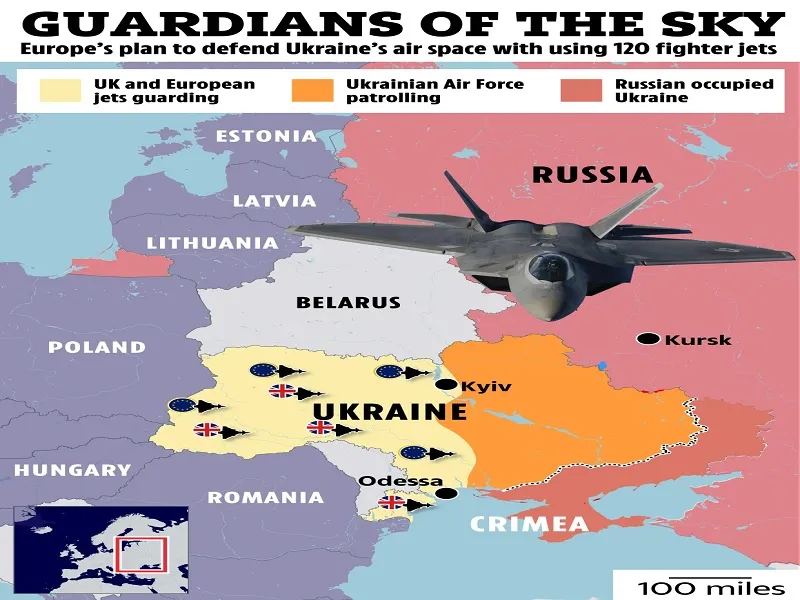
More NATO jamming of Russian drones and missiles over Ukrainian airspace is probable though.
Polish Foreign Minister Radek Sikorski told German media over the weekend that “We already discussed [a no-fly zone over Ukraine] a year ago, when Joe Biden was still US president. Technically, we as NATO and the EU would be capable of doing this, but it's not a decision Poland can make alone, but only with its allies. The protection of our population—for example, from falling debris—would of course be greater if we could combat drones and other flying objects beyond our national territory.”
He then added that “If Ukraine asked us to shoot them down over their territory, that would be to our advantage. If you ask me personally: We should consider it.” This follows Russia’s drone incursion into Poland last week, which this analysis here argues was due to NATO jamming. The incident led to divisions in otherwise solid US-Polish ties after Trump’s conclusion that it was a “mistake” was contradicted by Polish officials from both sides of its ruling duopoly who insisted that it was a deliberate provocation.
For as much as Sikorski personally supports a no-fly zone over at least part of Ukraine in the aftermath of what happened for the reasons that he explained above, this might not ultimately translate into policy. As was assessed a year ago here when this scenario was last discussed per his recent comments, “Polish policymakers (must first) overcome their differences and agree that it’s worth the risks; and (then) the US (must) give them the greenlight”, neither of which can be taken for granted.
New Polish President Karol Nawrocki is even more hardline towards Ukraine than his predecessor Andrzej Duda, both of whom represent the conservative-nationalist opposition to Prime Minister Donald Tusk’s ruling liberal-globalist government of which Sikorski is a part. Like Duda, Nawrocki also doesn’t want to risk direct Polish involvement in the Ukrainian Conflict, and he even pledged ahead of the second round last spring that he wouldn’t authorize the deployment of Polish troops to that country.
As for Trump, even though he’s reportedly considering escalating US involvement in the conflict either before or after a ceasefire via potential support for a EU-imposed no-fly zone over at least part of the country, he might not approve of this if Russia doesn’t agree due to the risk of a hot NATO-Russia war. Even Sikorski himself told British media over the same weekend that he talked to German media that Western security guarantees are “not very credible” since no one wants to flirt with that scenario.
Of relevance, the Financial Times reported that NATO is vulnerable to drones, in connection with which RT reminded readers in their article on the aforesaid that other sources earlier told them that they only have 5% of the air defenses needed to protect the eastern flank. These concerns reduce the chances of the US approving a no-fly zone over Ukraine against Russia’s wishes since its NATO allies risk destruction if this leads to a hot war with Russia unless the US resorts to nuclear brinksmanship on their behalf.
Considering all of these points, the US is therefore unlikely to approve such plans even in the far-fetched scenario that Nawrocki and Tusk agreed on them unless Trump radically recalibrates his policy to assume responsibility for the potentially apocalyptical risks that this could entail, which he’s still reluctant to do. For these reasons, while more NATO jamming of Russian munitions (drones and missiles) over Ukrainian airspace is probable, direct downing of them via Polish-based air defenses or fighter jets isn’t expected.
https://korybko.substack.com/p/sikorski ... port-for-a
******
Euronews: Foreign troops in Ukraine would be ‘legitimate targets for destruction,’ Putin says
September 17, 2025
Euronews, 9/5/25
Moscow will consider any foreign troop deployment on Ukrainian soil as “legitimate targets for destruction”, Russian President Vladimir Putin said on Friday.
“If any troops appear there, especially now, during the fighting, we assume that they will be legitimate targets for destruction,” Putin emphasised in his keynote speech at the Eastern Economic Forum in Vladivostok.
“And if decisions are reached that will lead to peace, to long-term peace, then I simply see no point in their presence on Ukrainian territory.”
“If these agreements are reached, no one doubts that Russia will implement them in full.”
Putin’s comments came after Ukraine’s President Volodymyr Zelenskyy, accompanied by his French counterpart Emmanuel Macron, shared on Thursday that 26 European states, part of the so-called Coalition of the Willing, were prepared to offer security guarantees to Ukraine in a post-war capacity following any potential peace settlement.
Ukraine’s European partners have not suggested sending combat troops to Ukraine during the ongoing war, but instead deploying a type of international peacekeepers only after a possible ceasefire or a peace deal.
These forces would not engage in fighting but would only be tasked with monitoring and maintaining peace after the agreement is reached.
The Russian president voiced doubts about this possibility, though, saying it will be “practically impossible” to reach an agreement on key issues with Ukraine to end the Kremlin’s full-scale invasion, currently in its fourth year.
Putin also said that Russia wants to get security guarantees as well, without specifying what these measures could be and how they would protect Russia in its all-out war against Ukraine.
“Peace guarantees must be for both, Russia and Ukraine,” stressed Putin.
Putin reiterated Moscow’s resolute rejection of Ukrainian membership in the NATO defence alliance. At the same time, the Kremlin is not opposed to Ukraine’s desire to join the European Union, according to him.
He claimed that “Ukraine’s decision on NATO cannot be considered without looking at Russia’s (security) interests”, but Kyiv’s EU aspirations are a “legitimate choice”.
“I repeat, (Ukraine’s EU bid) is Ukraine’s legitimate choice, how to build its international relations, how to ensure its interests in the economic sphere, with whom to enter into alliances.”
https://natyliesbaldwin.com/2025/09/eur ... utin-says/


